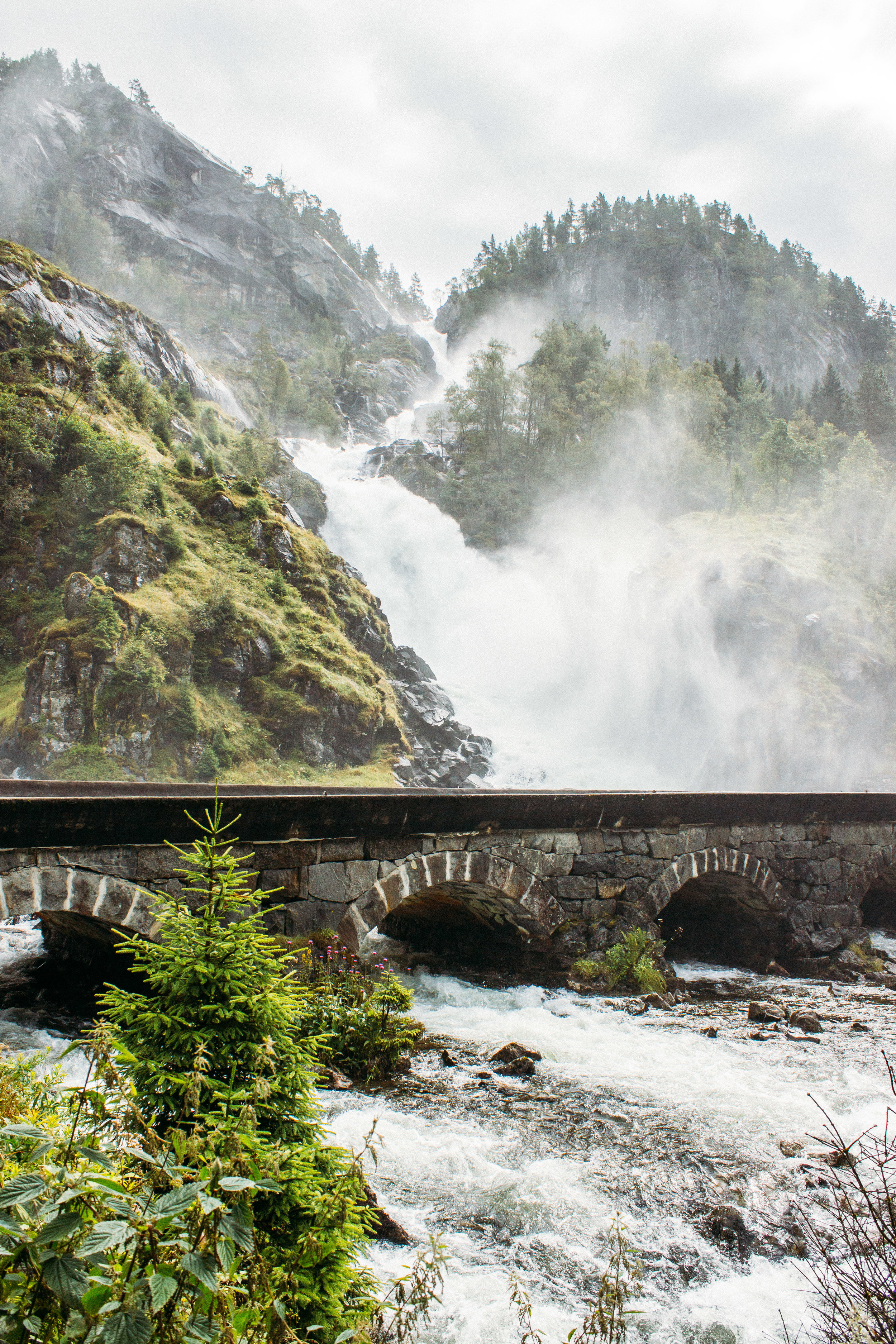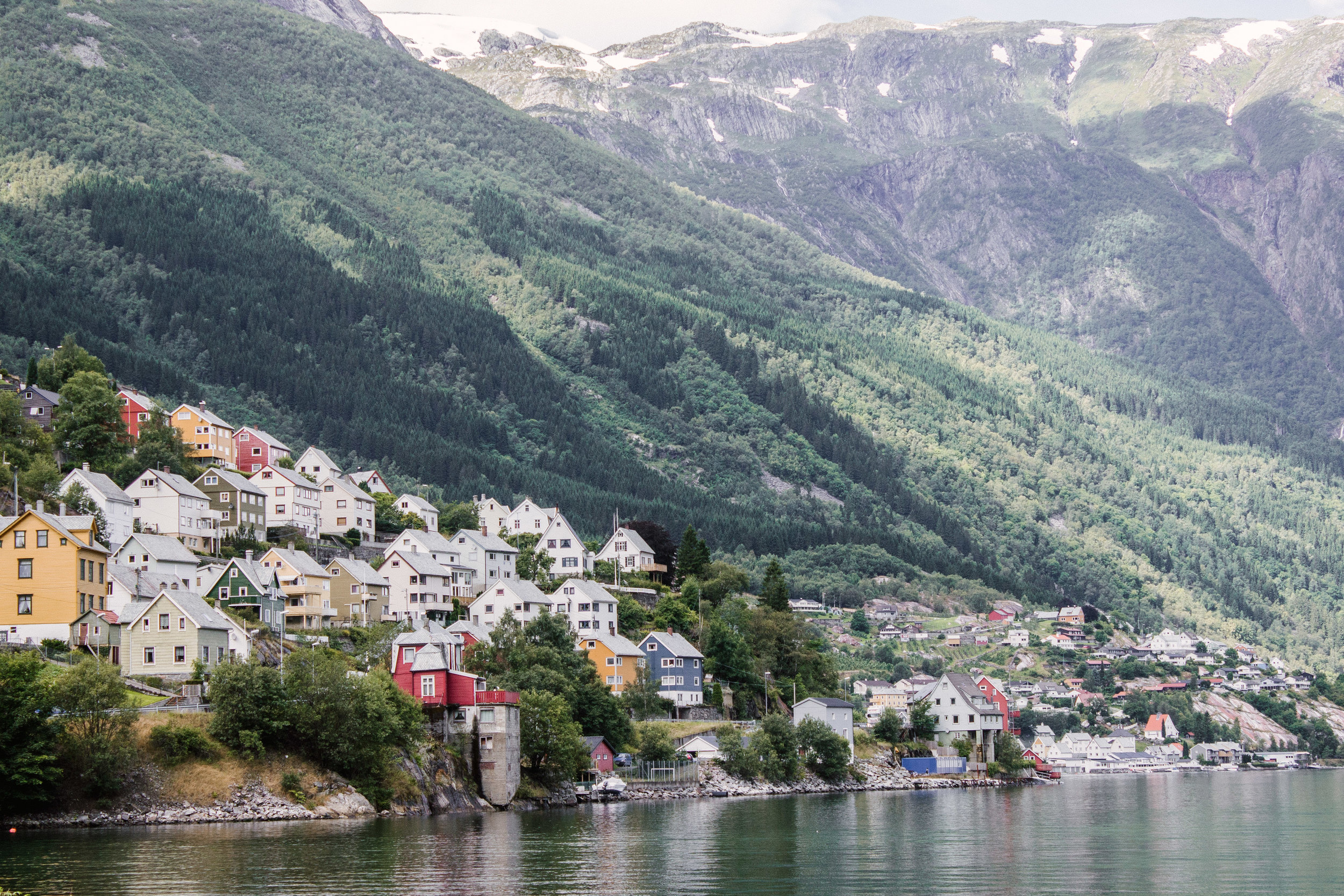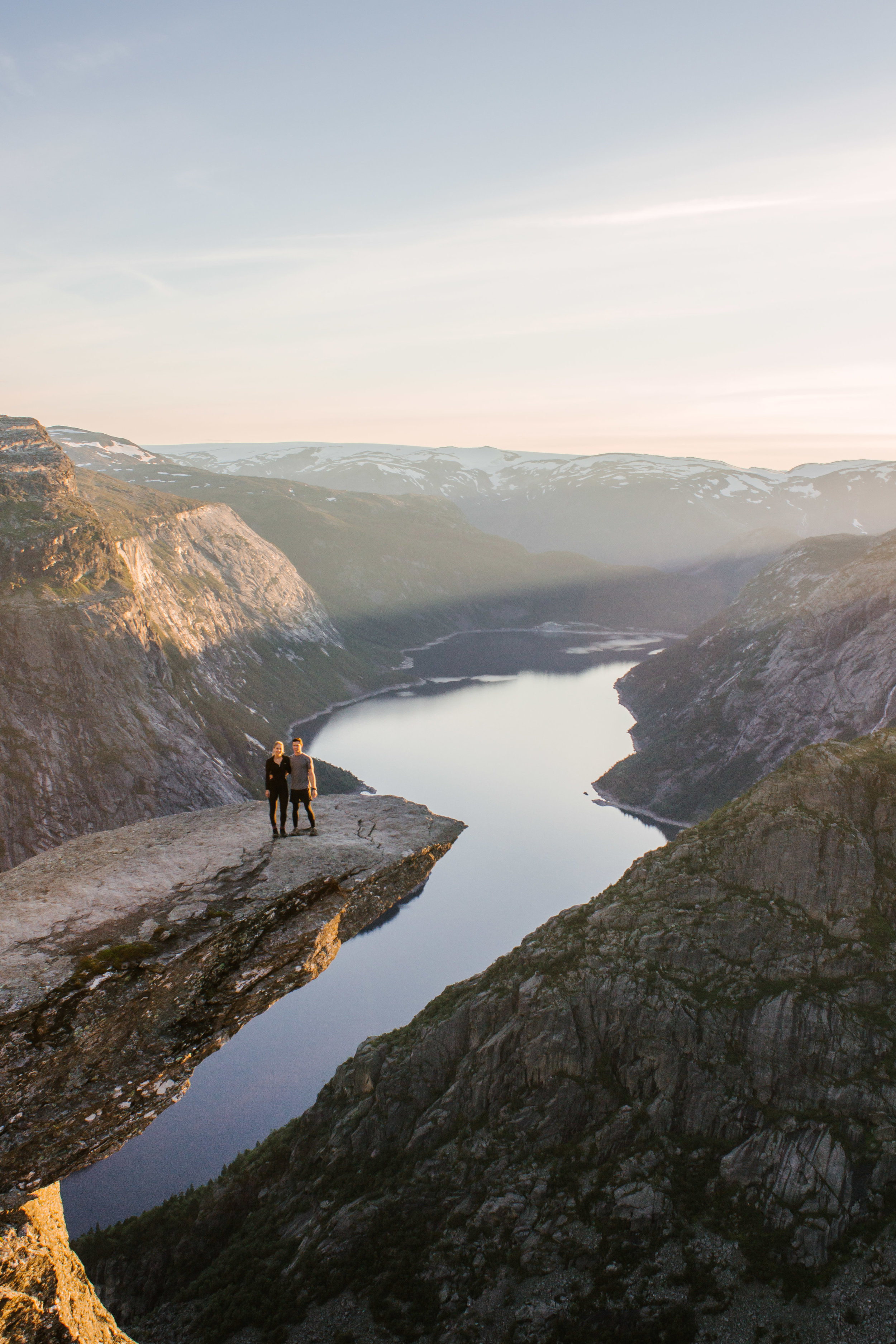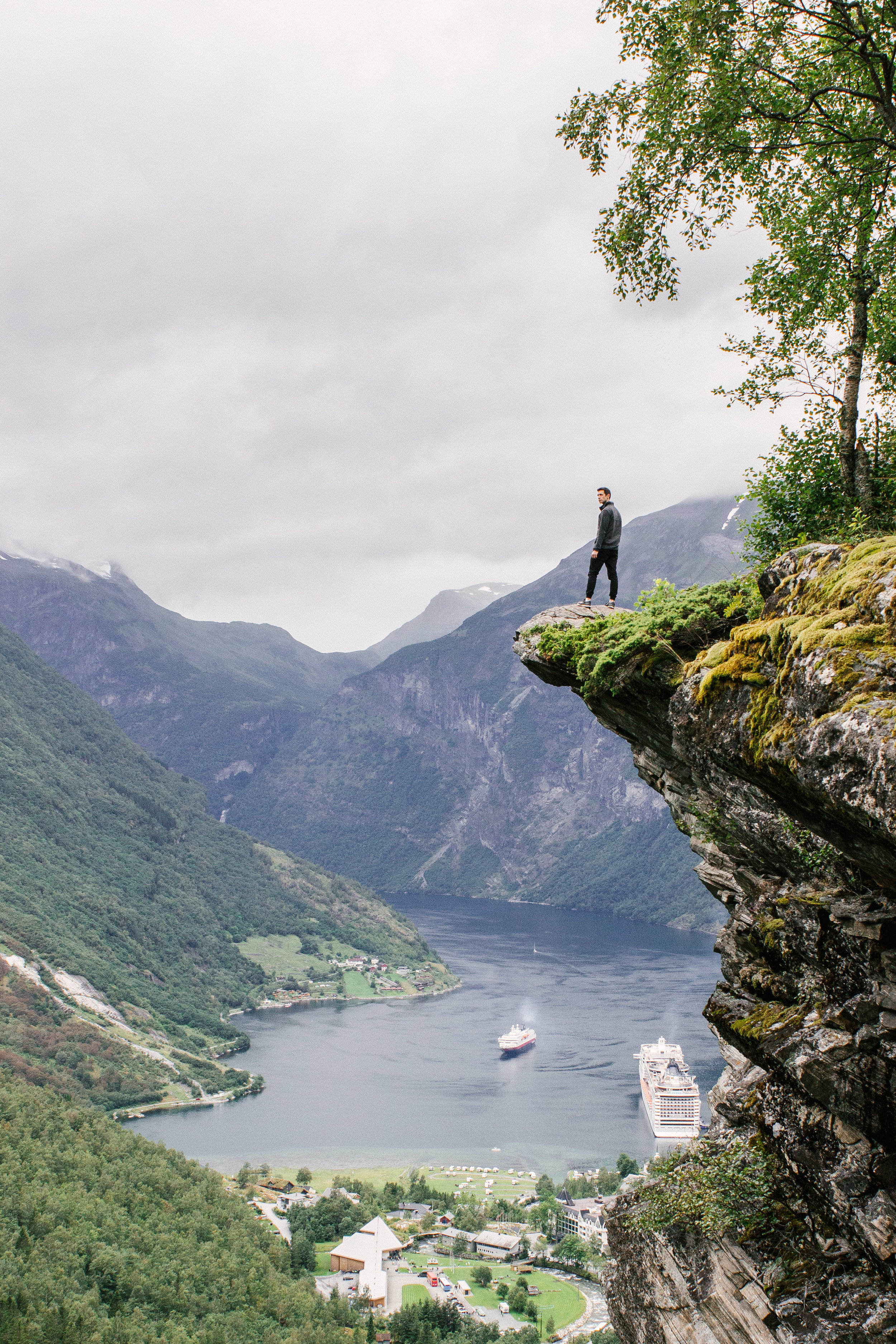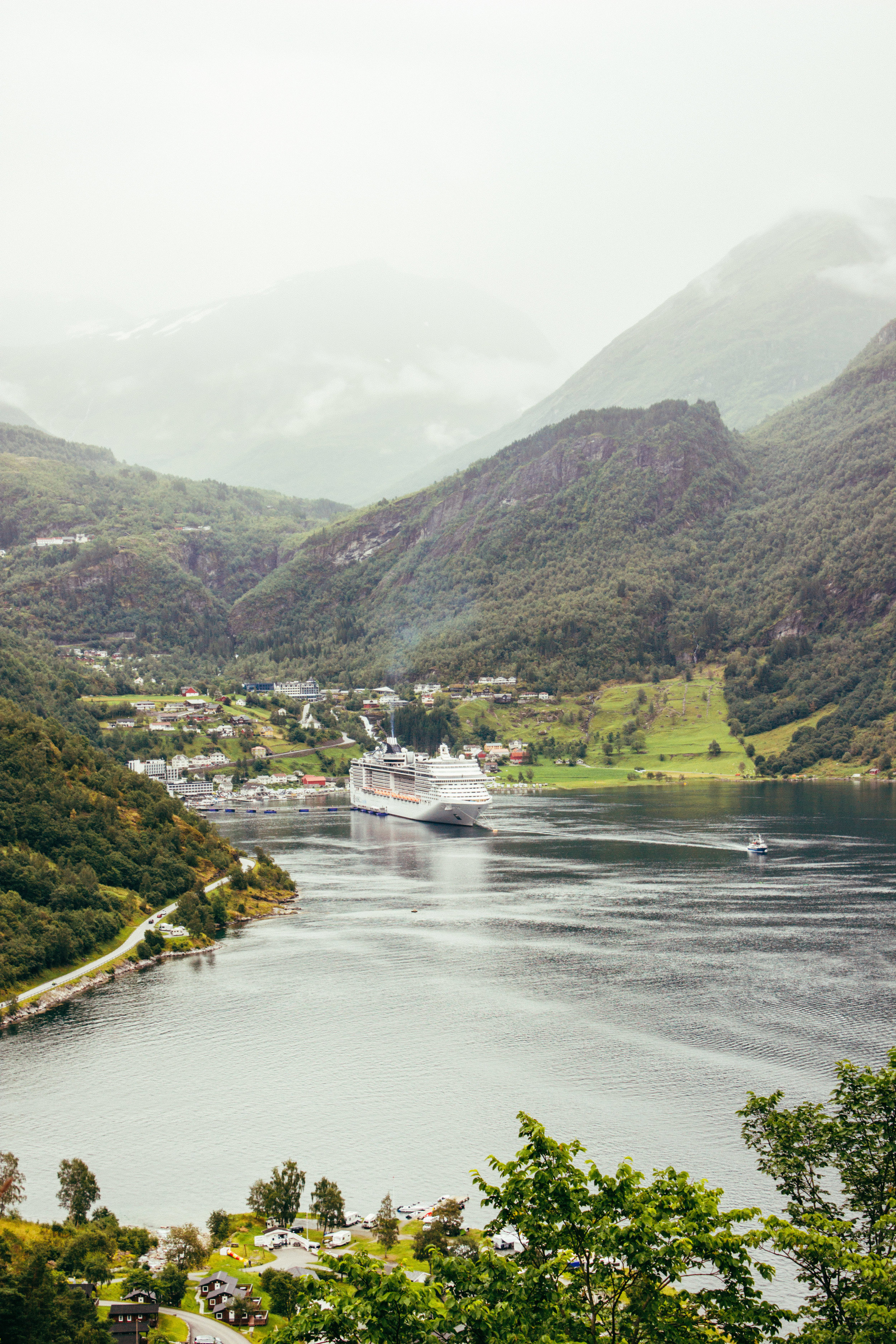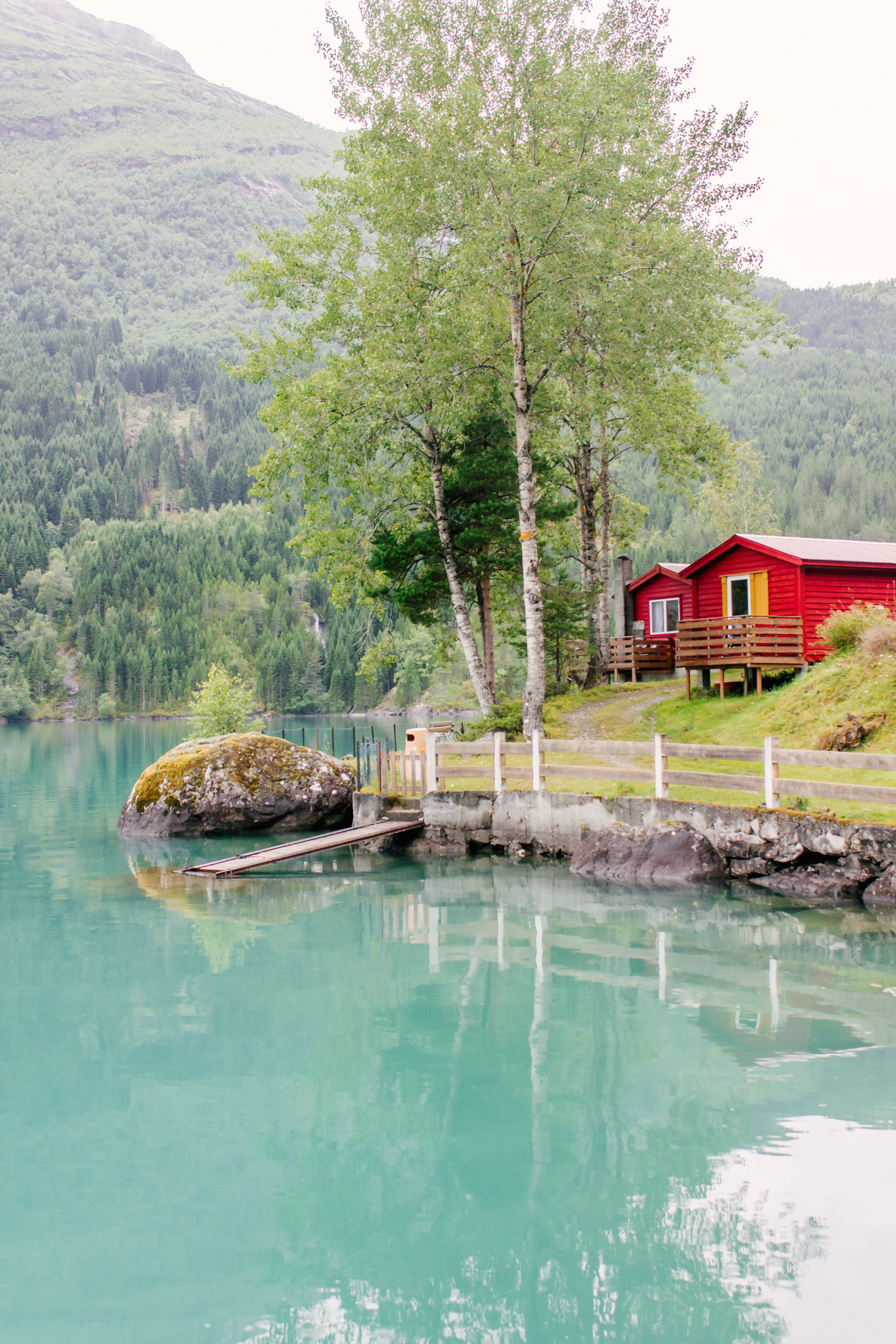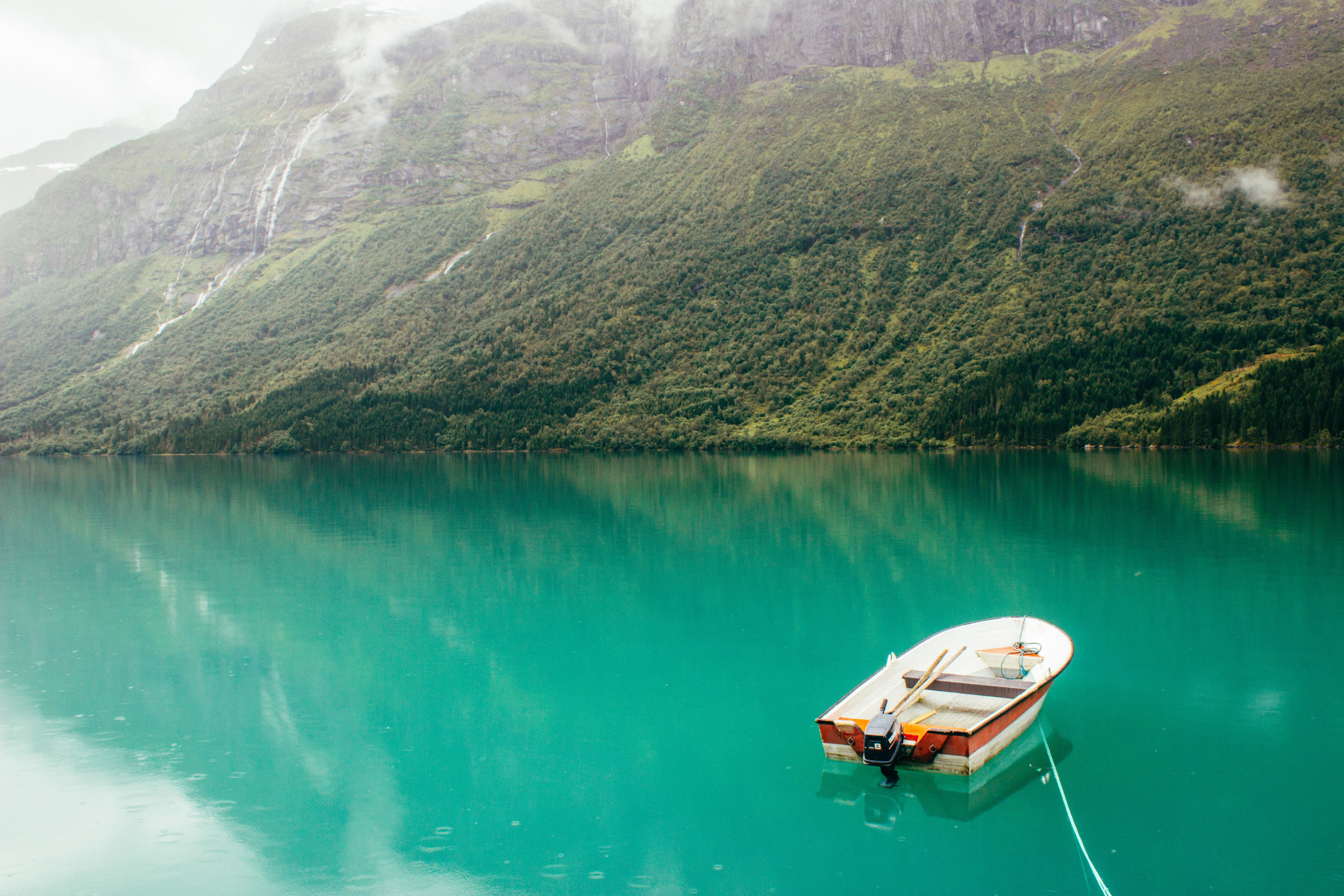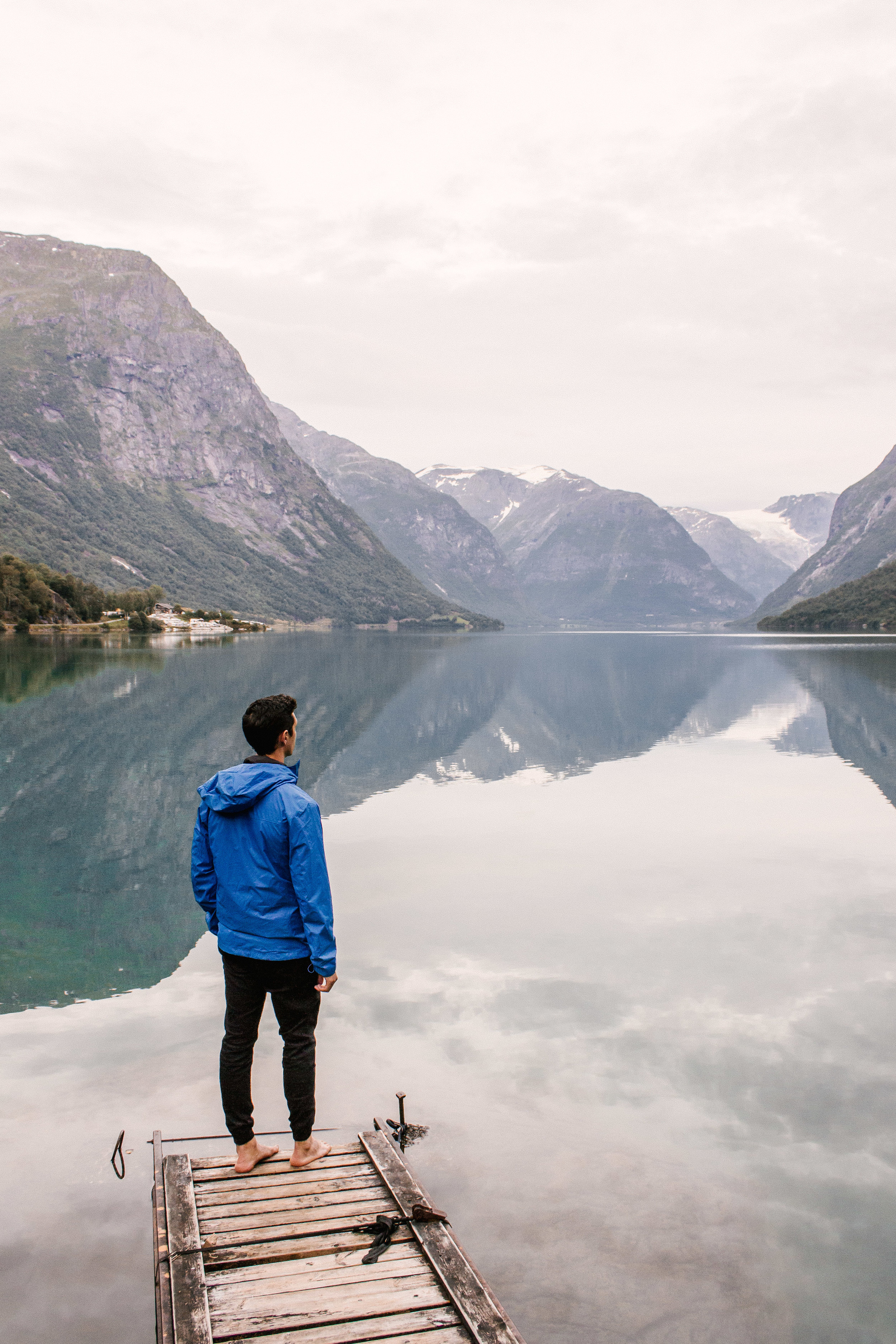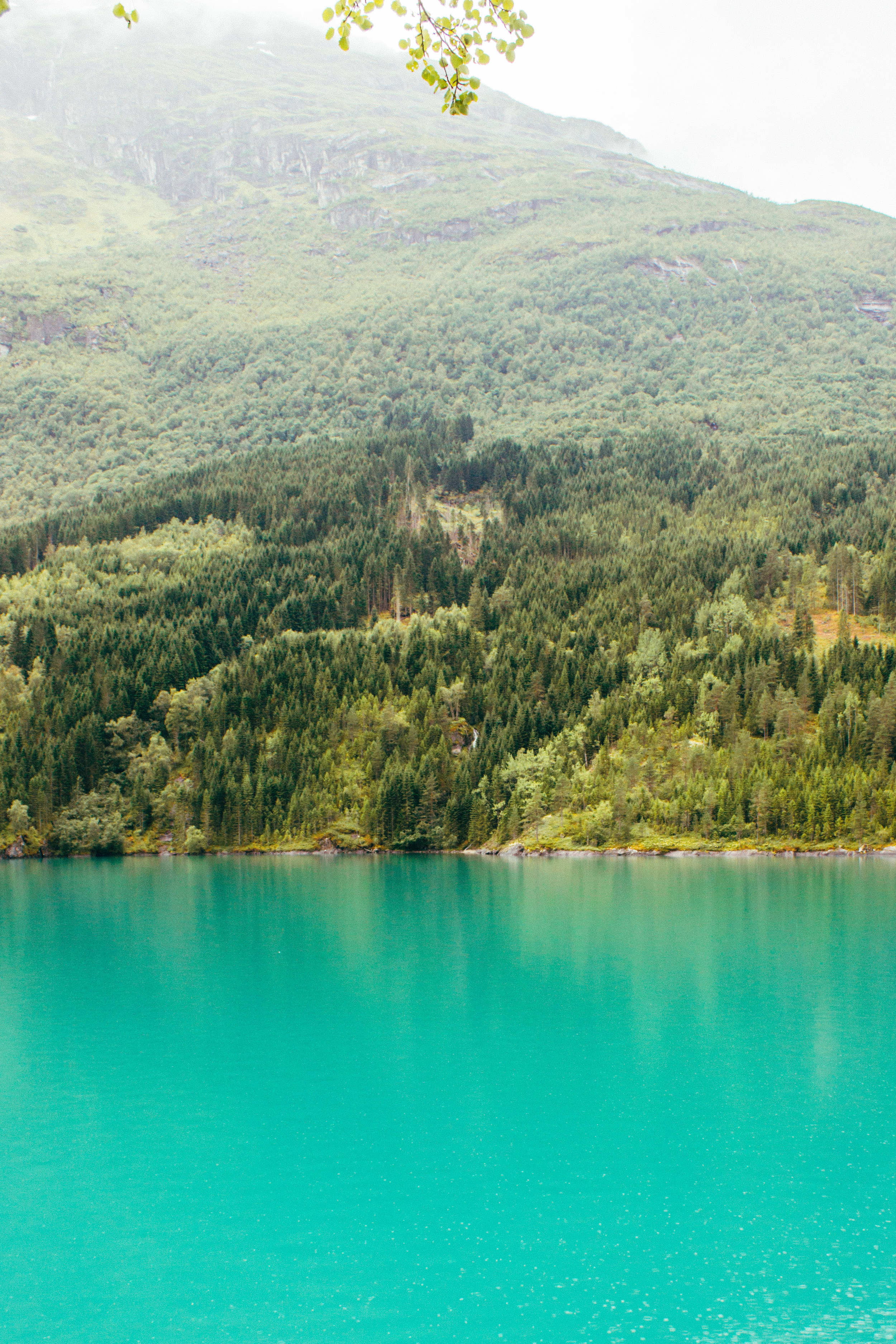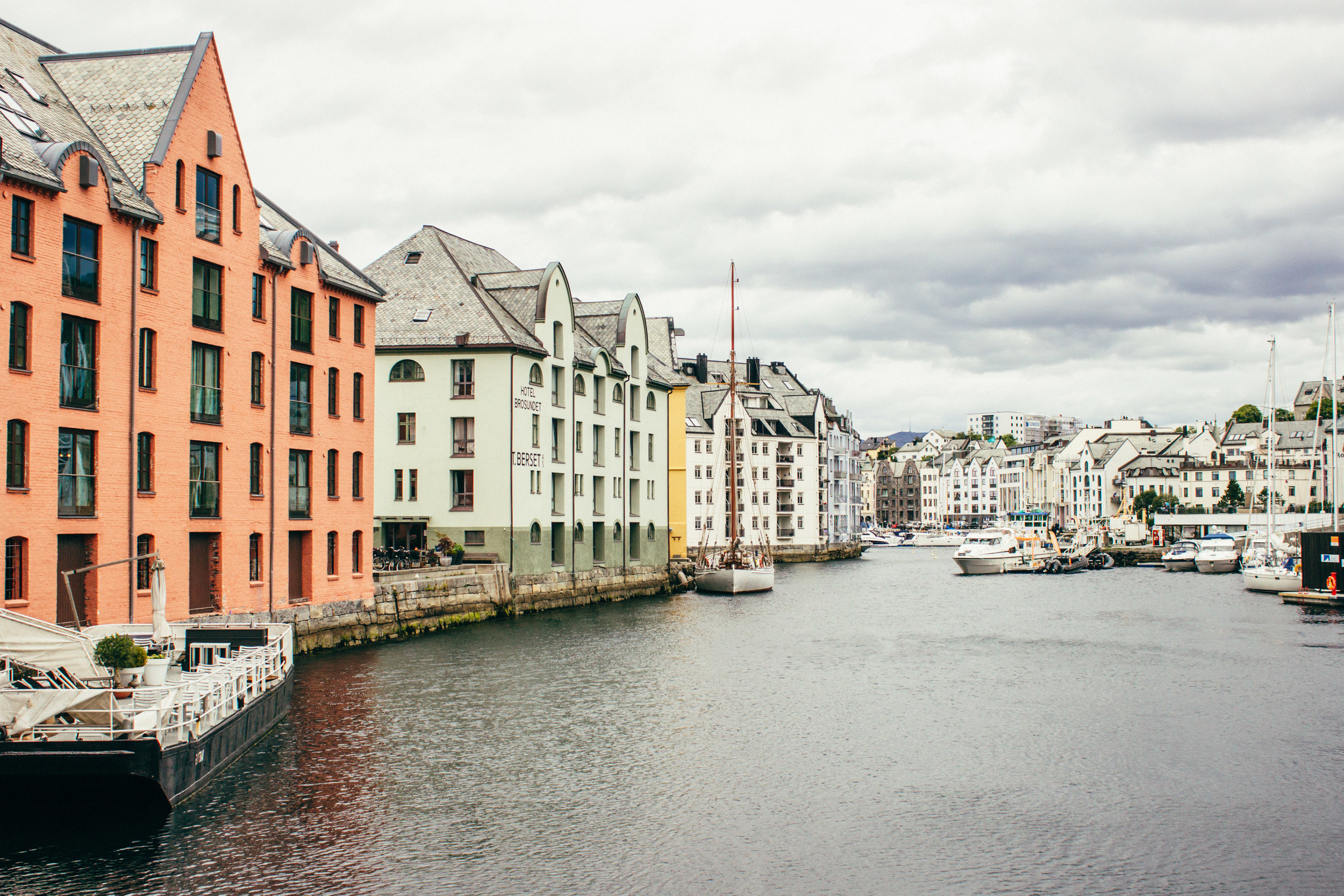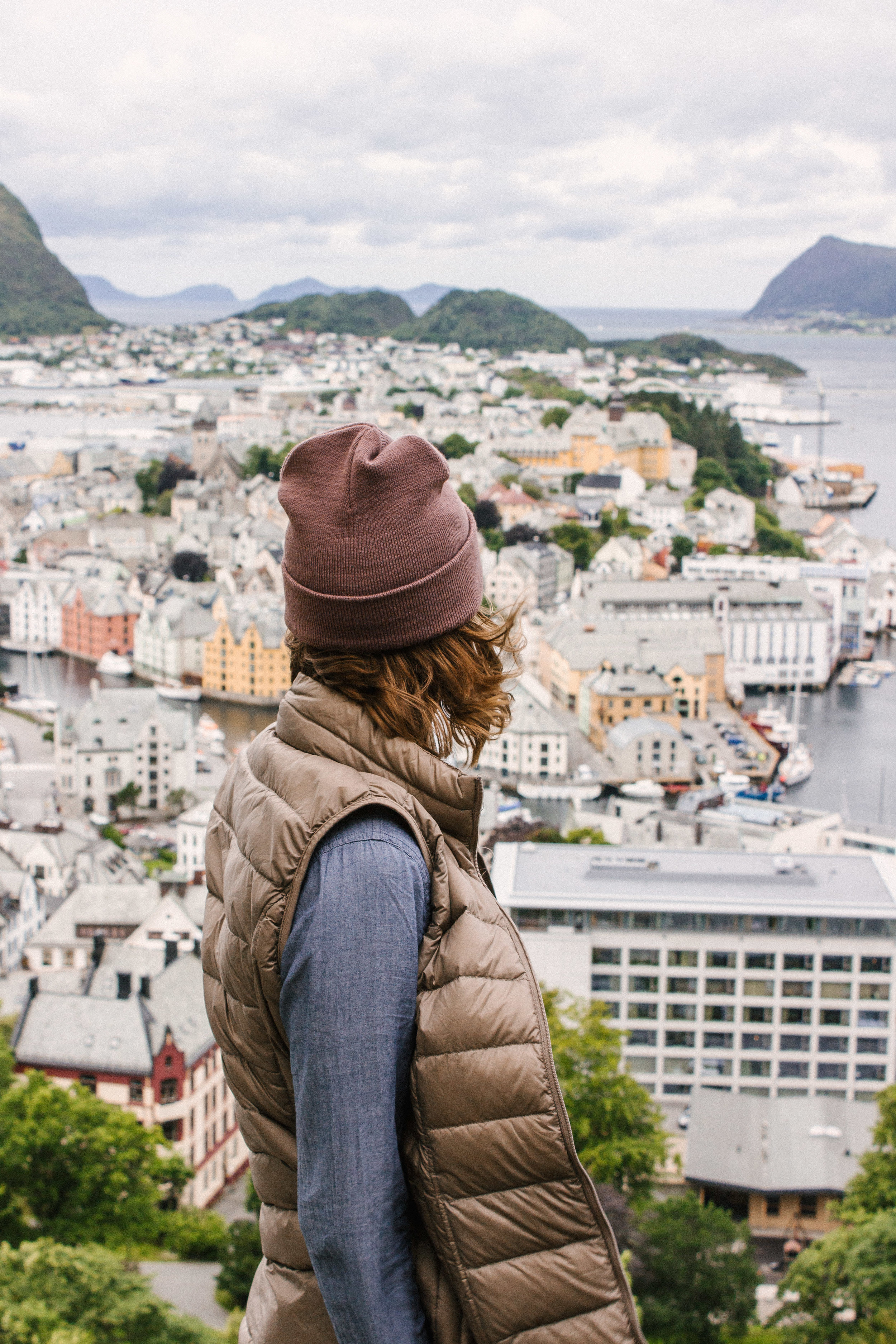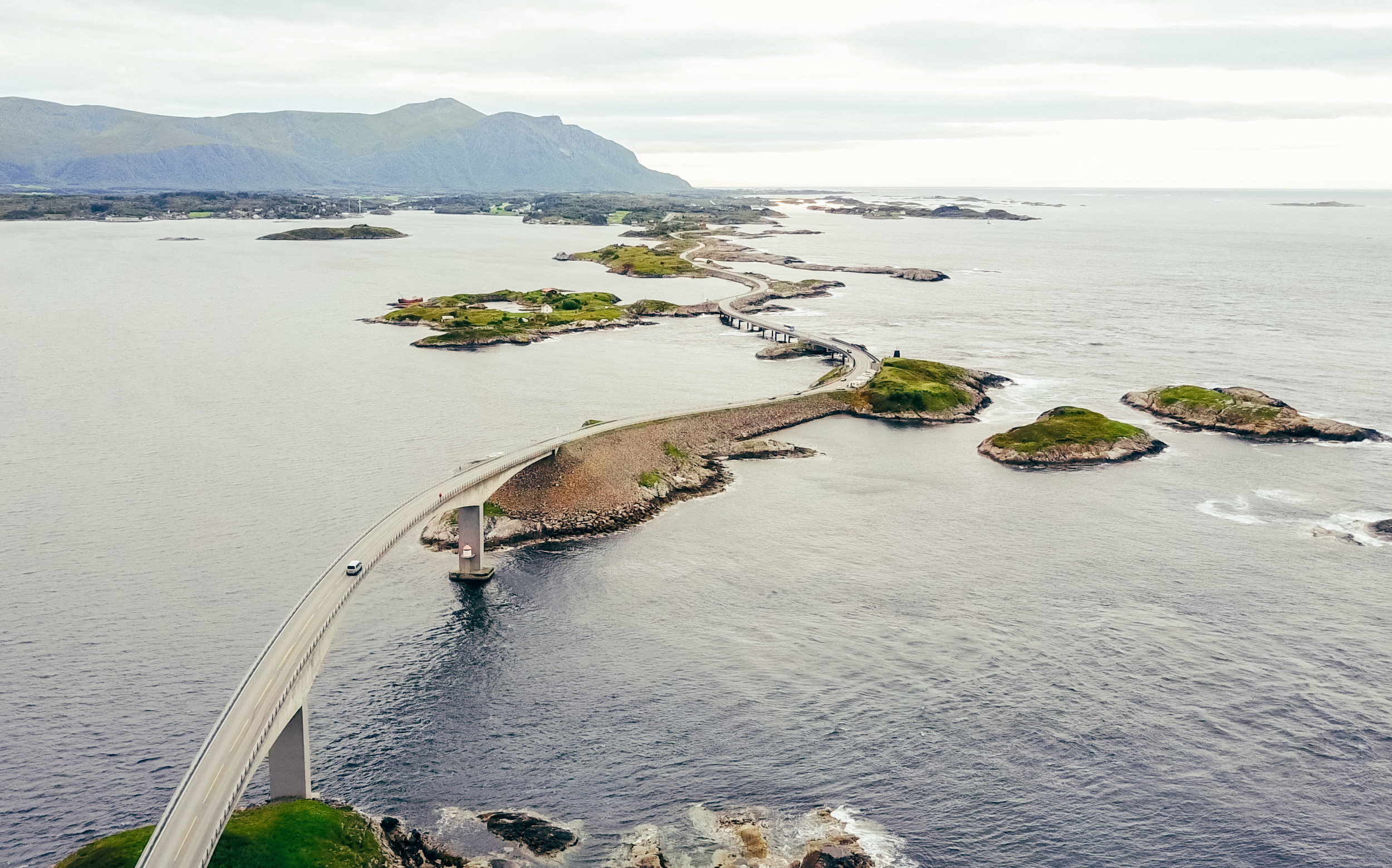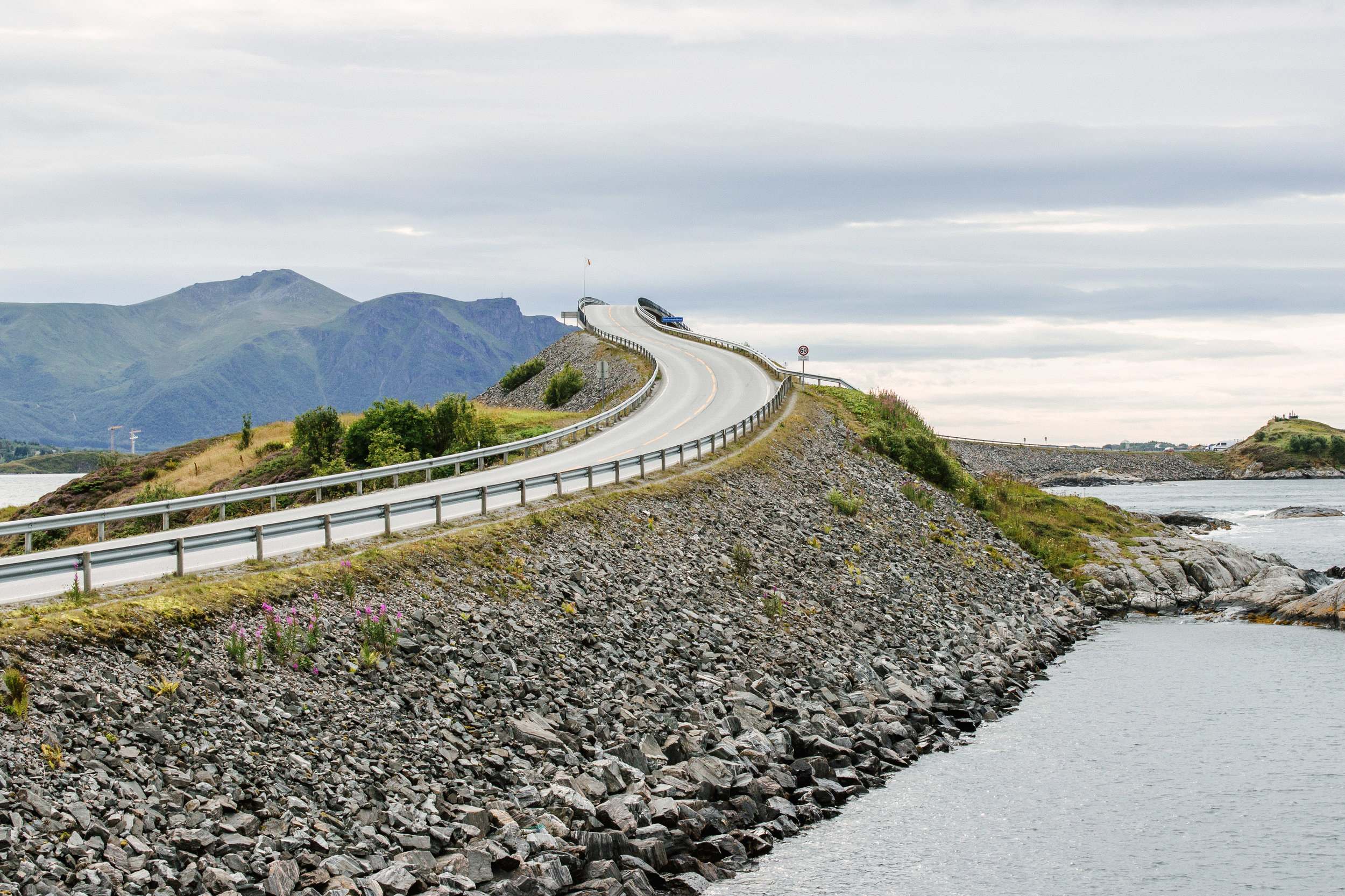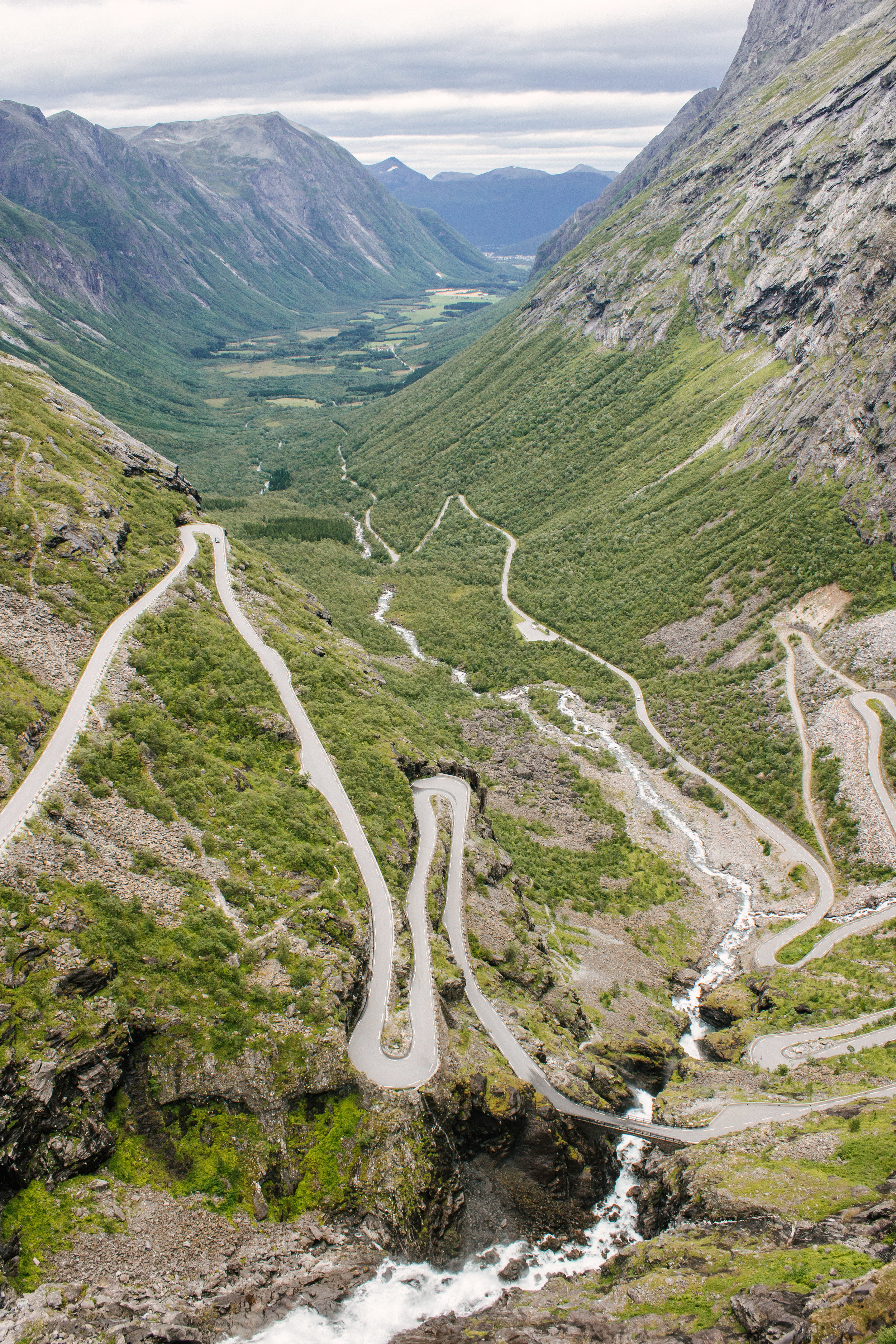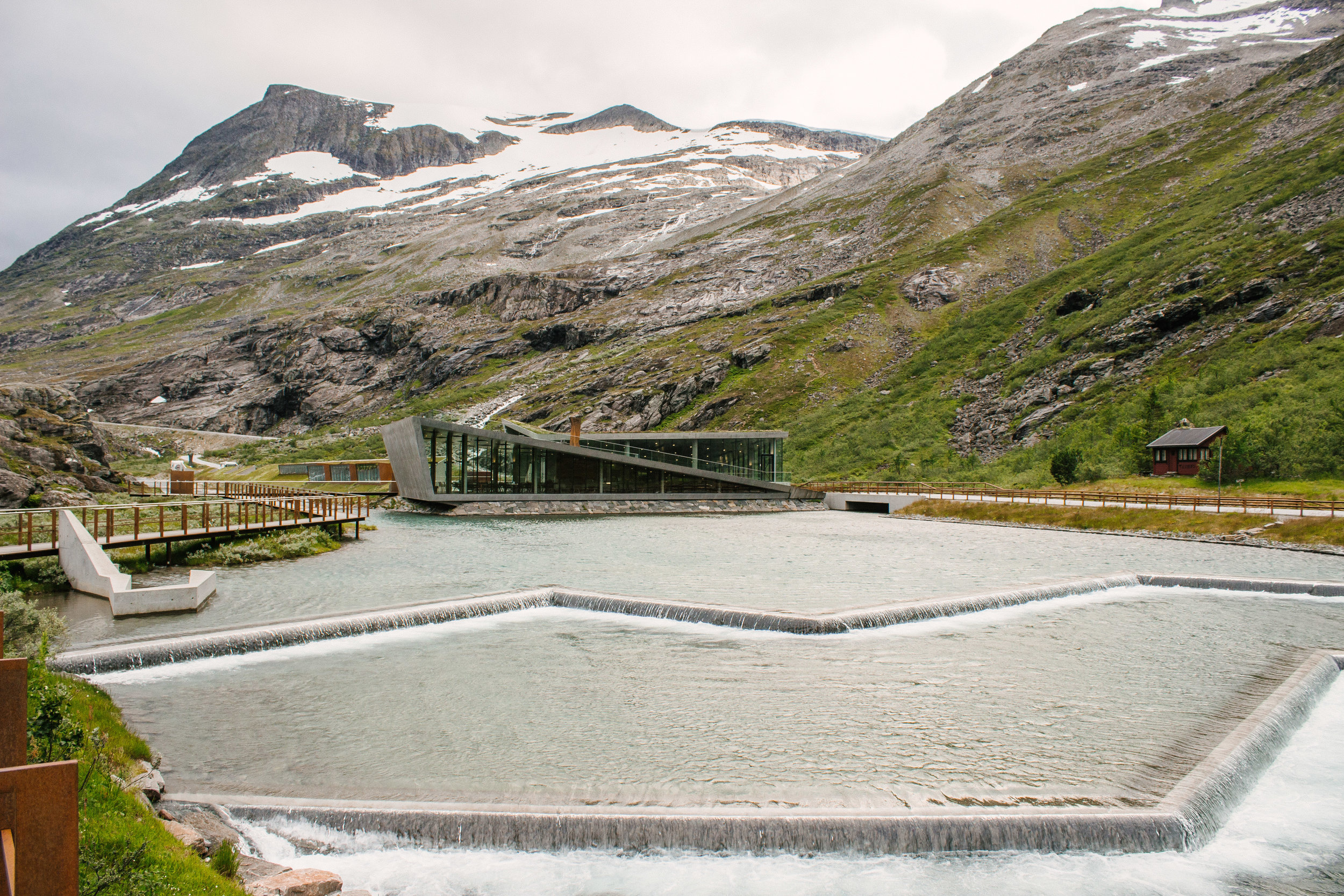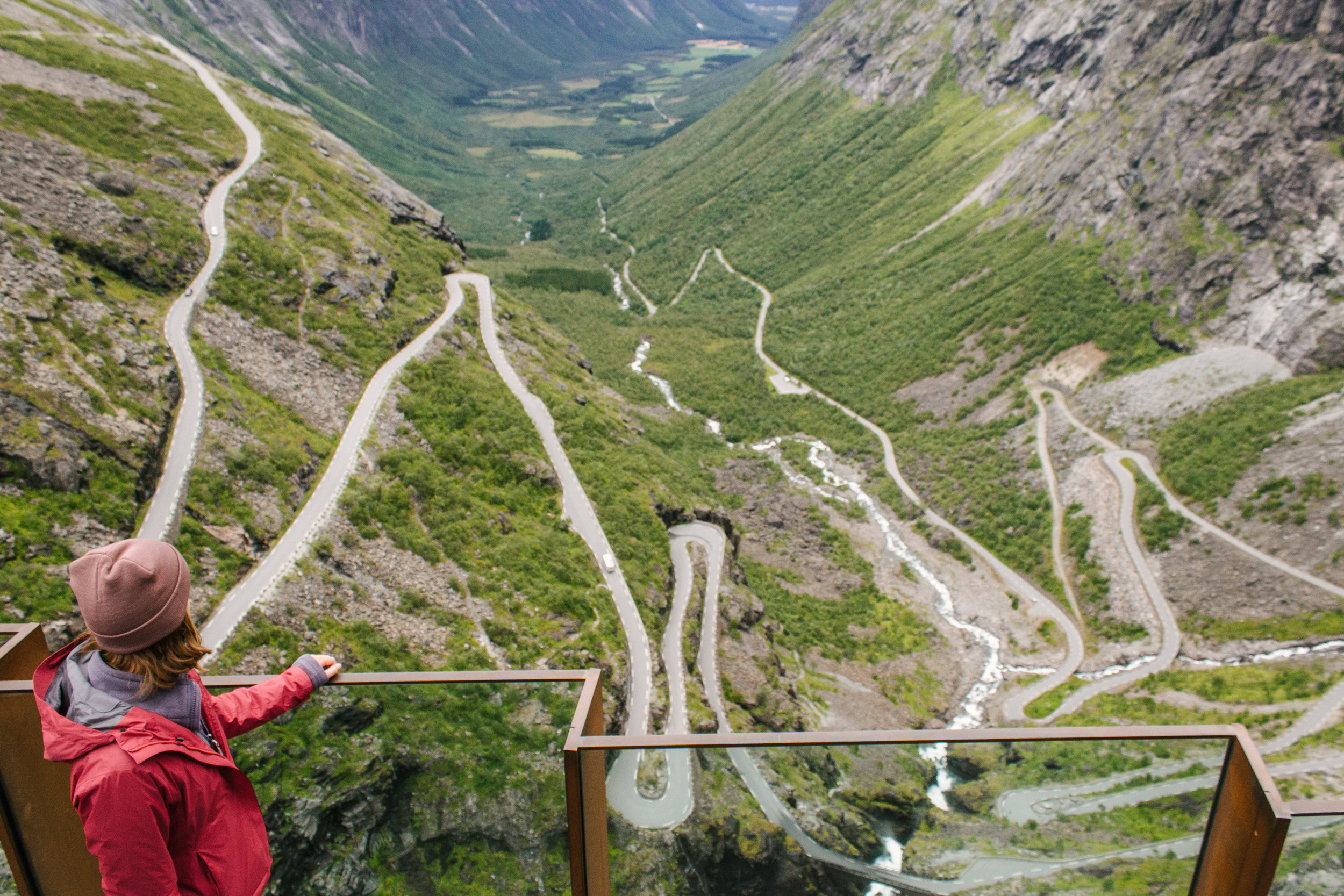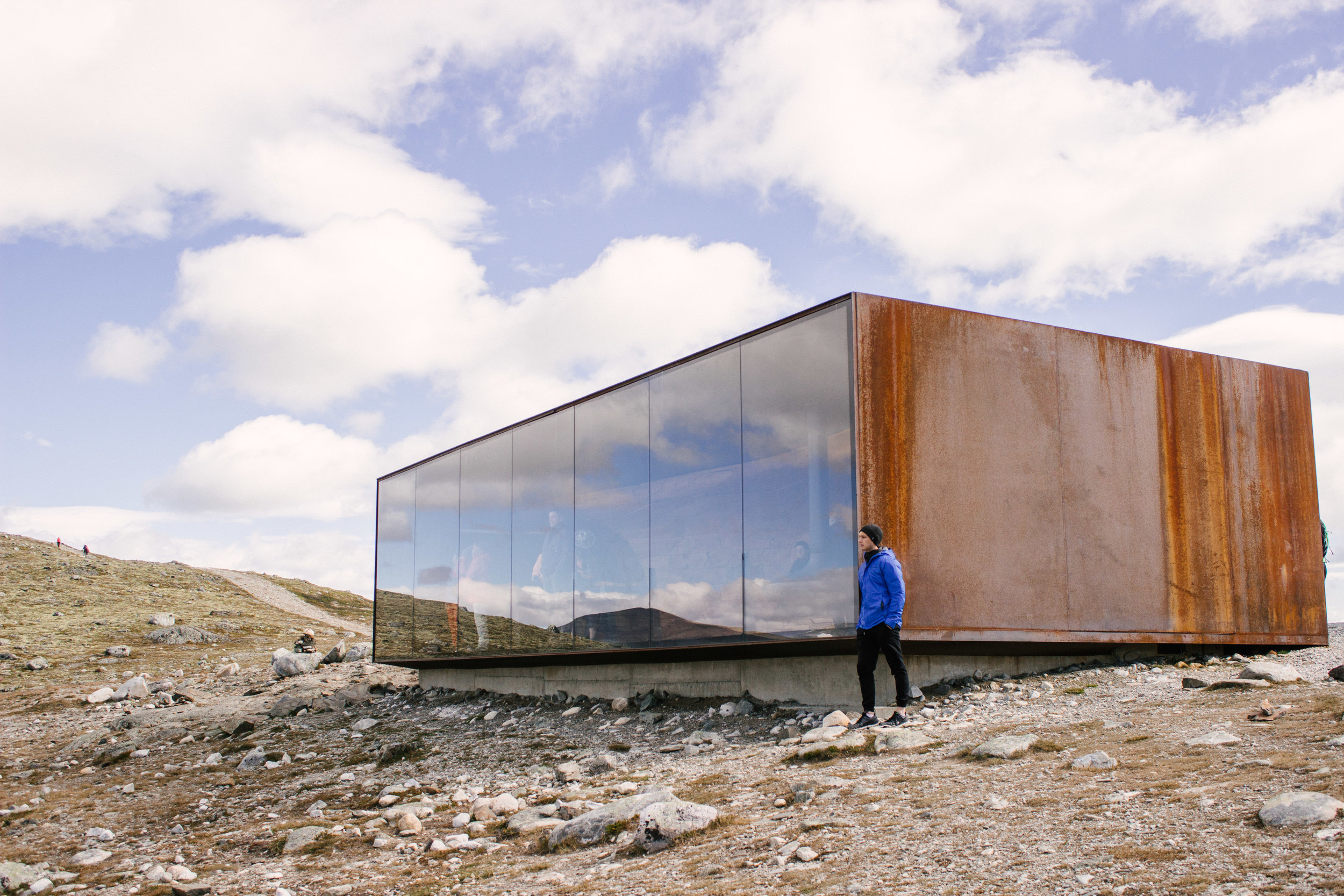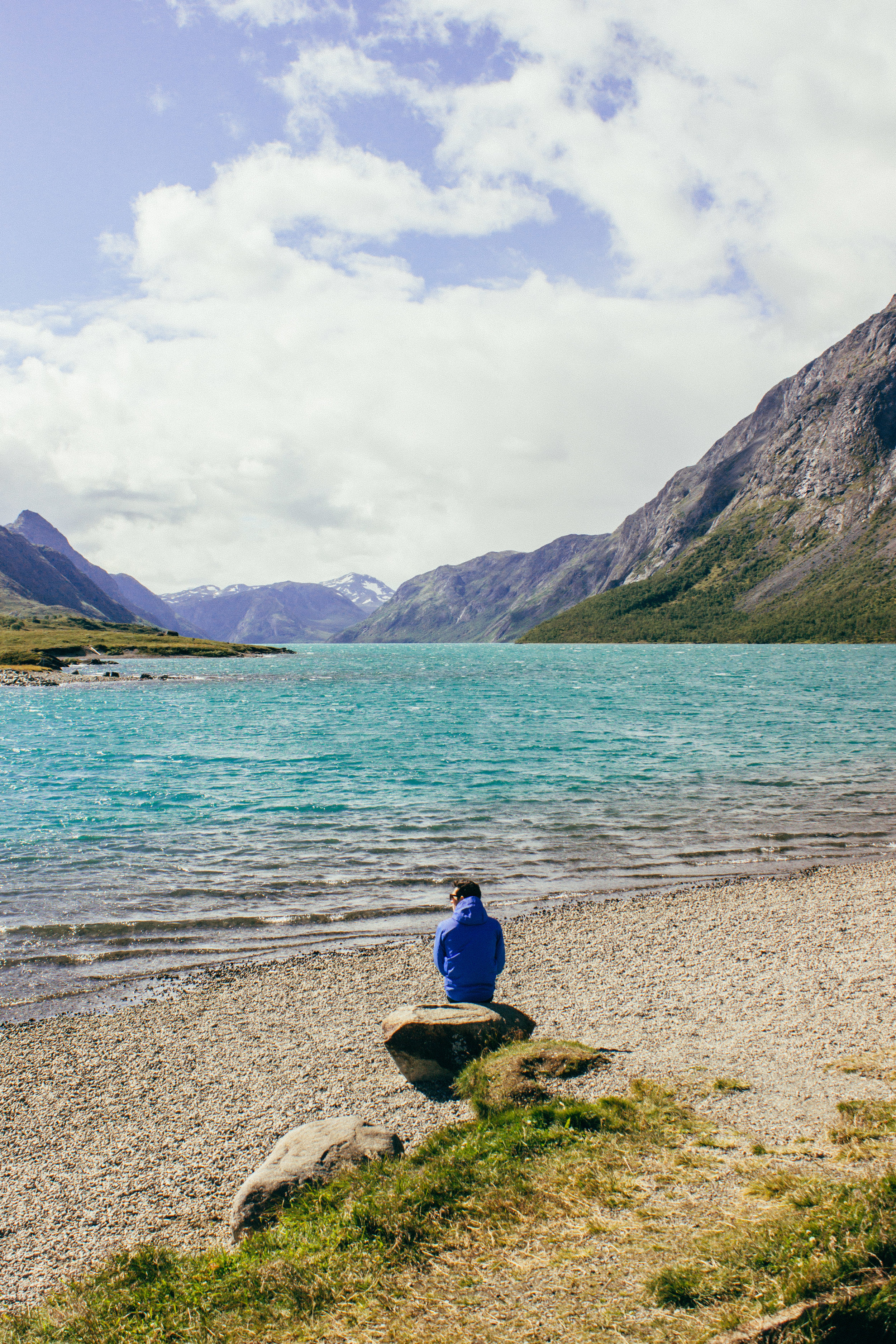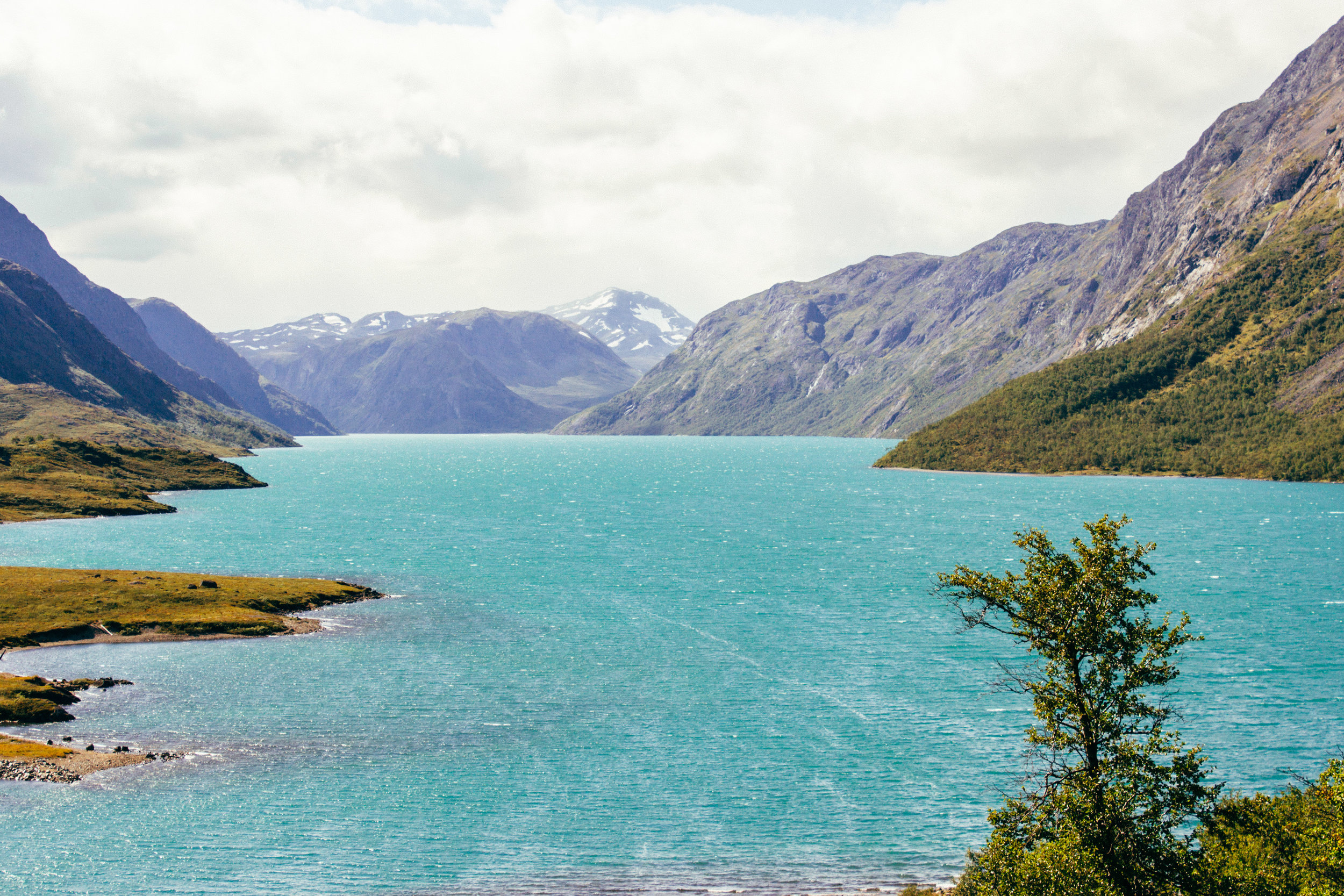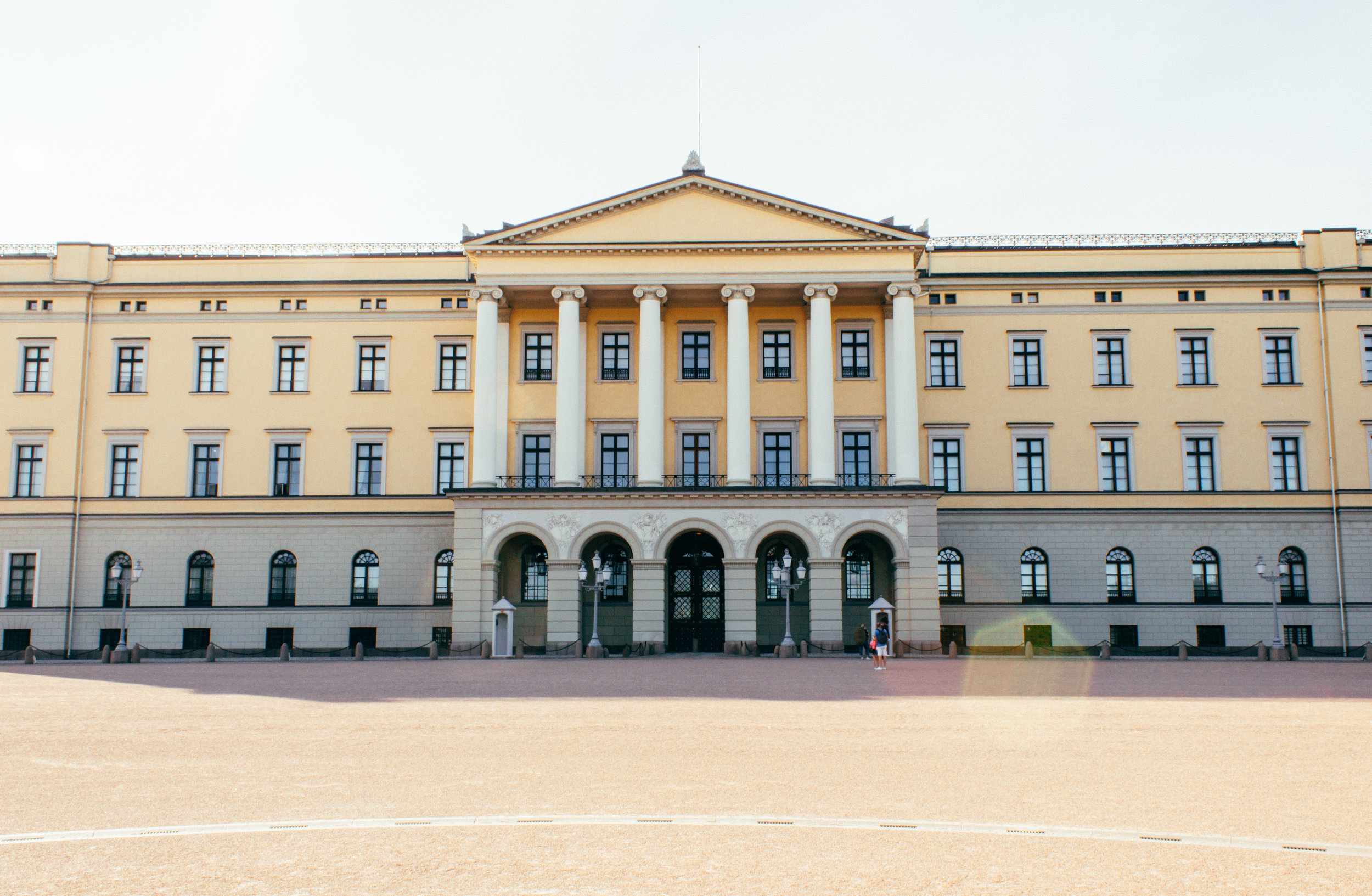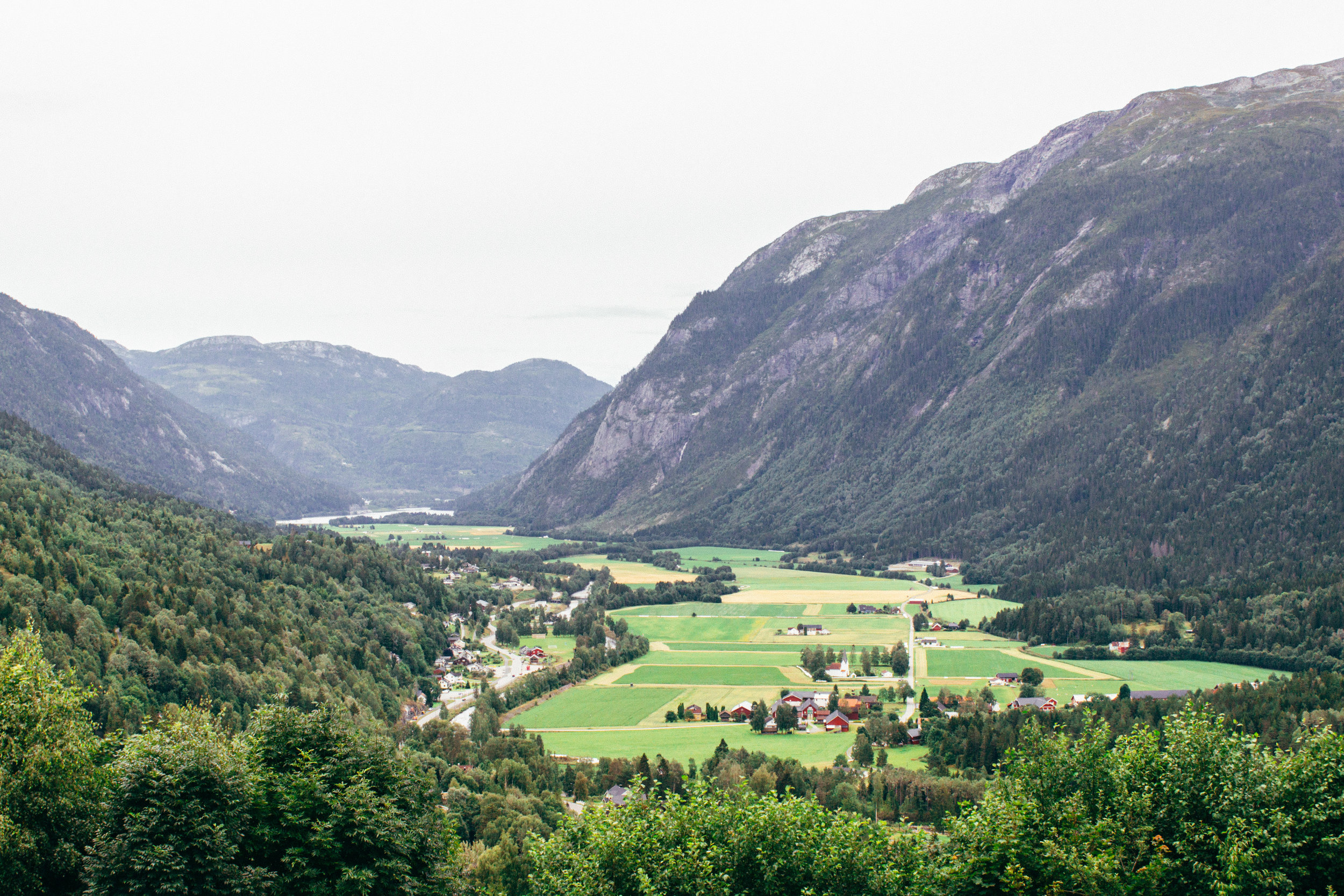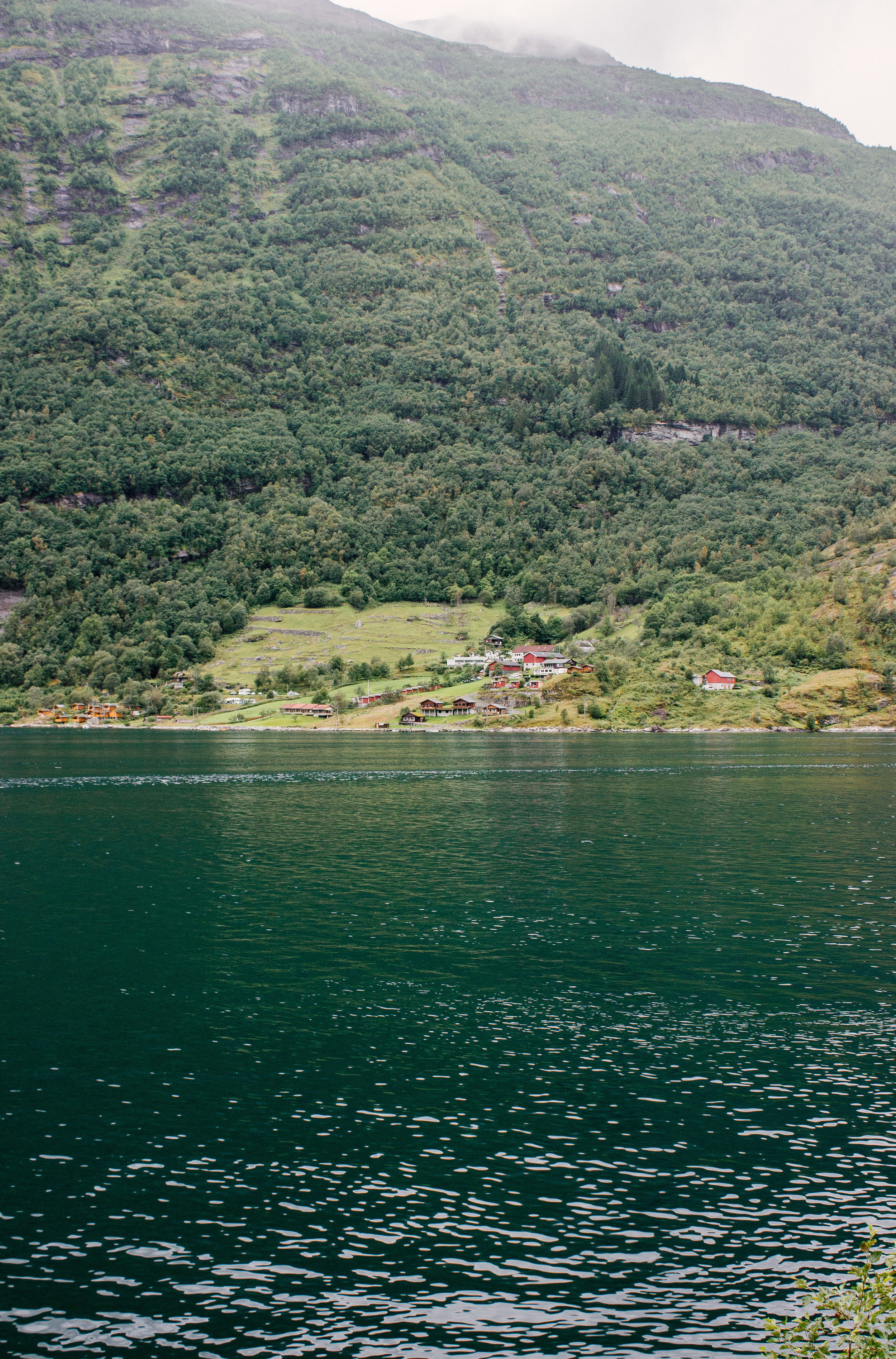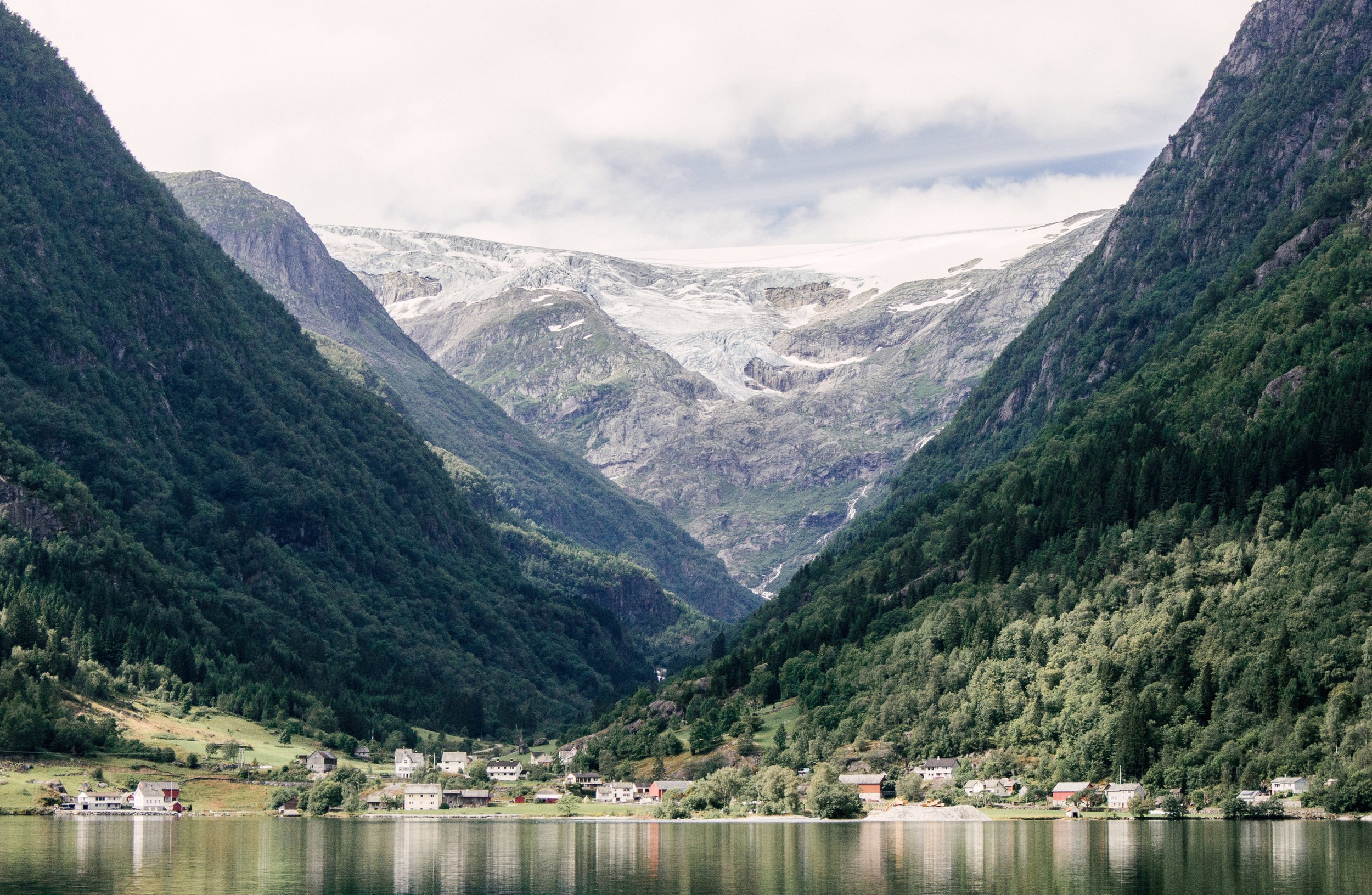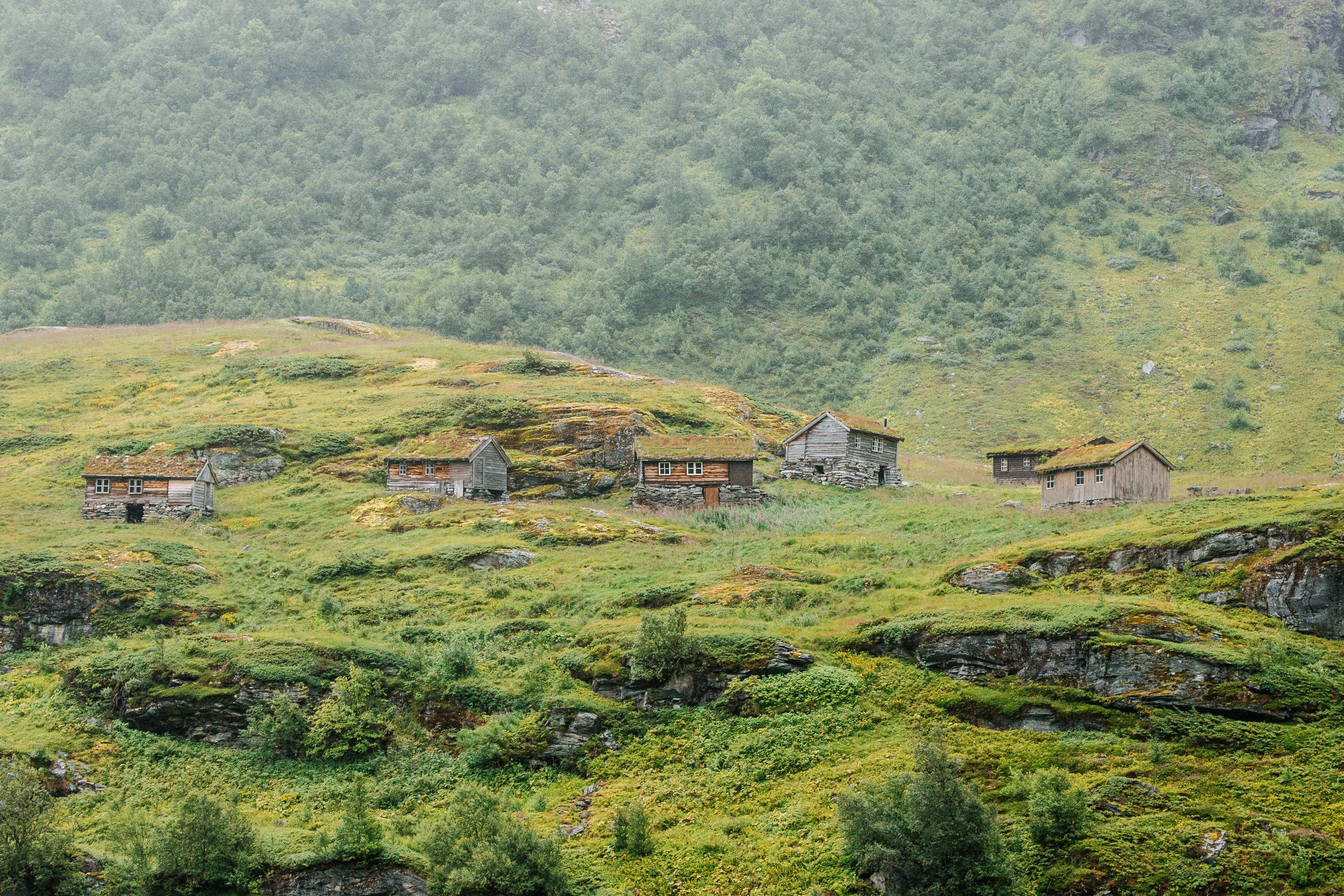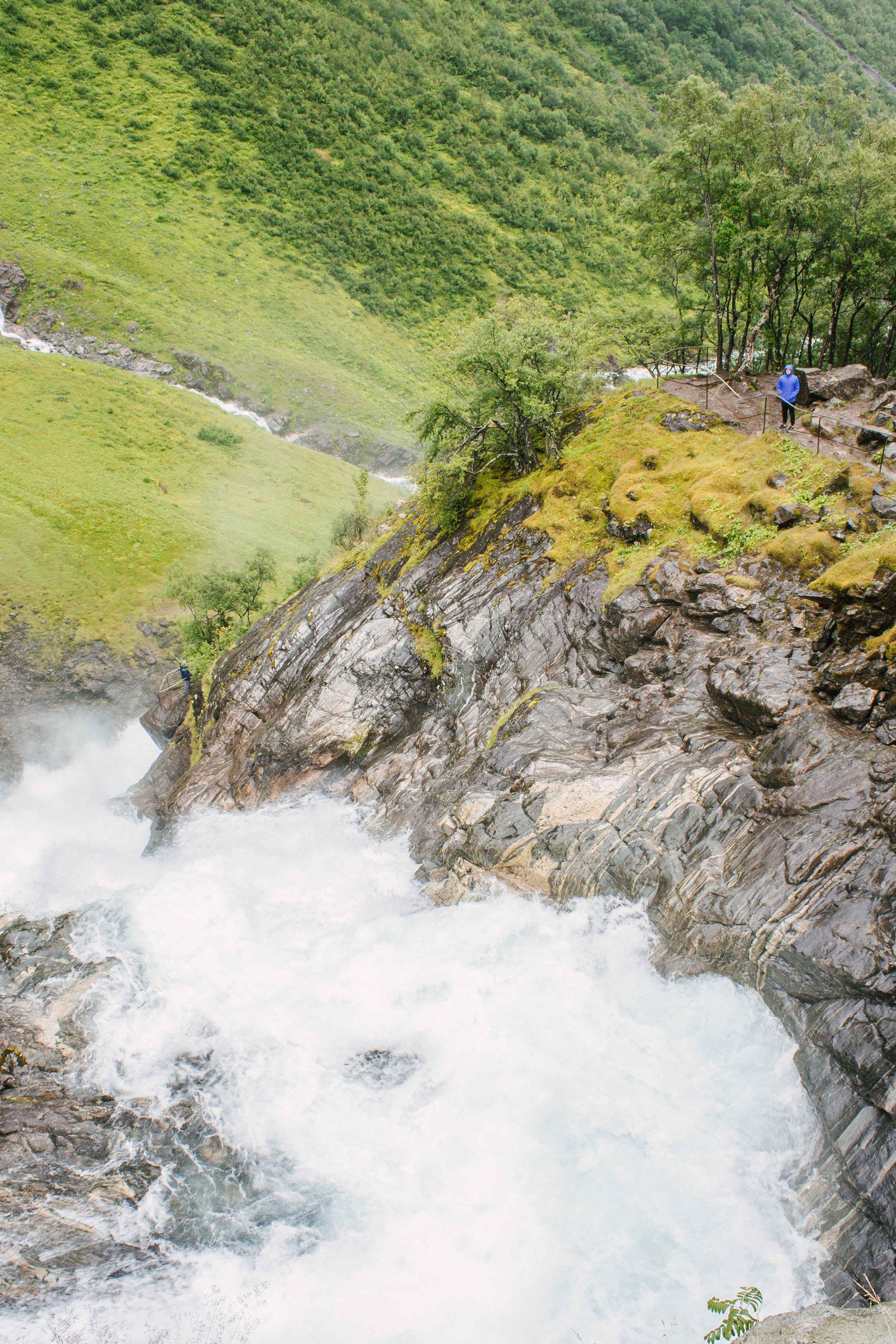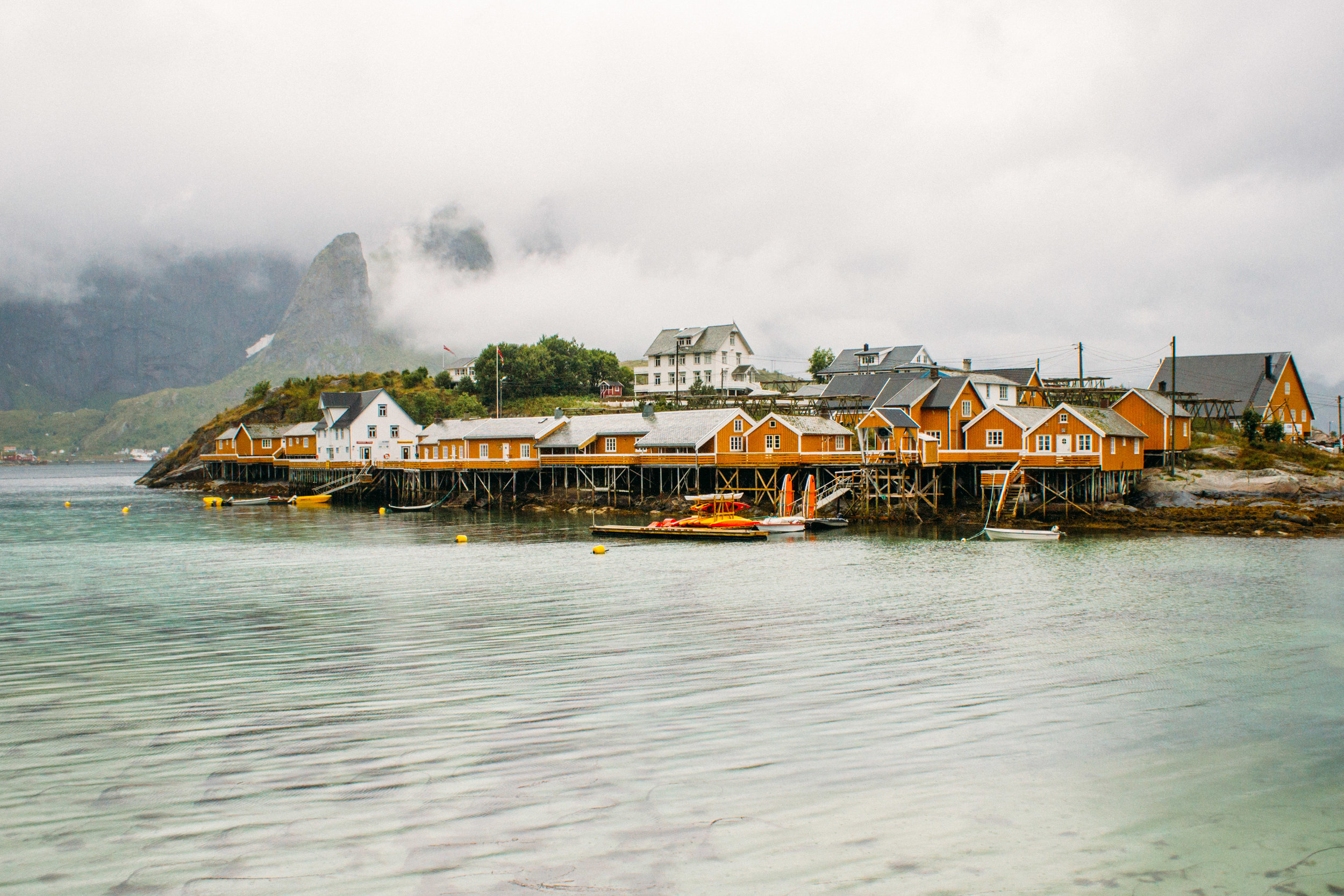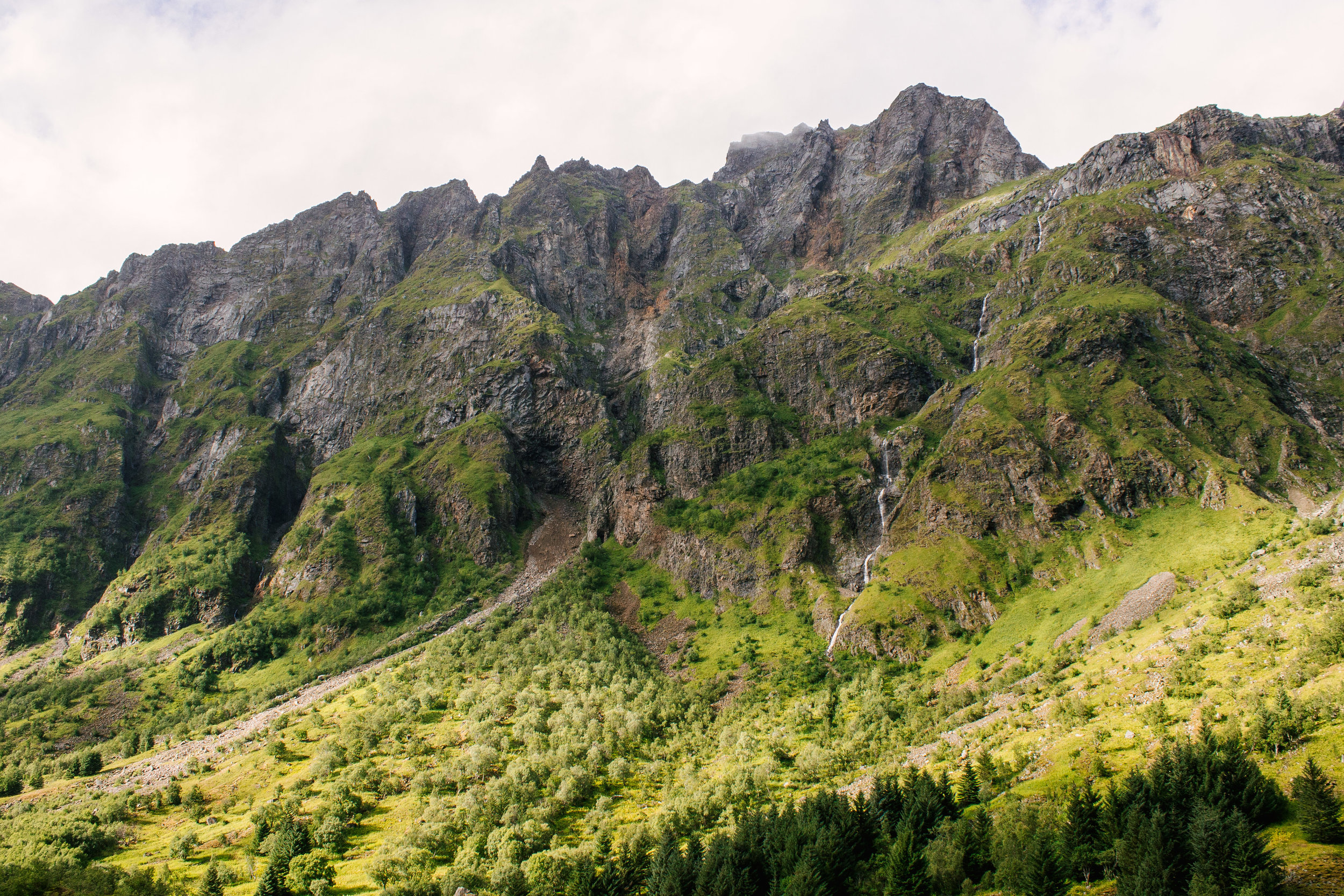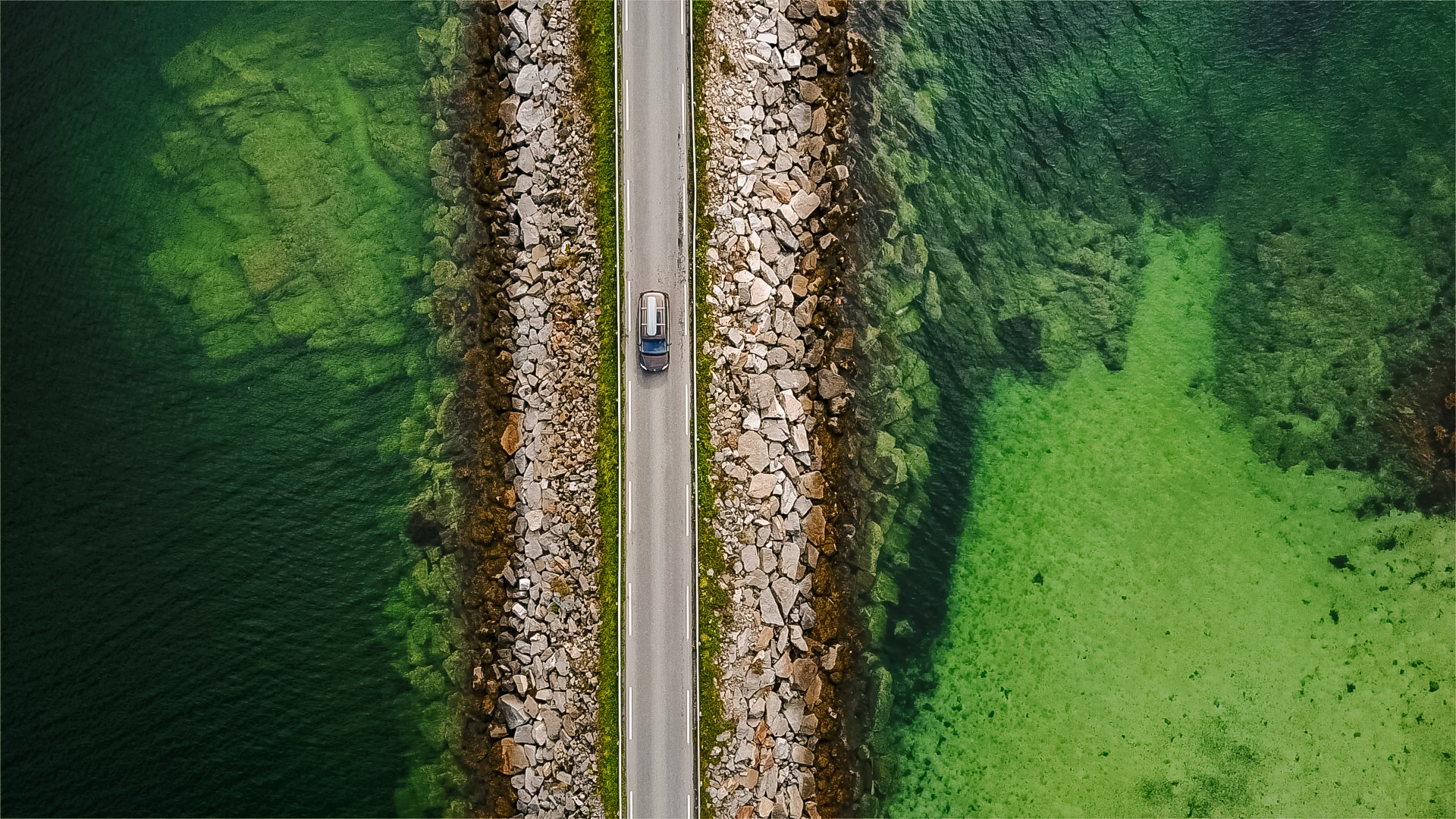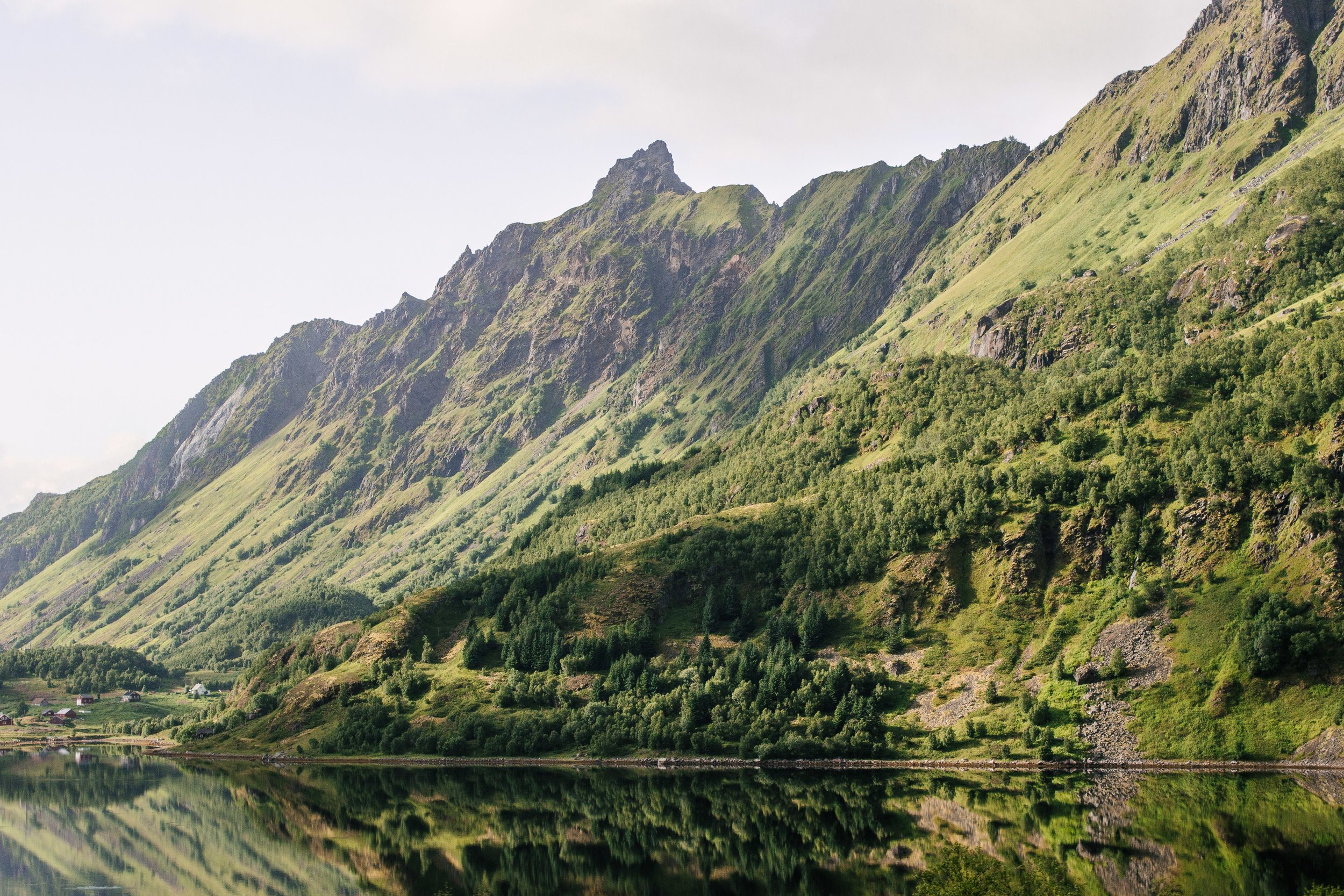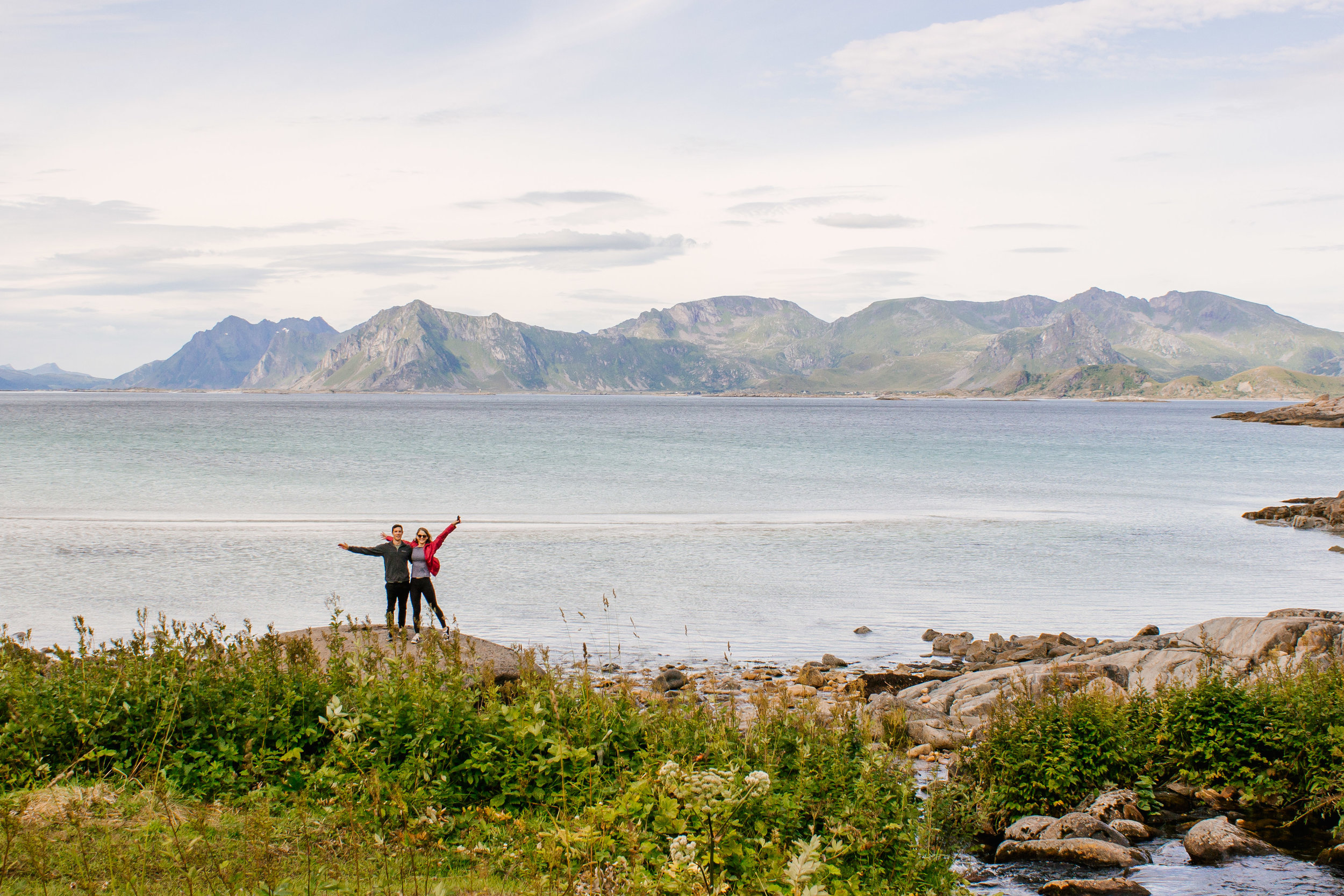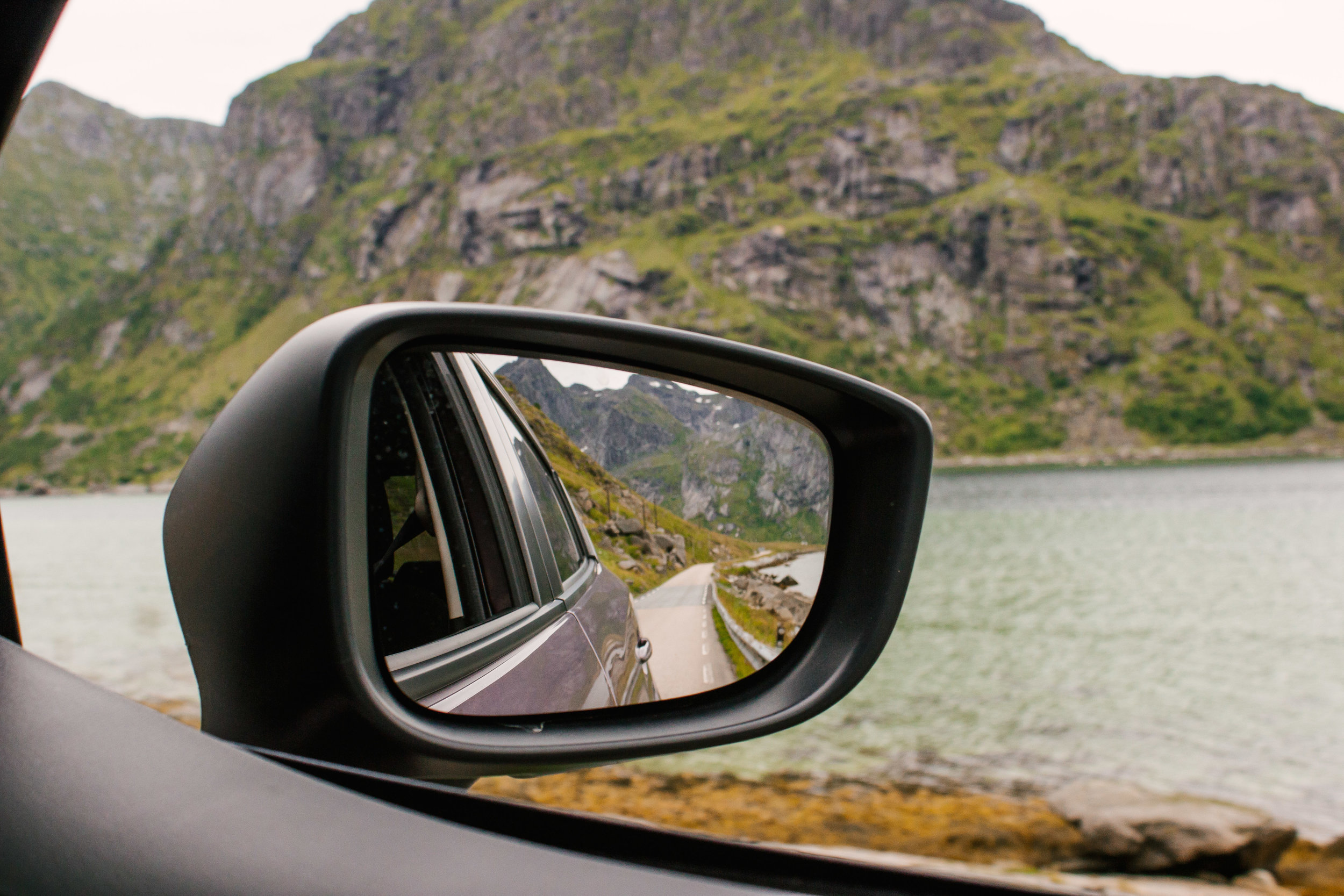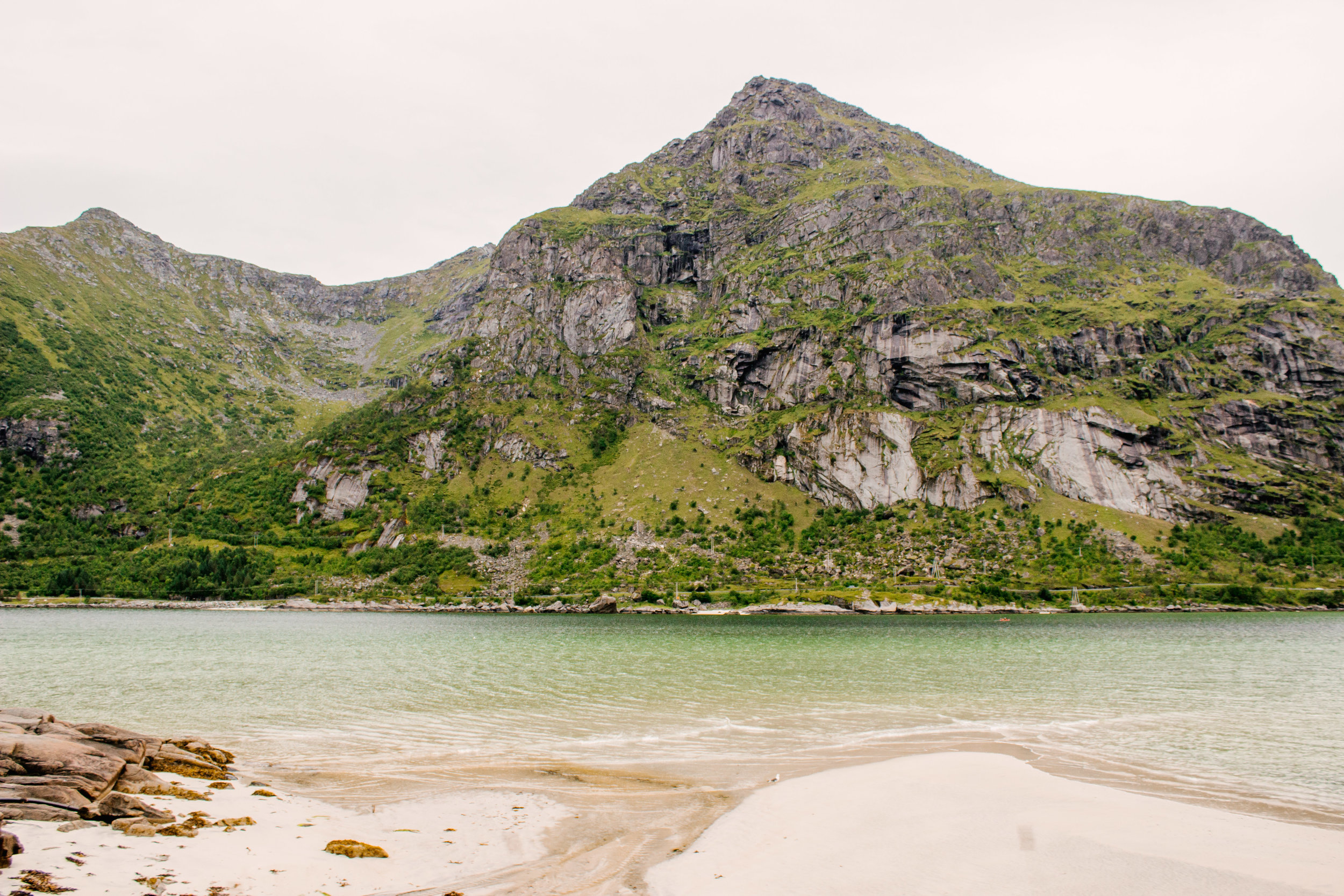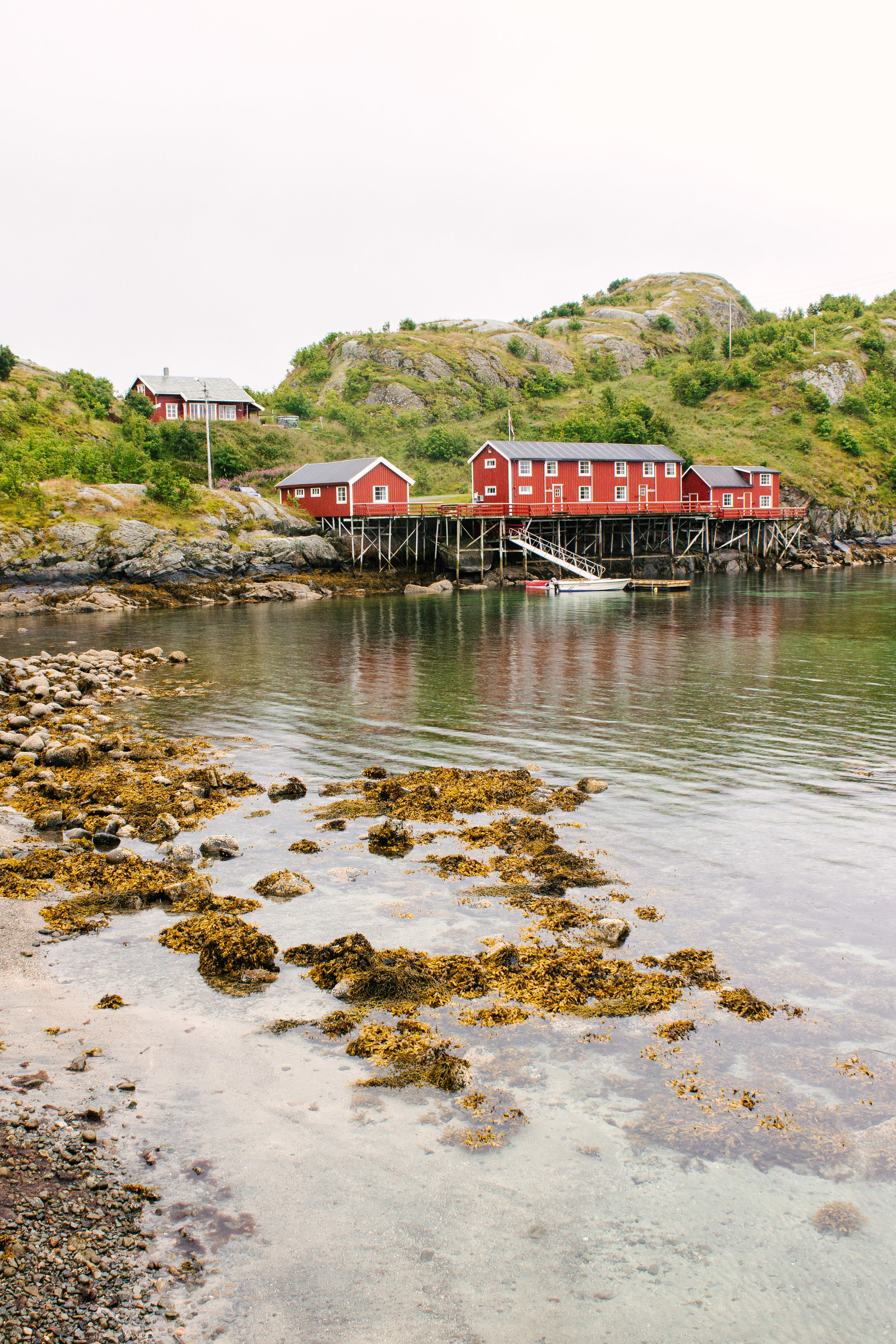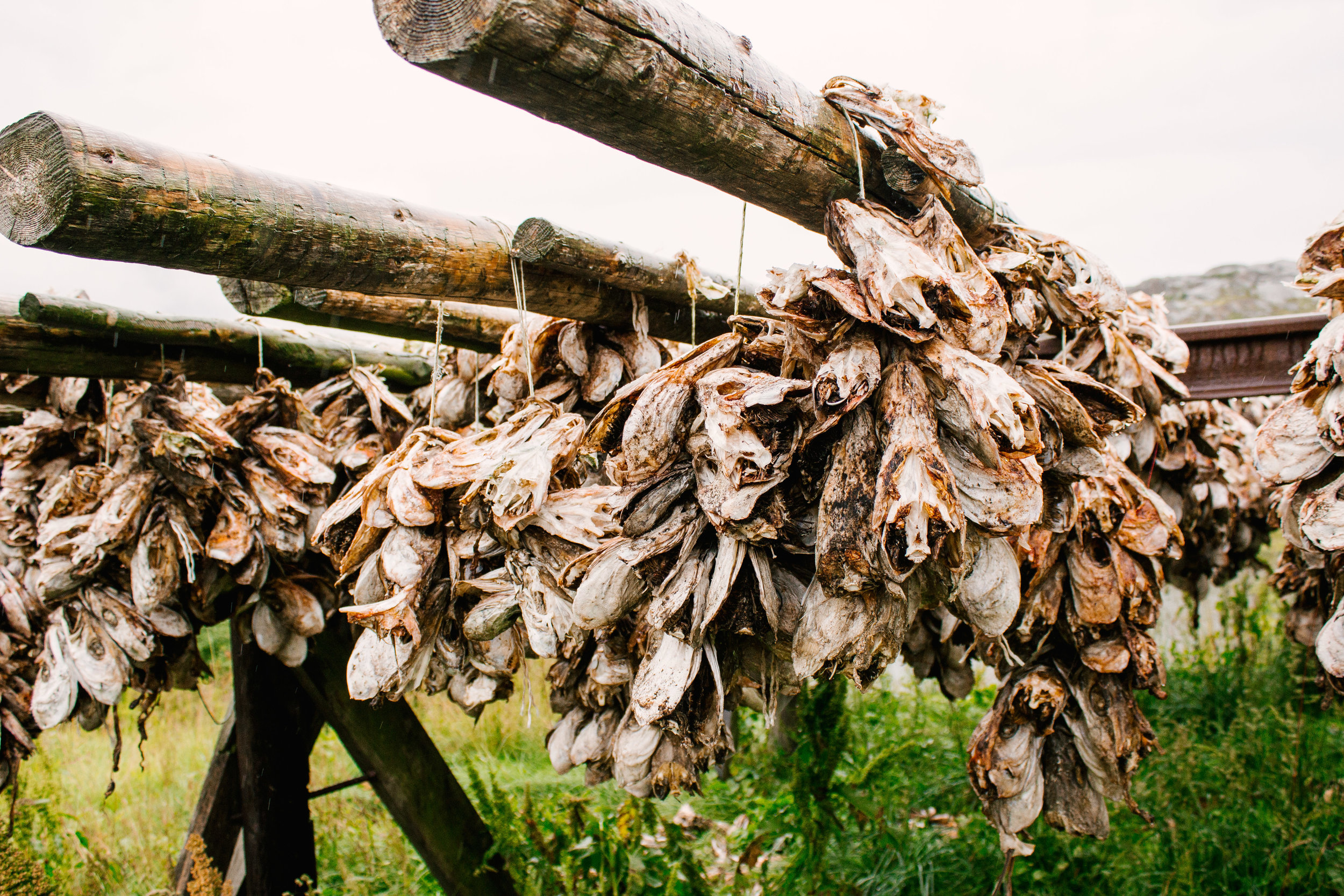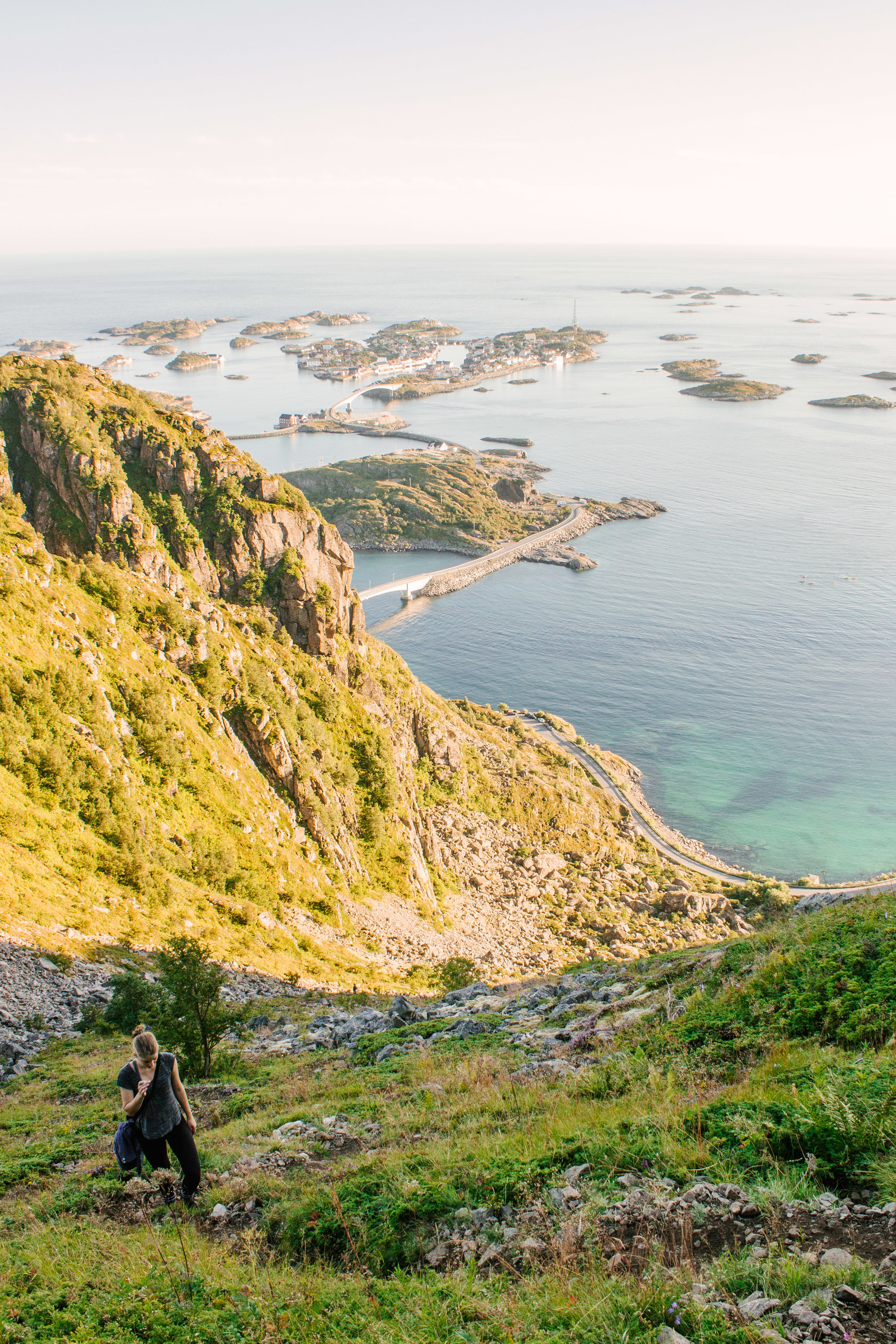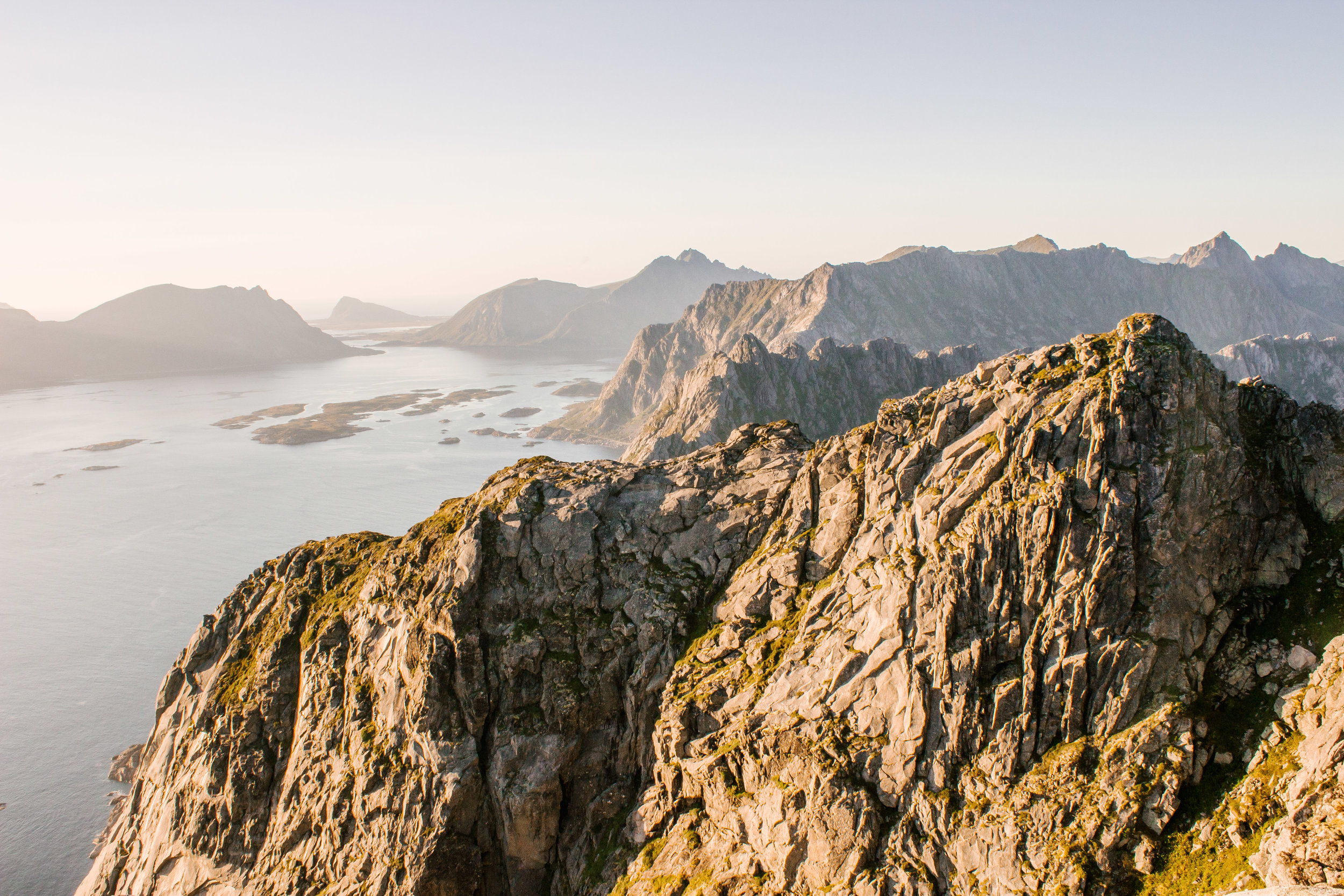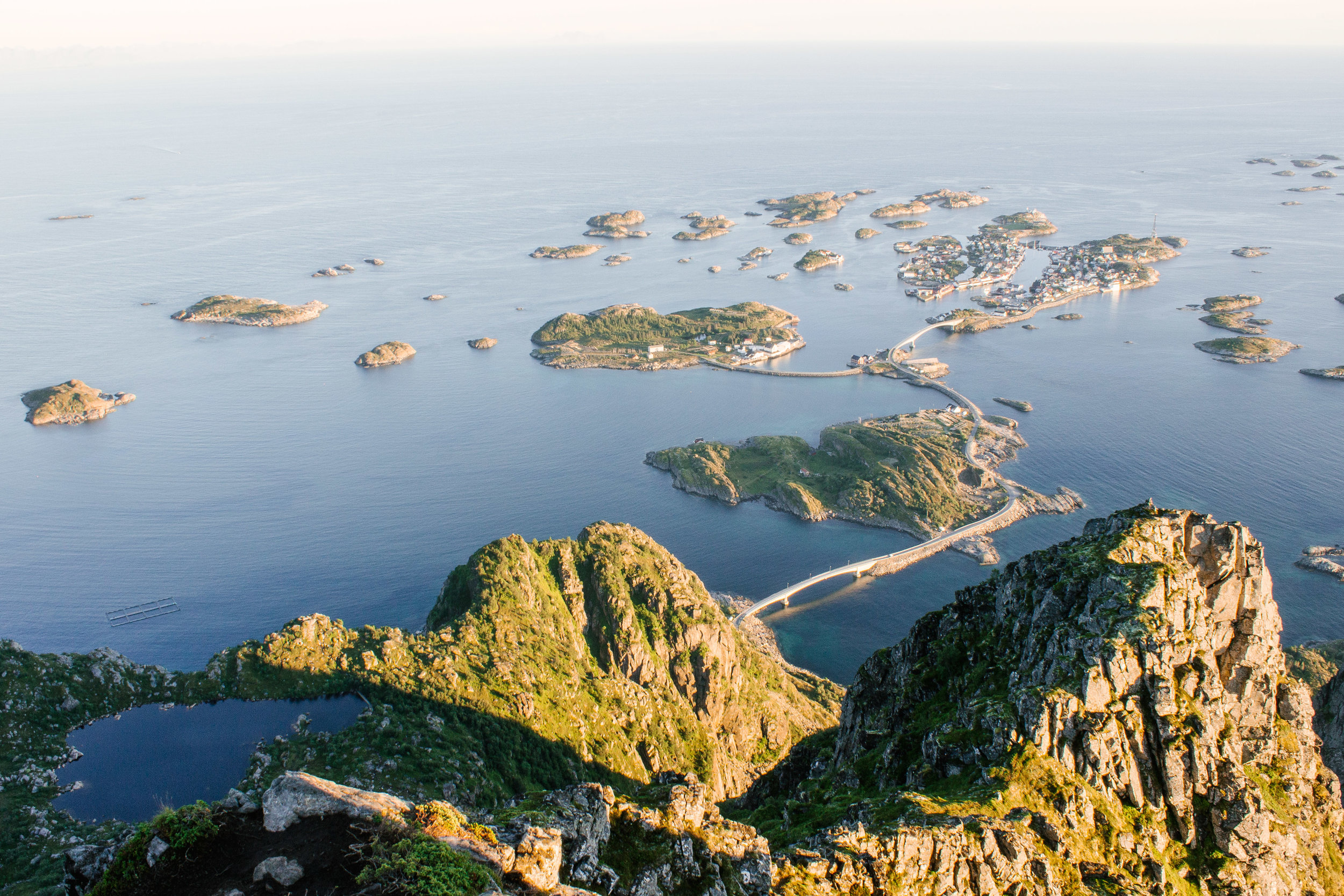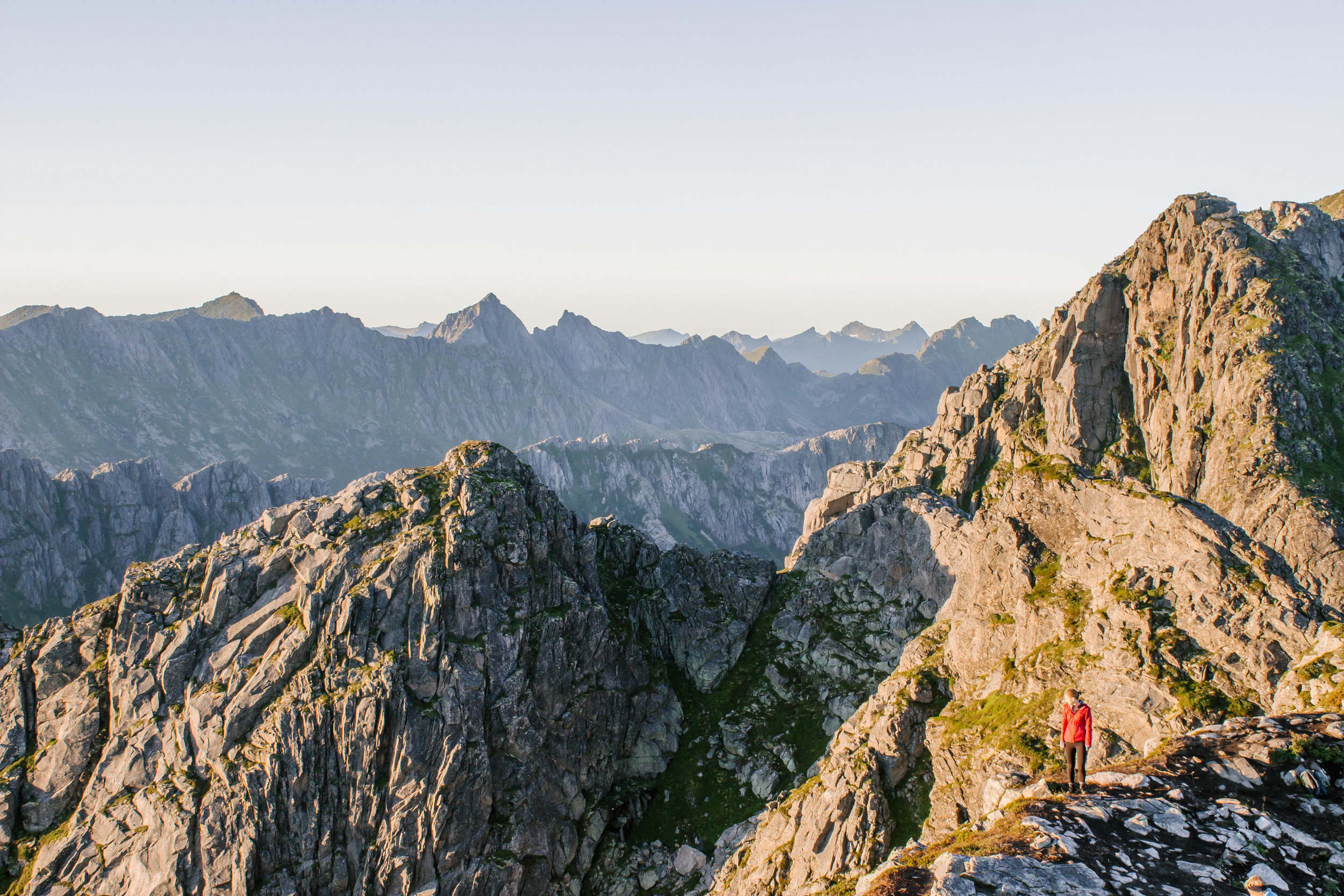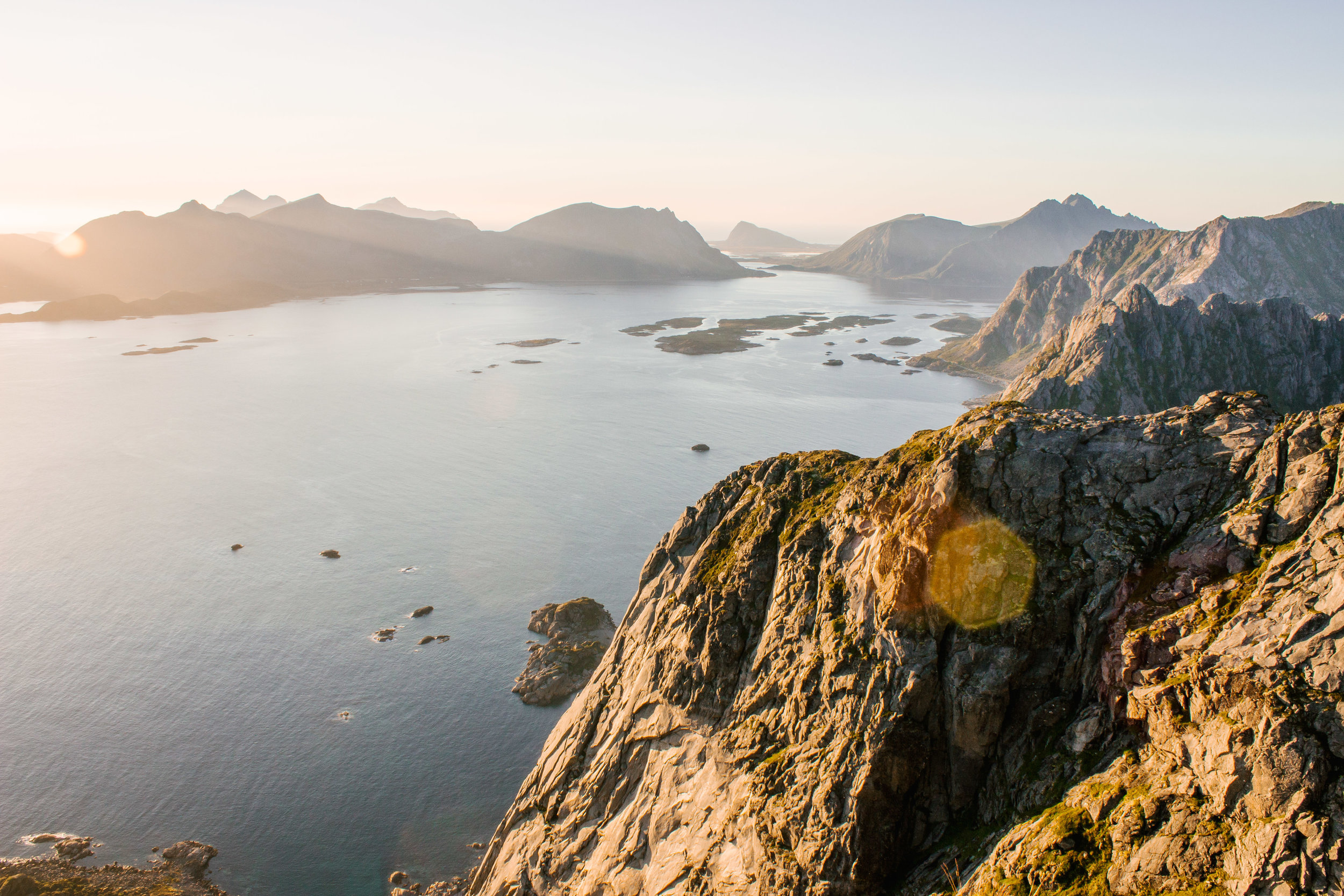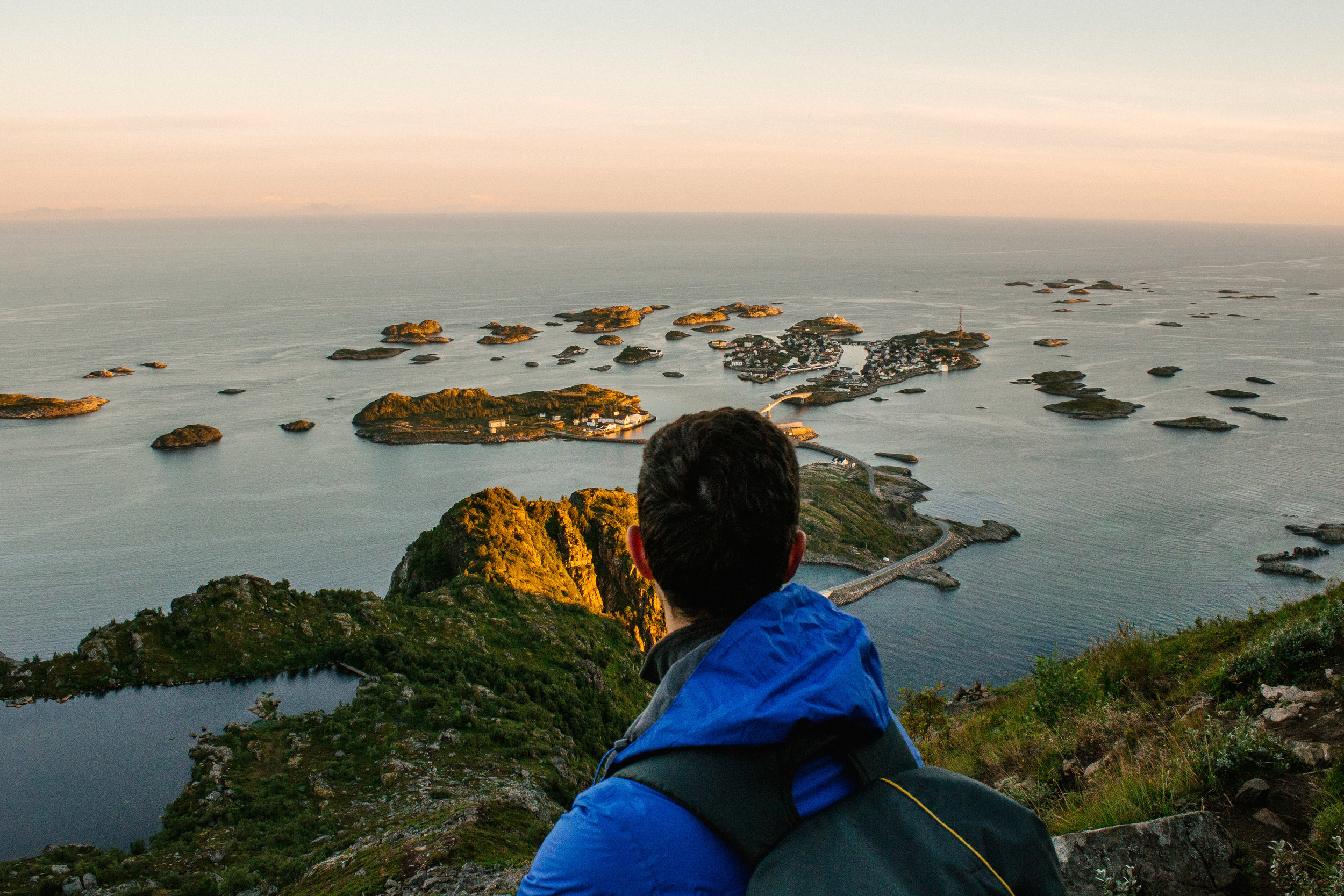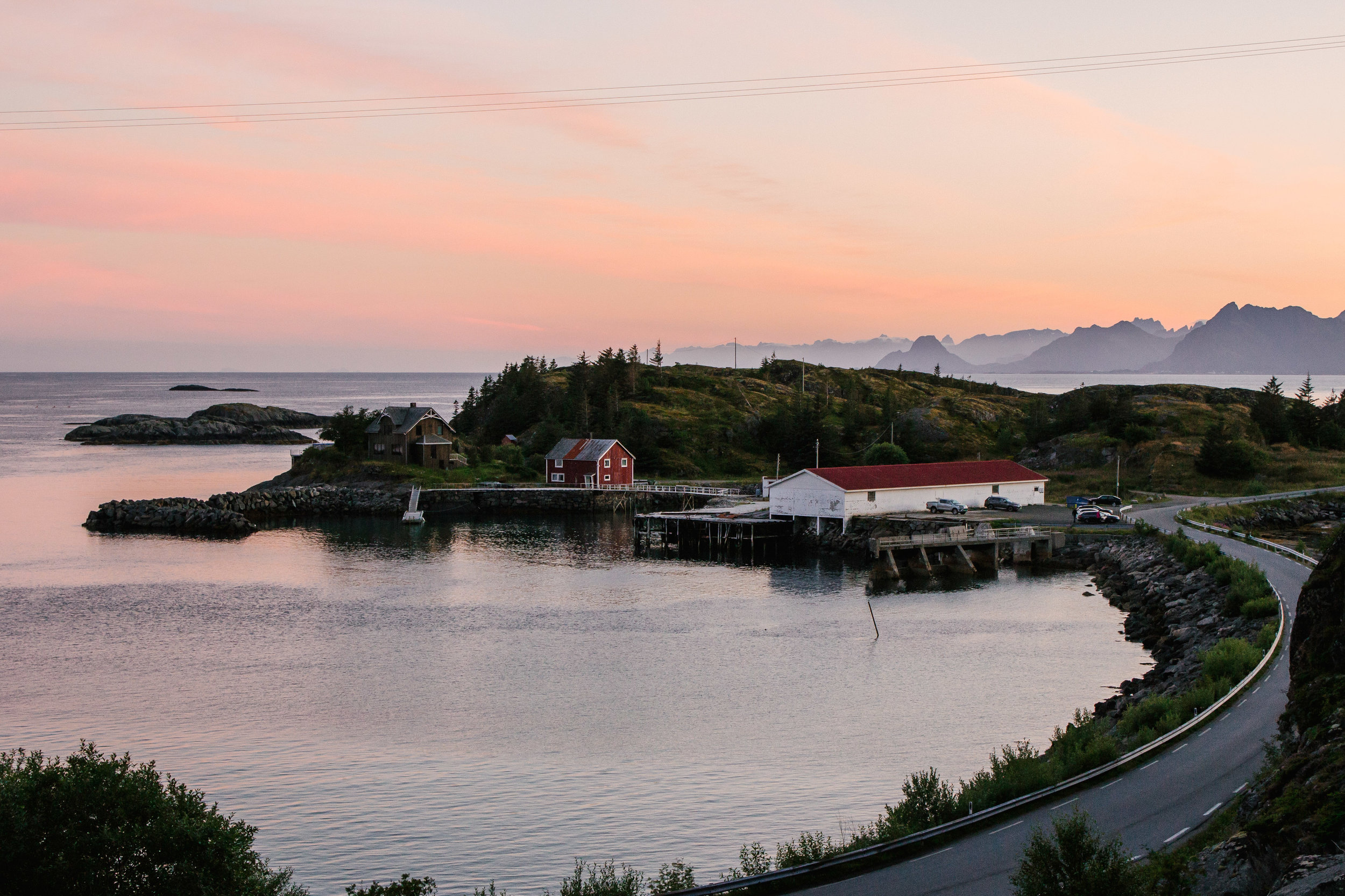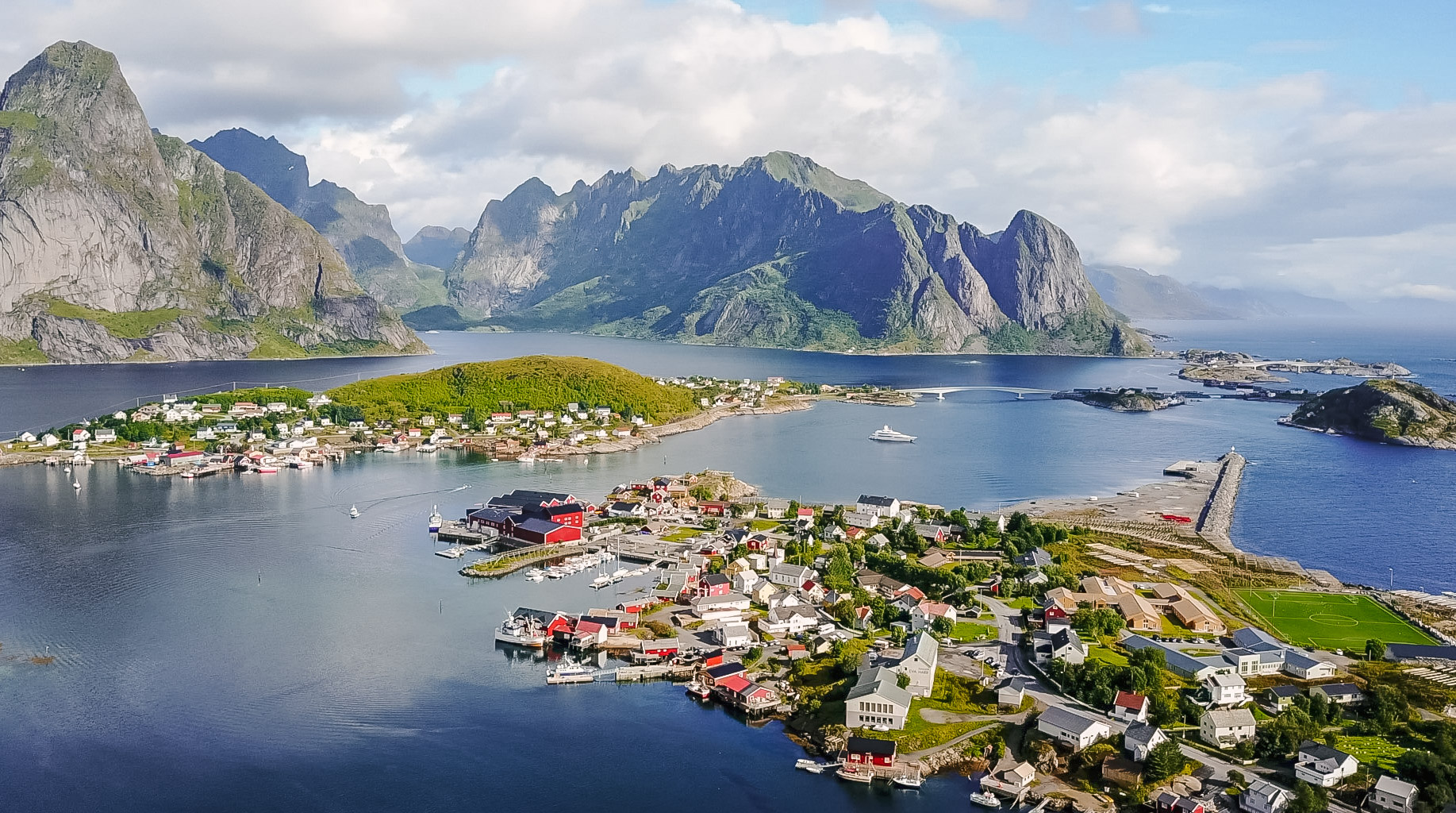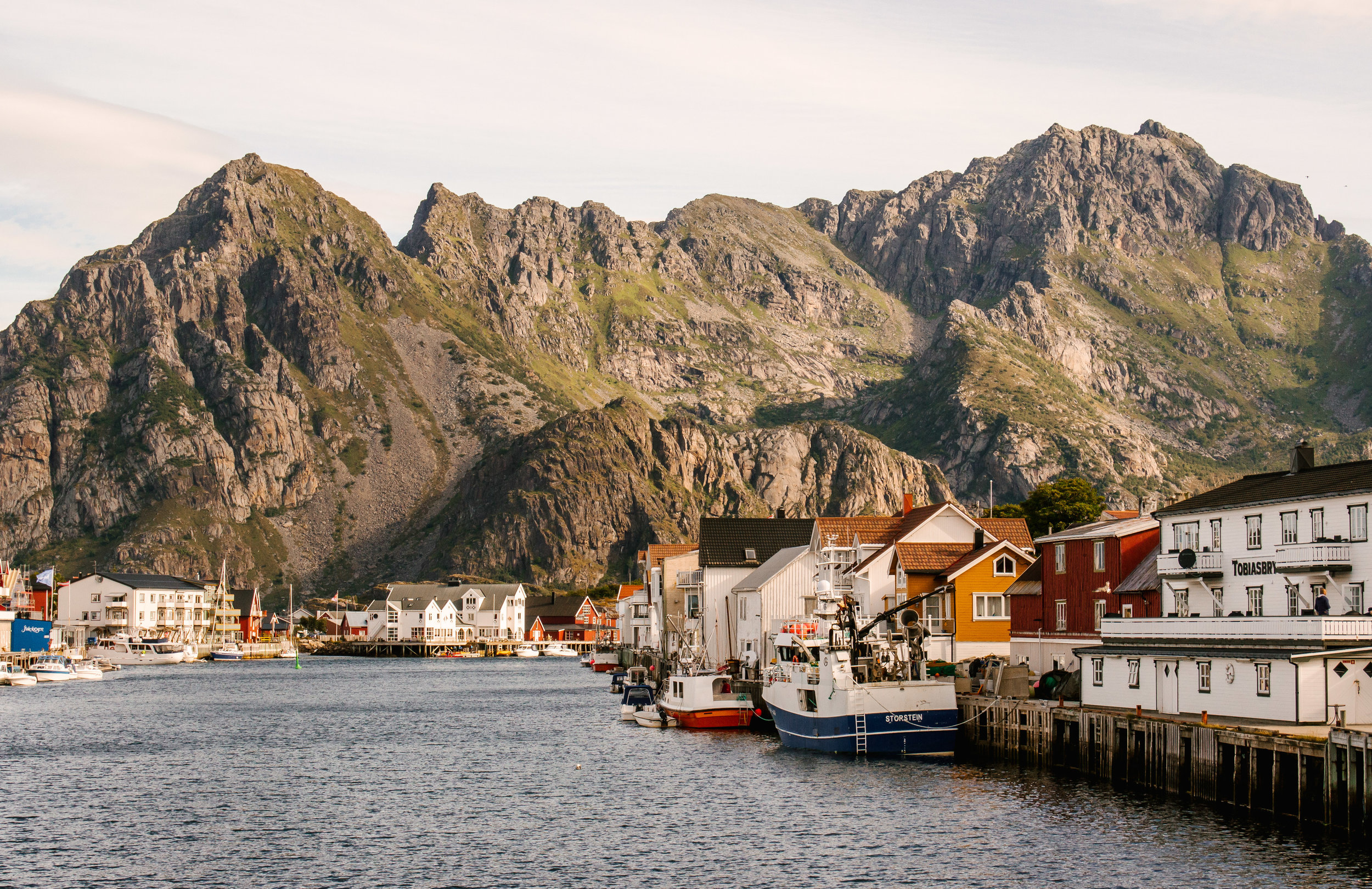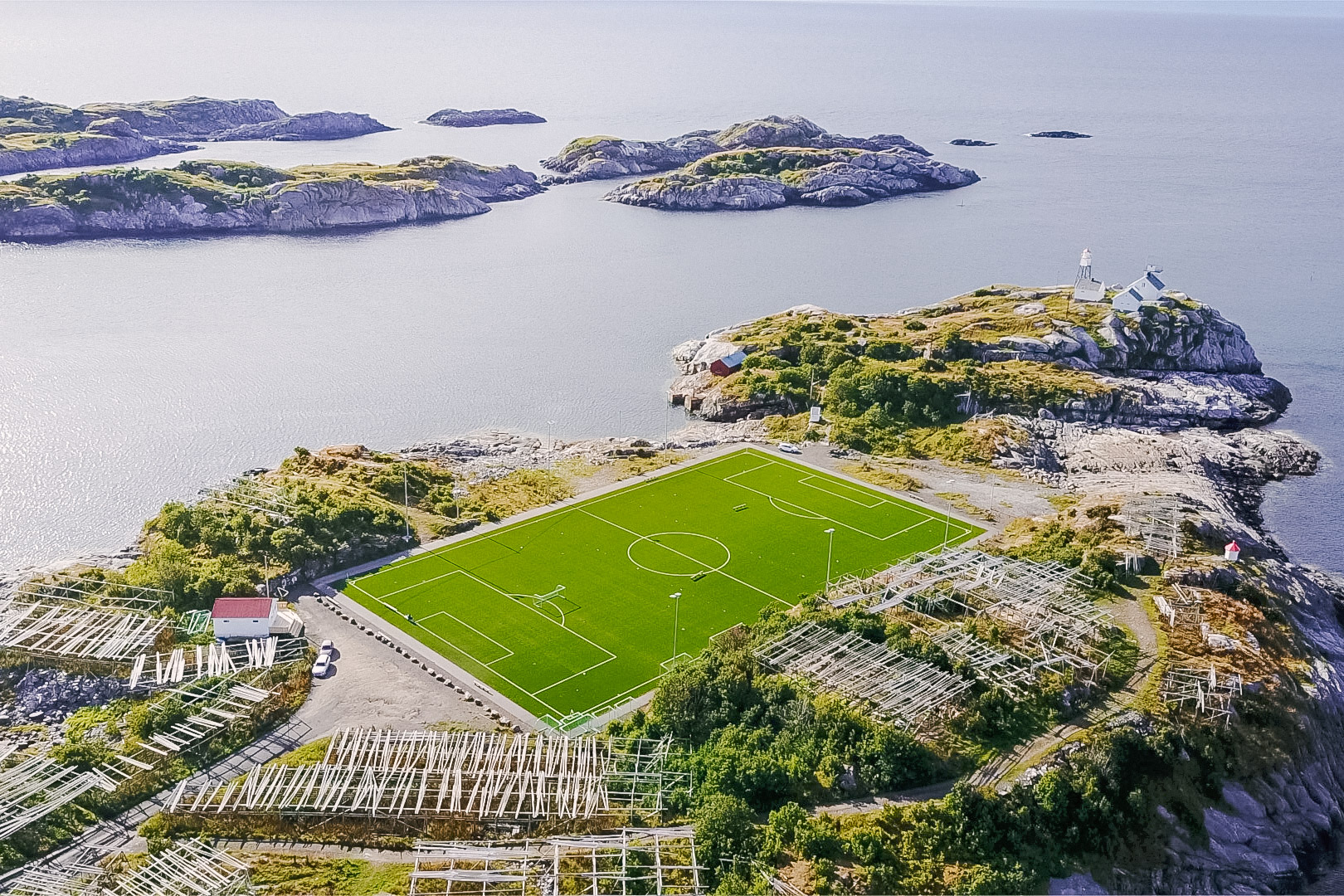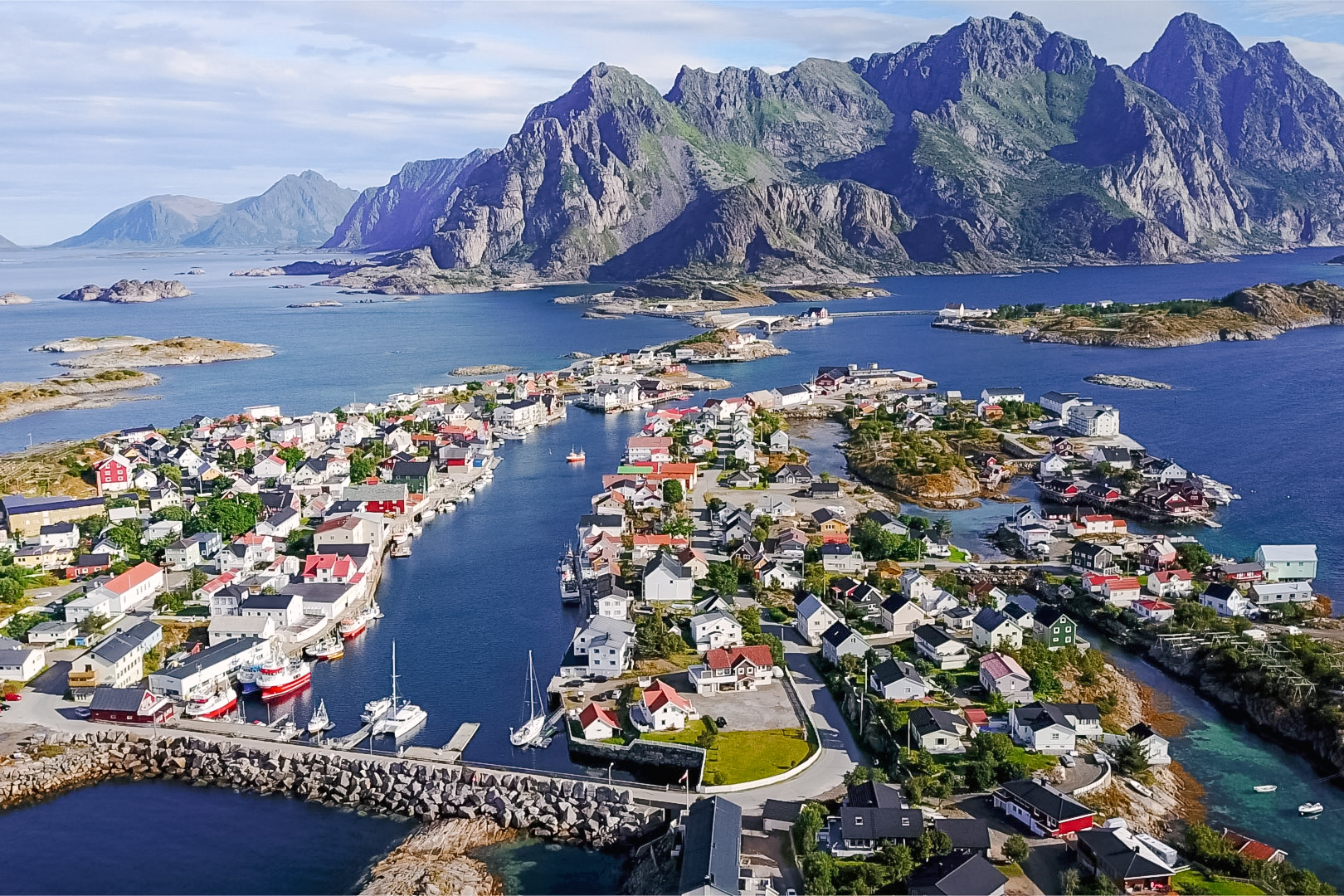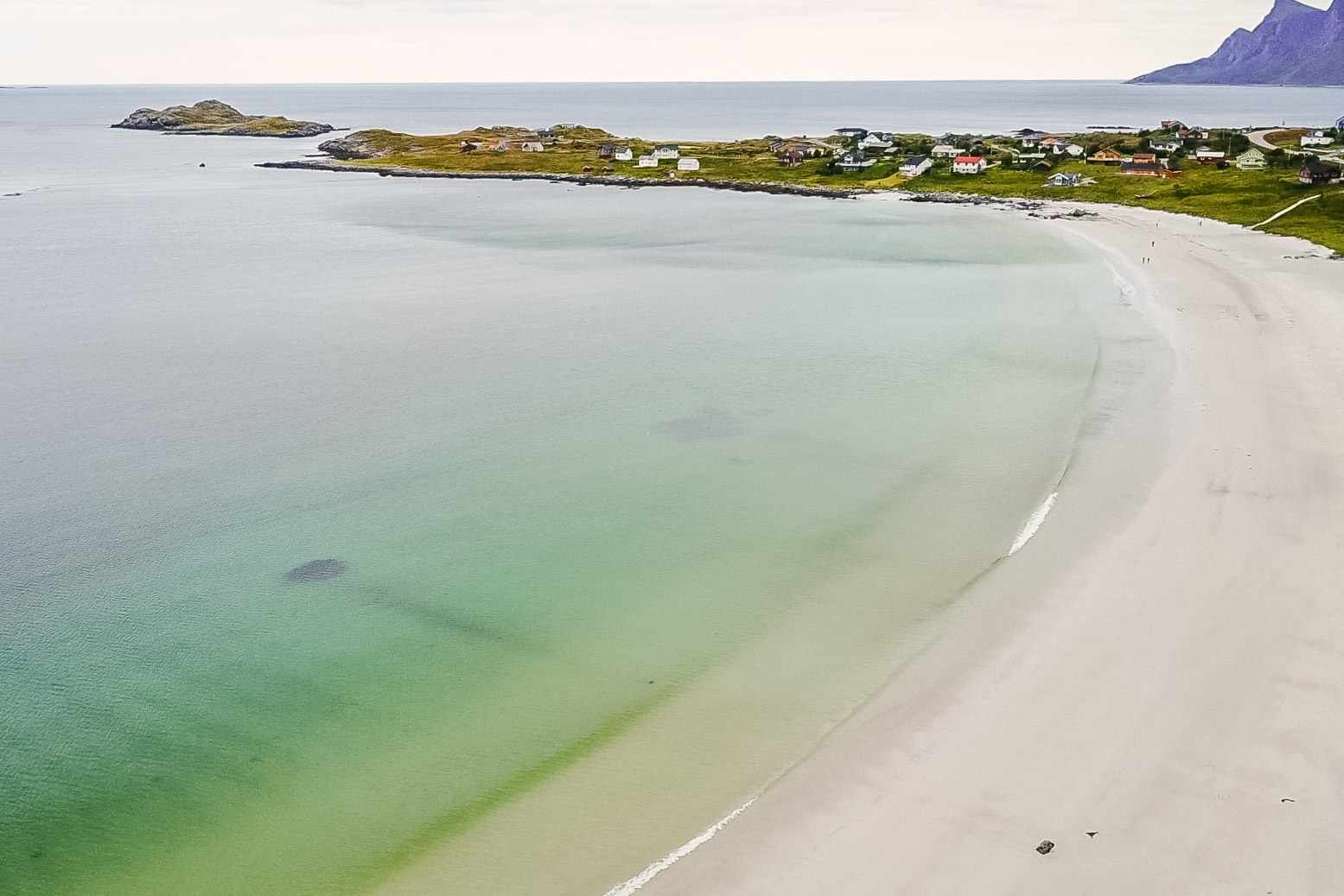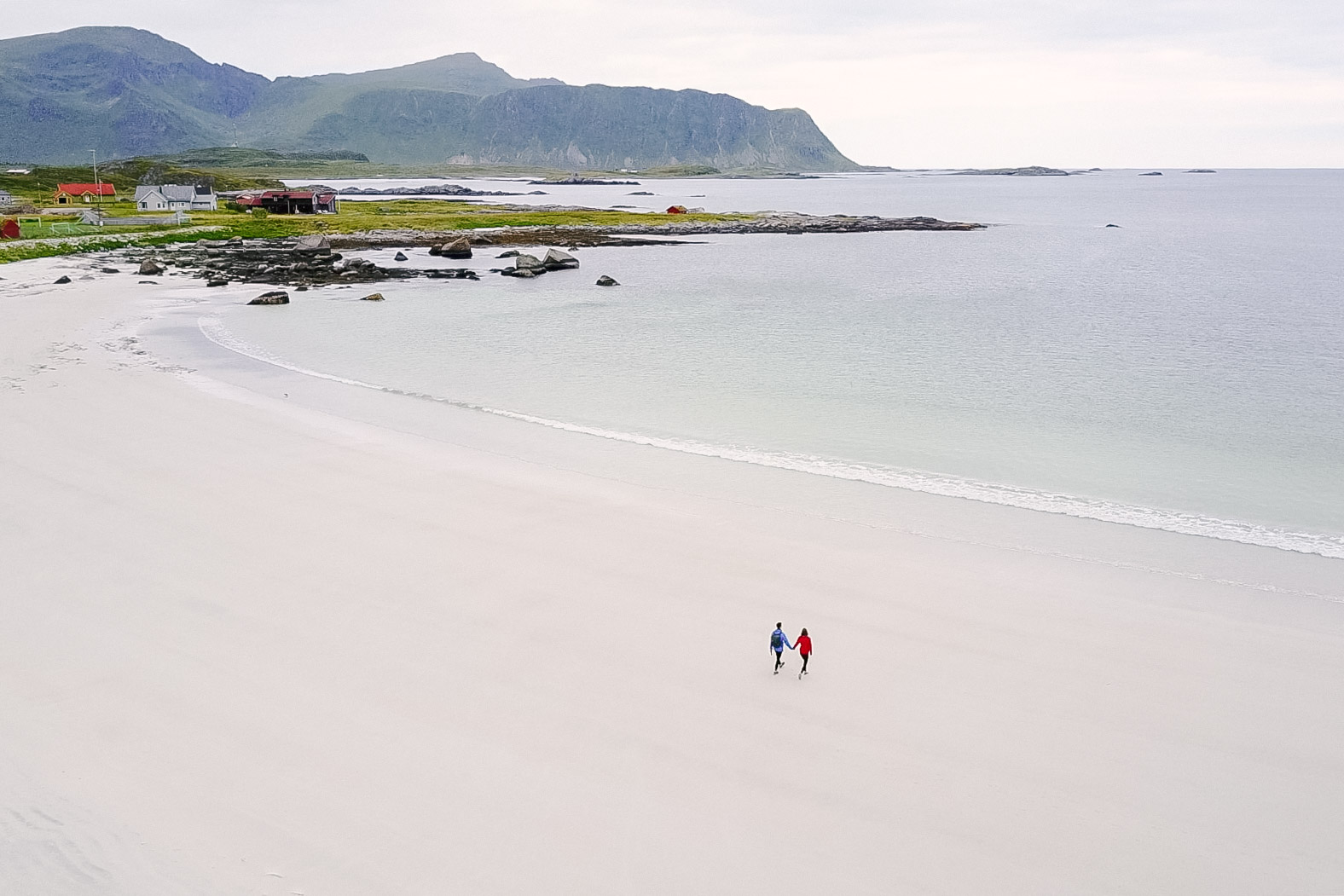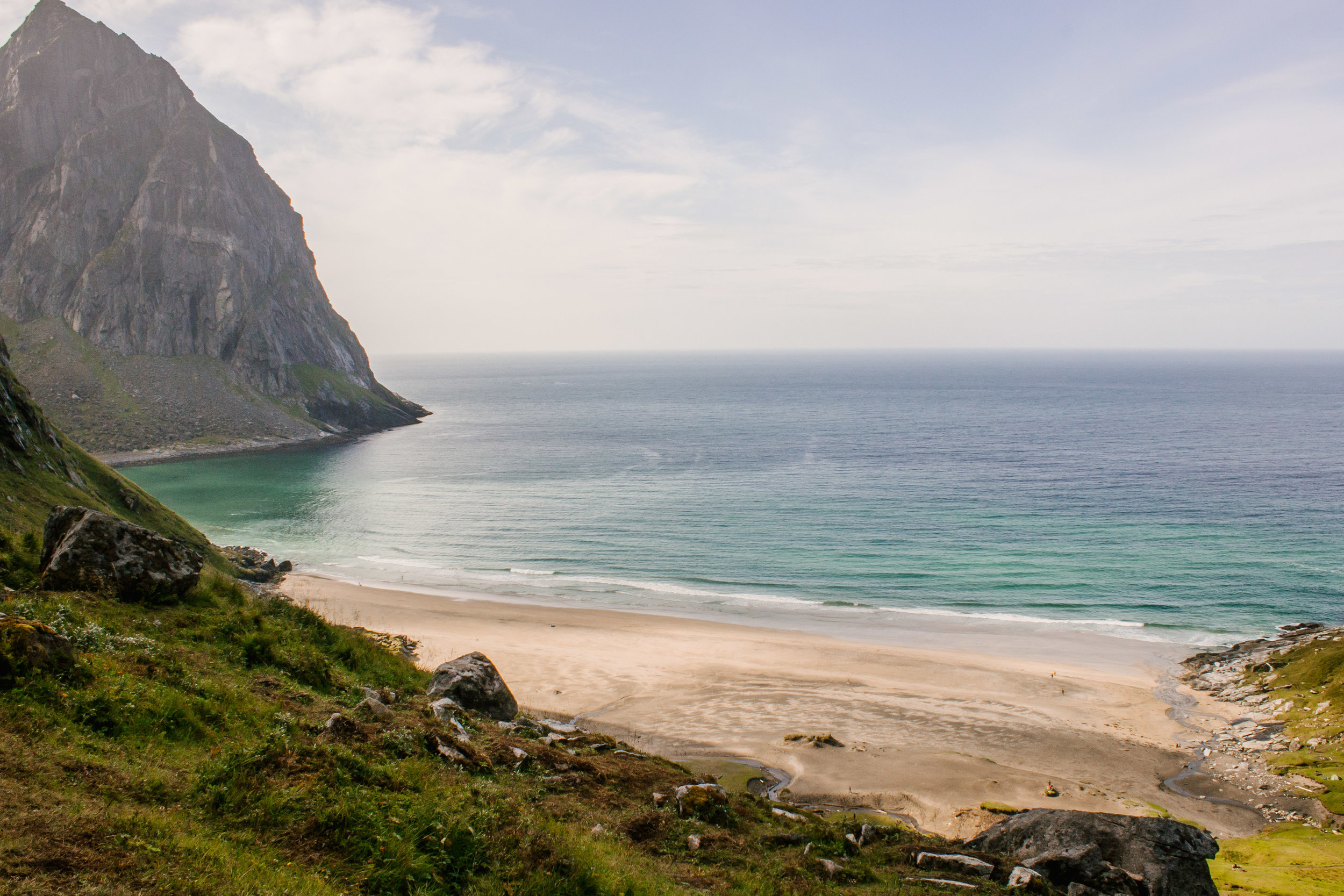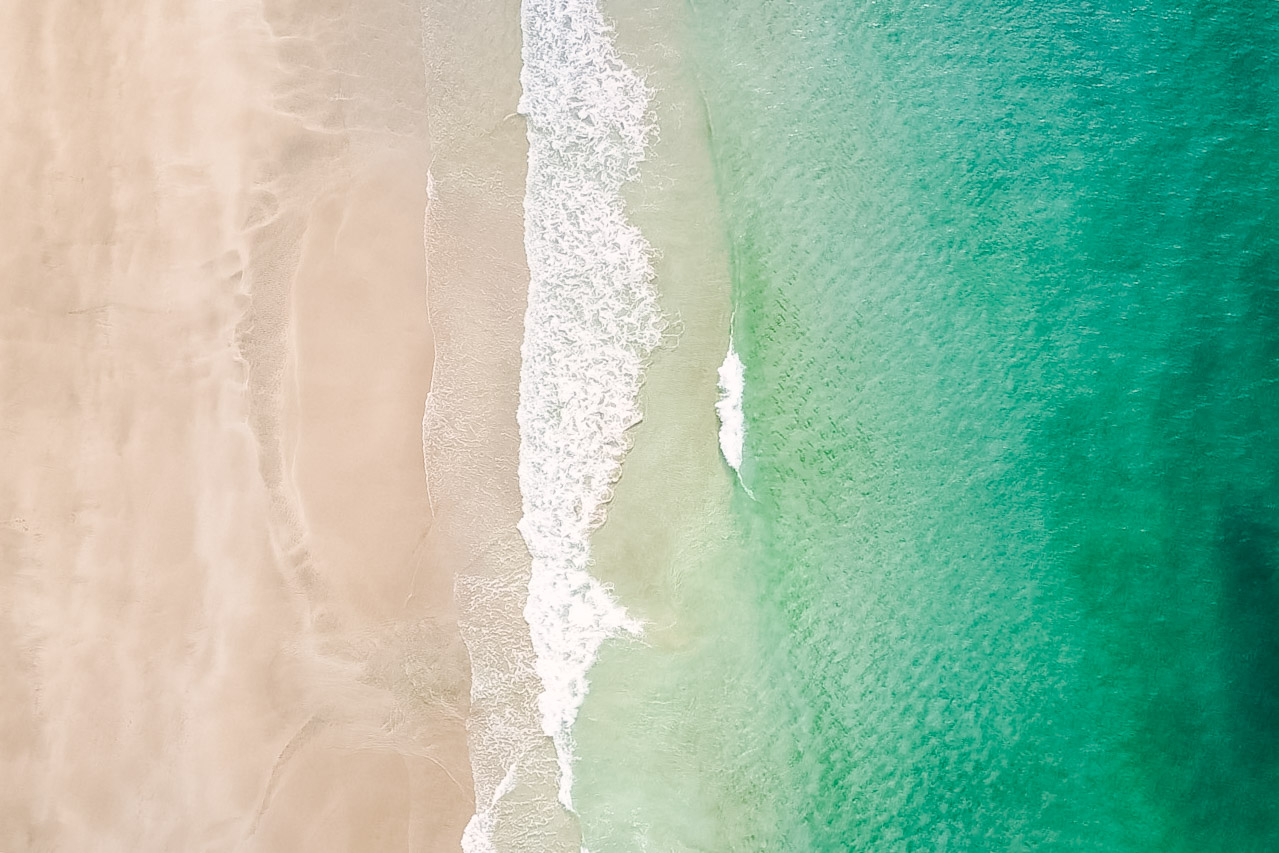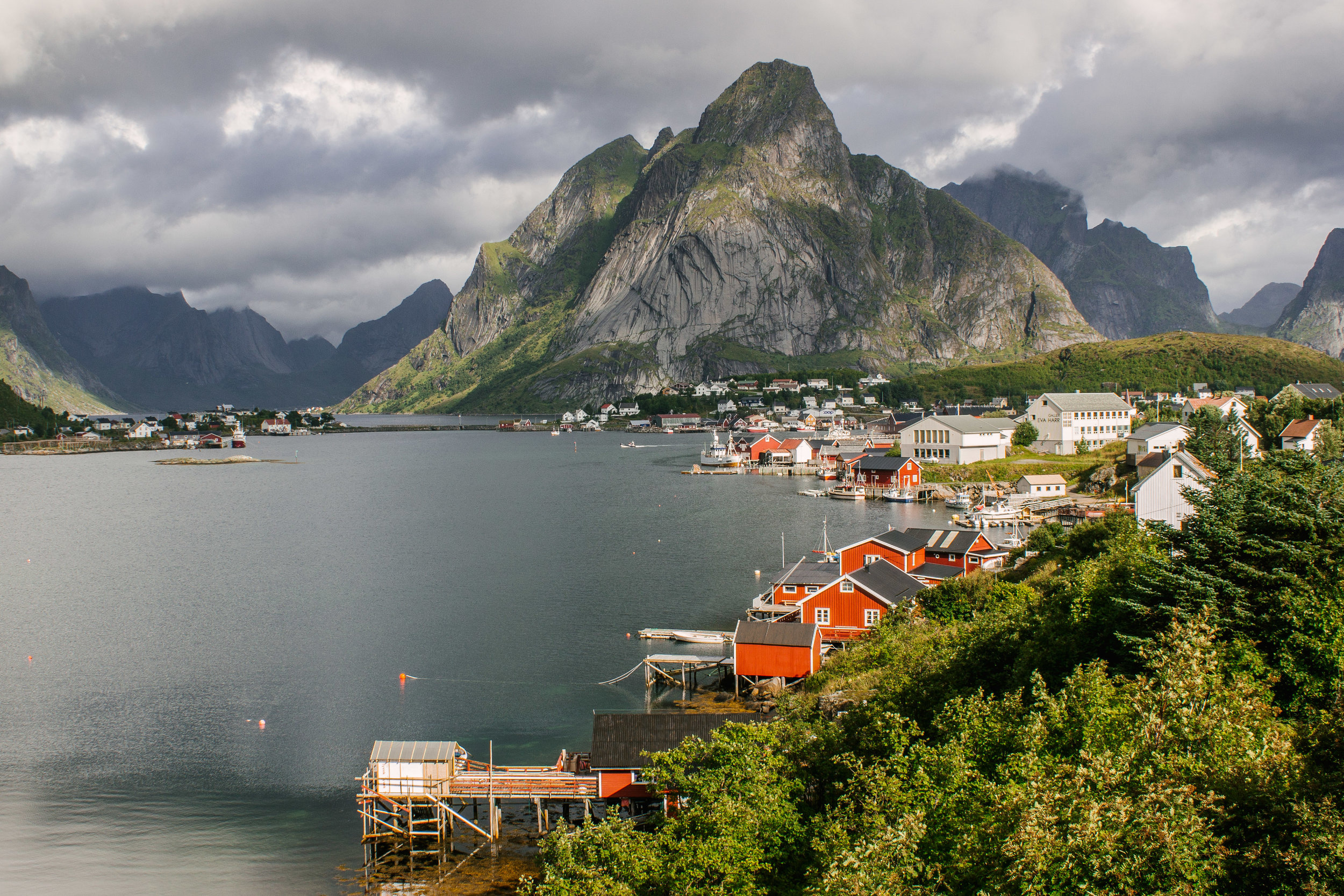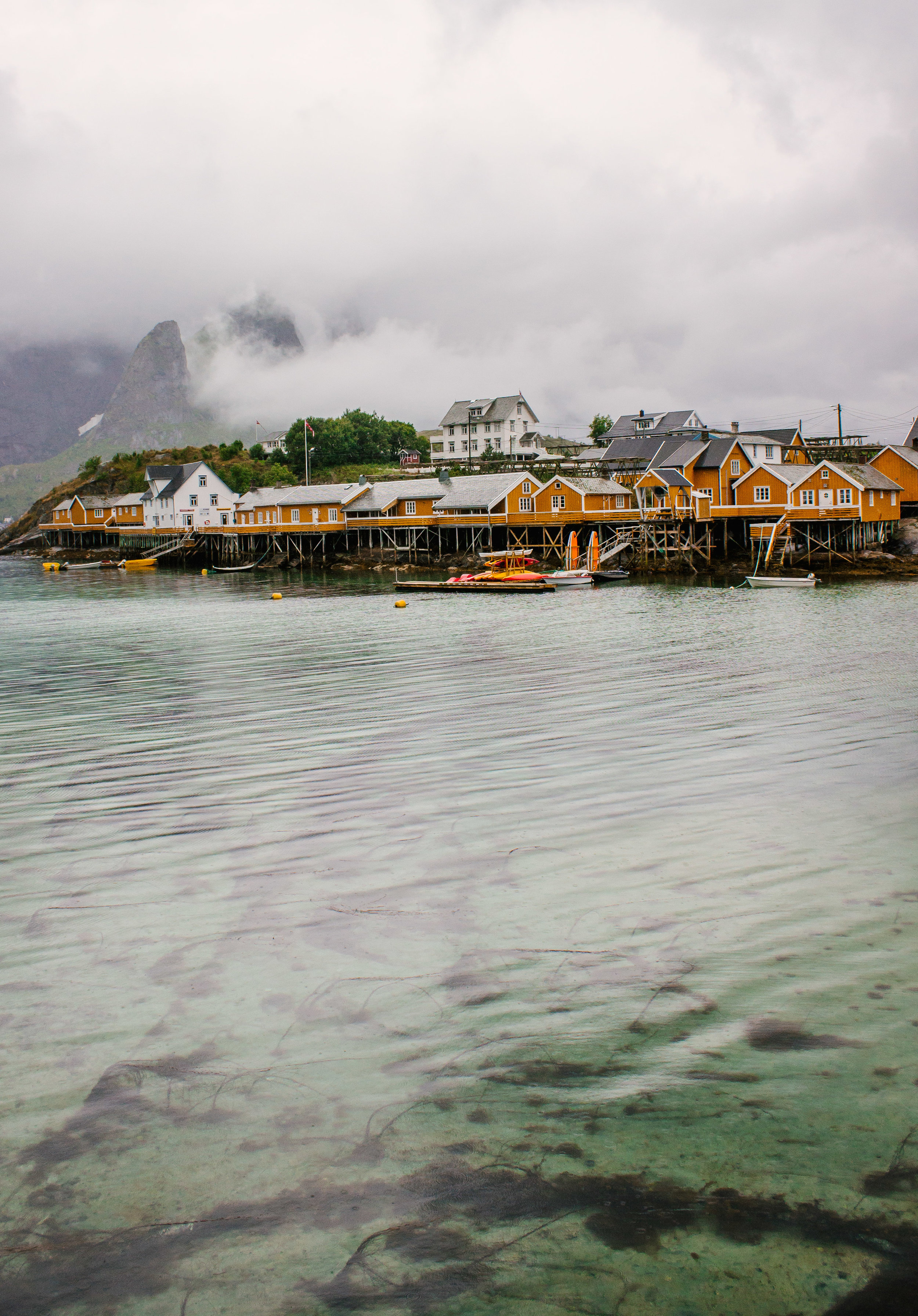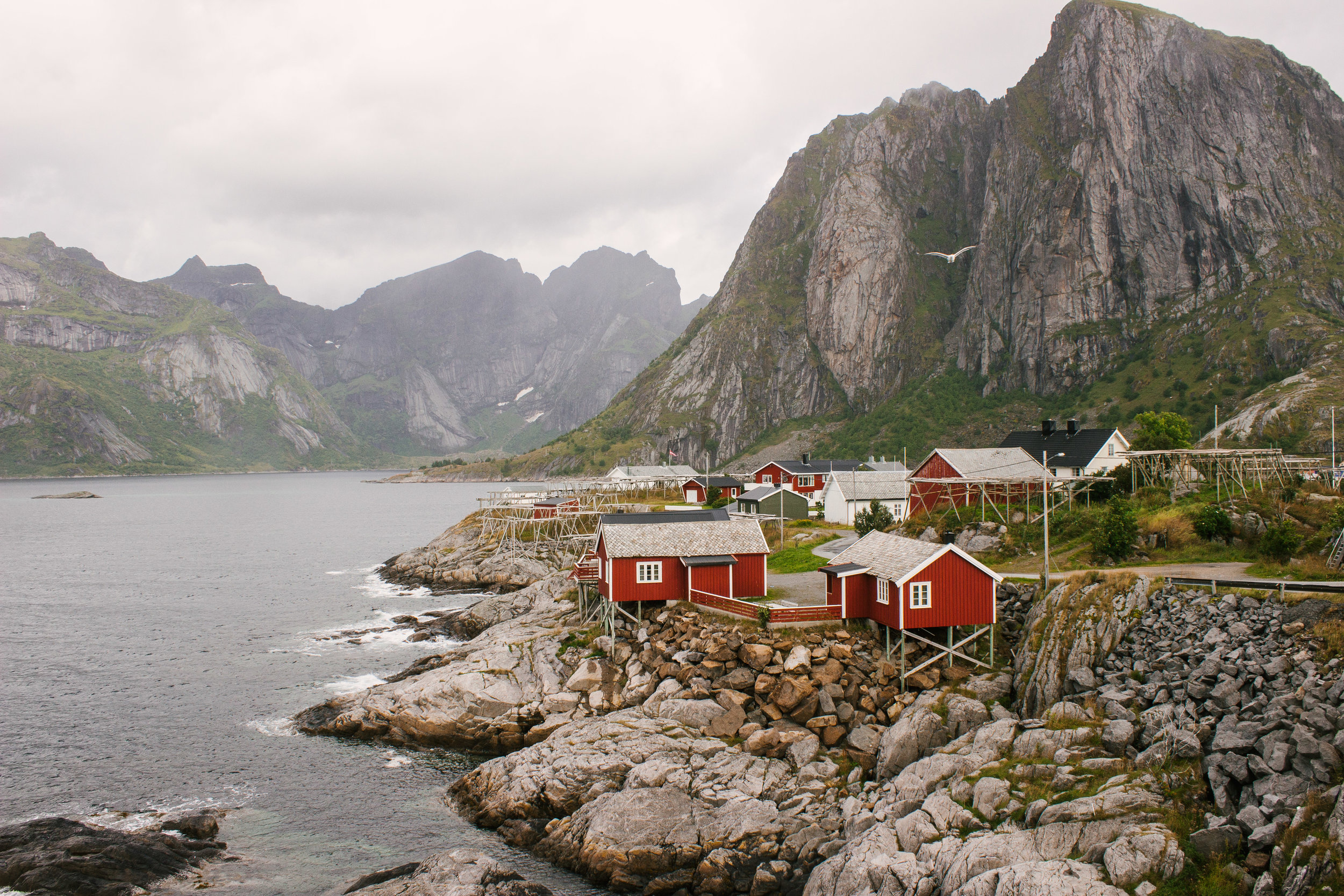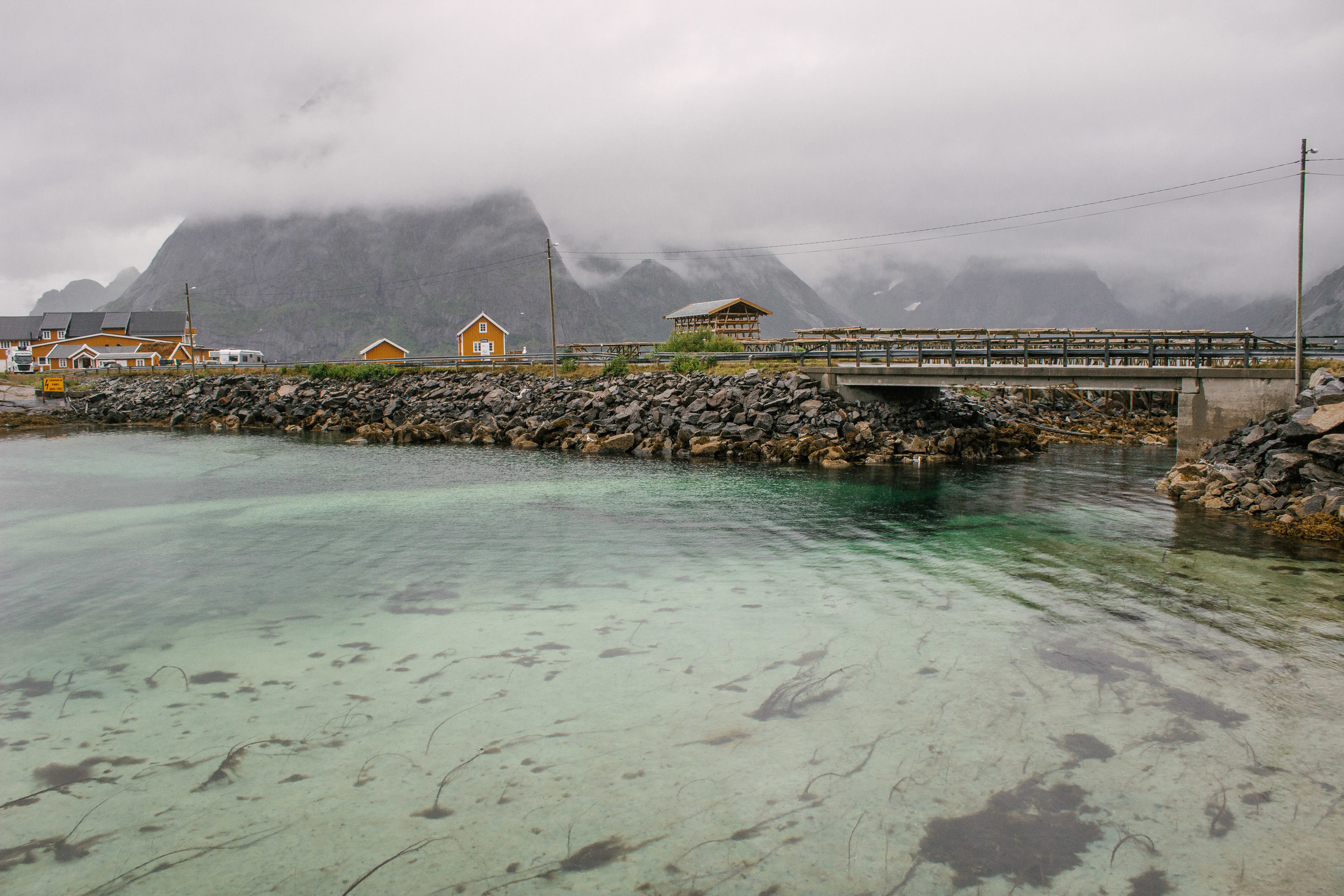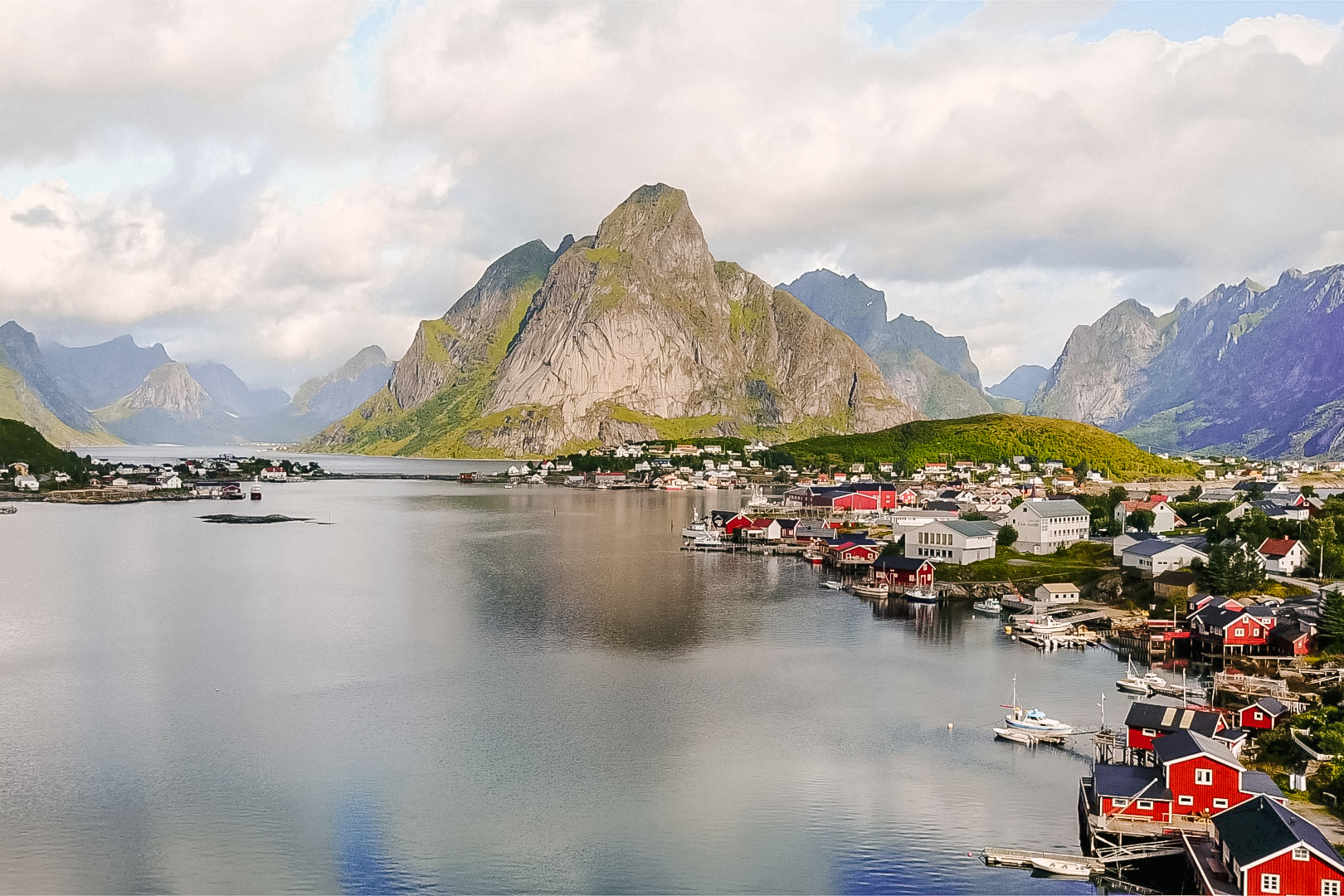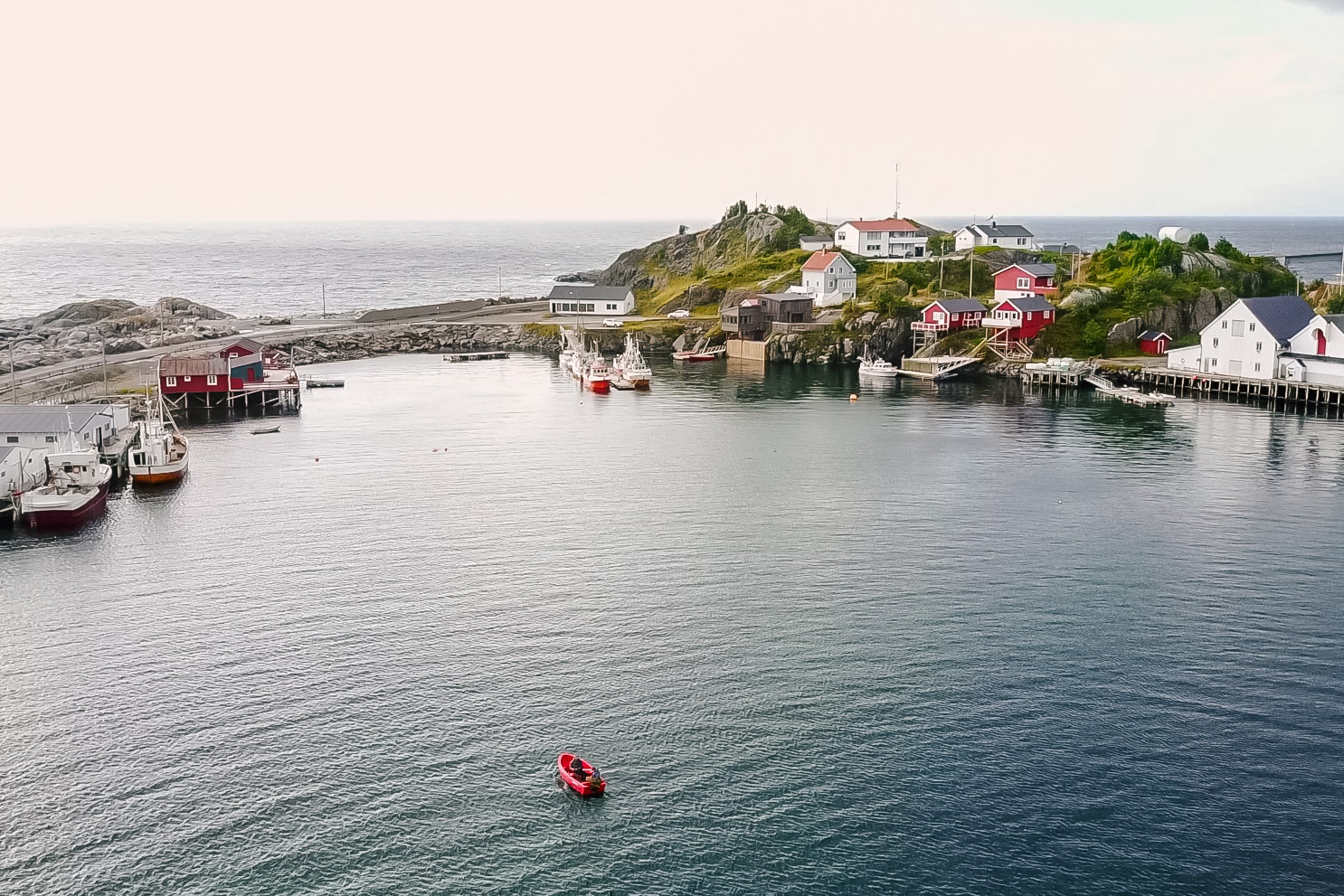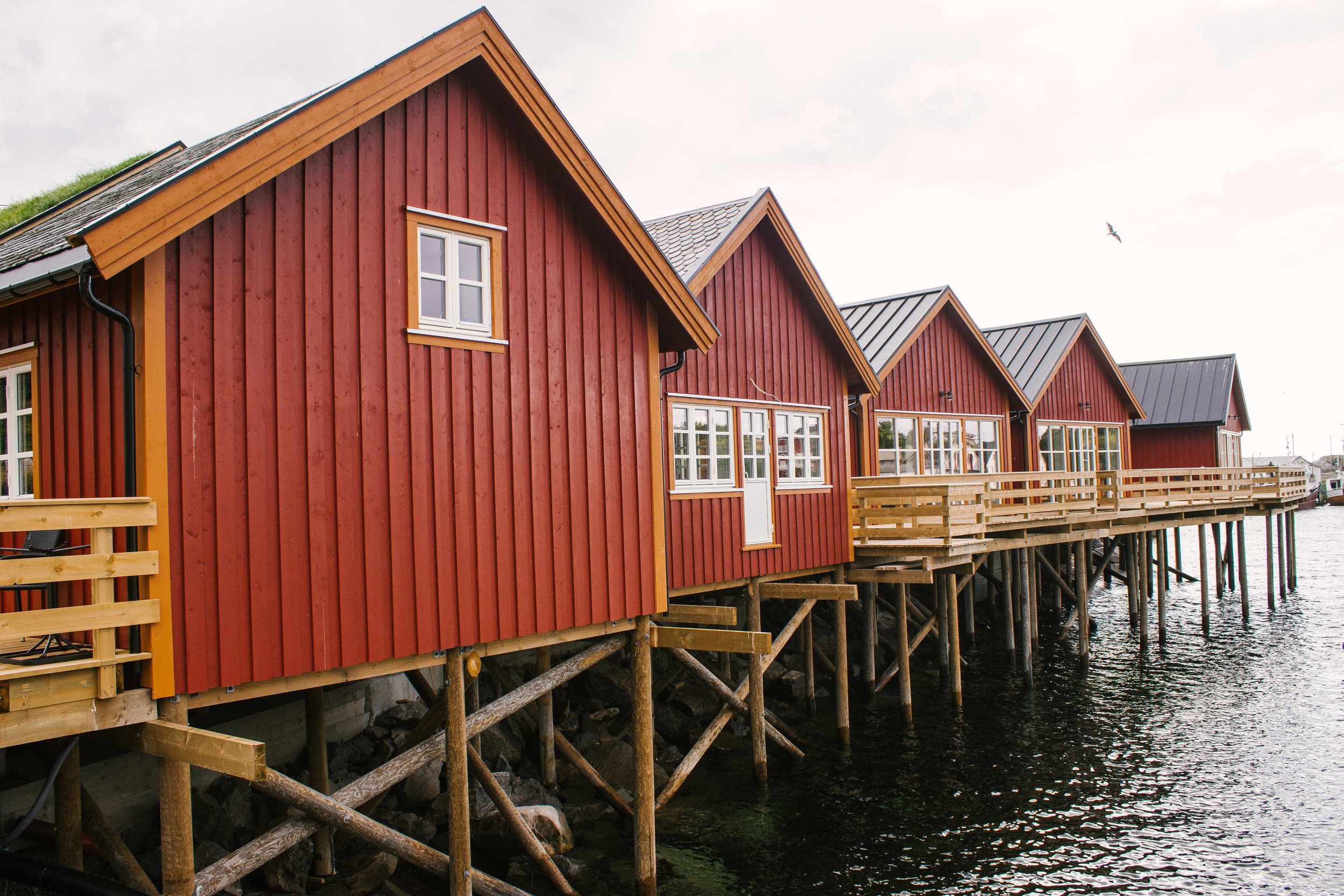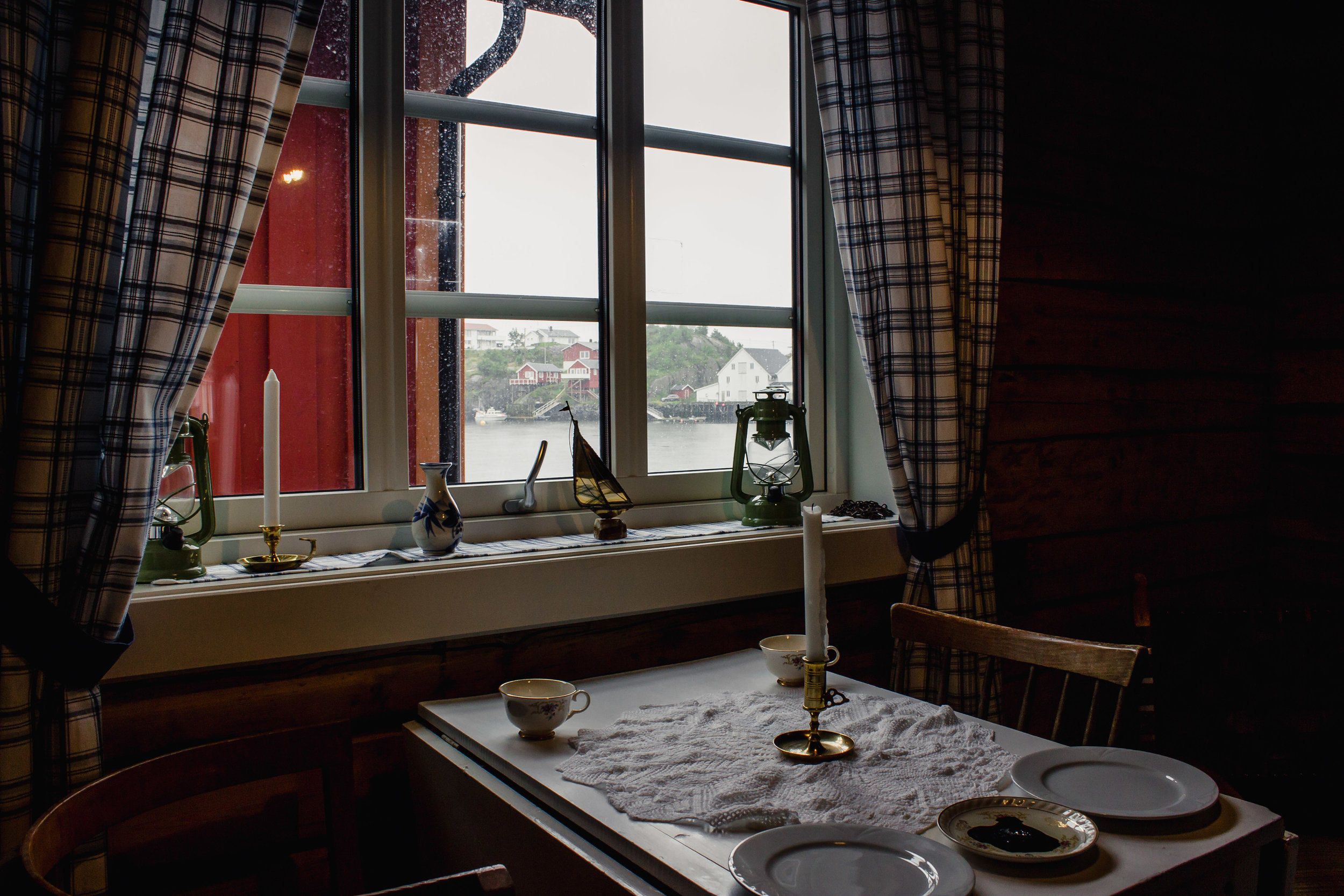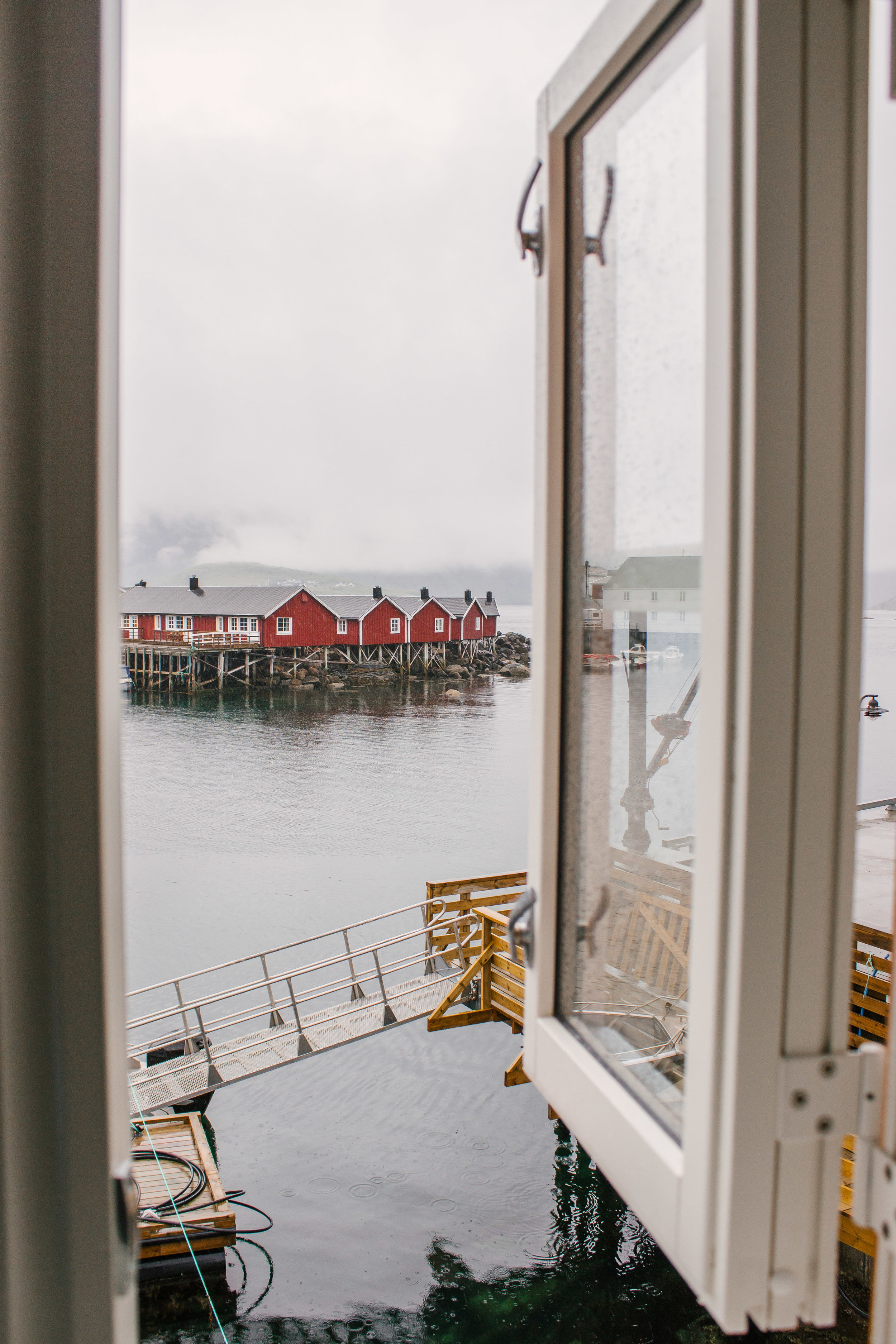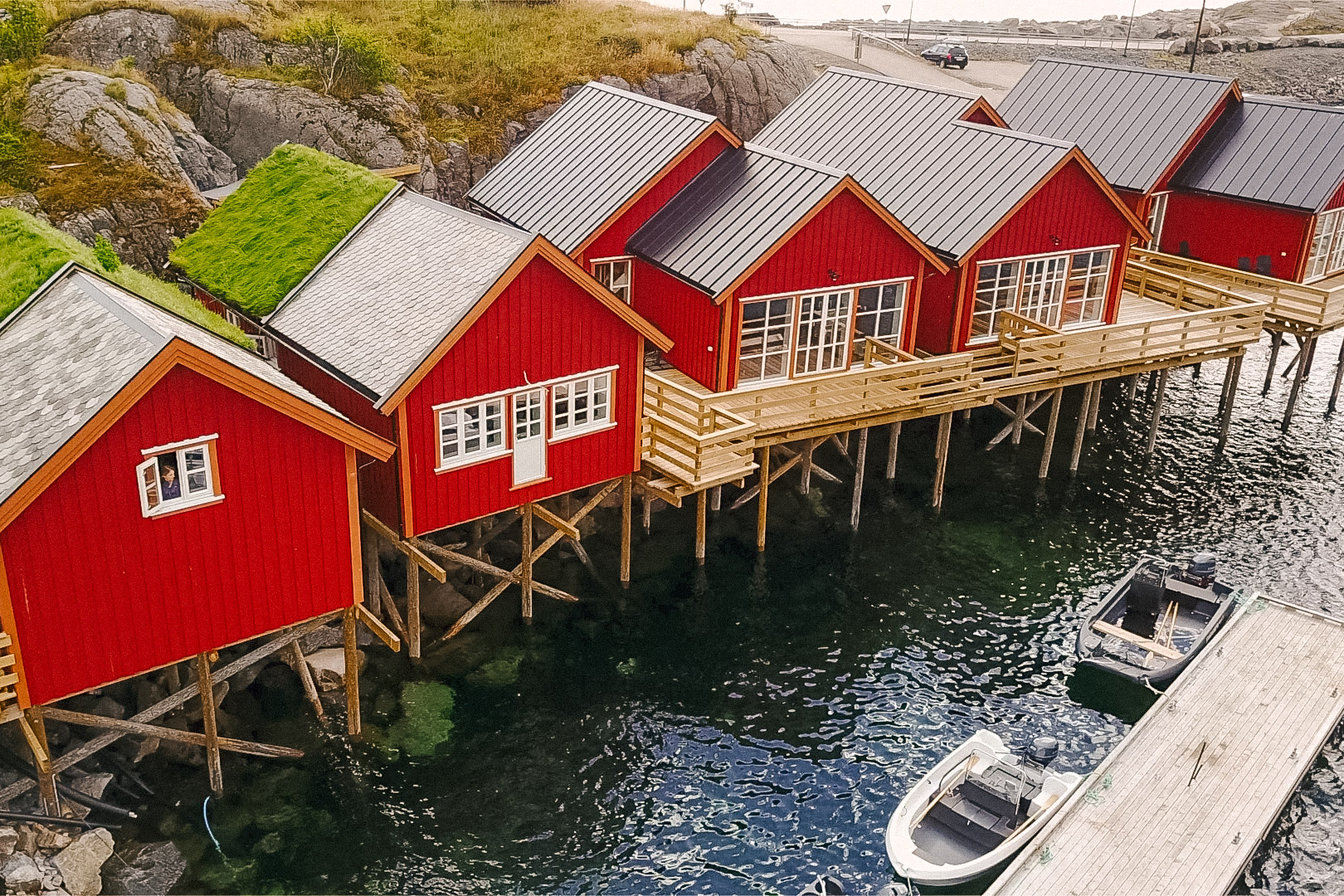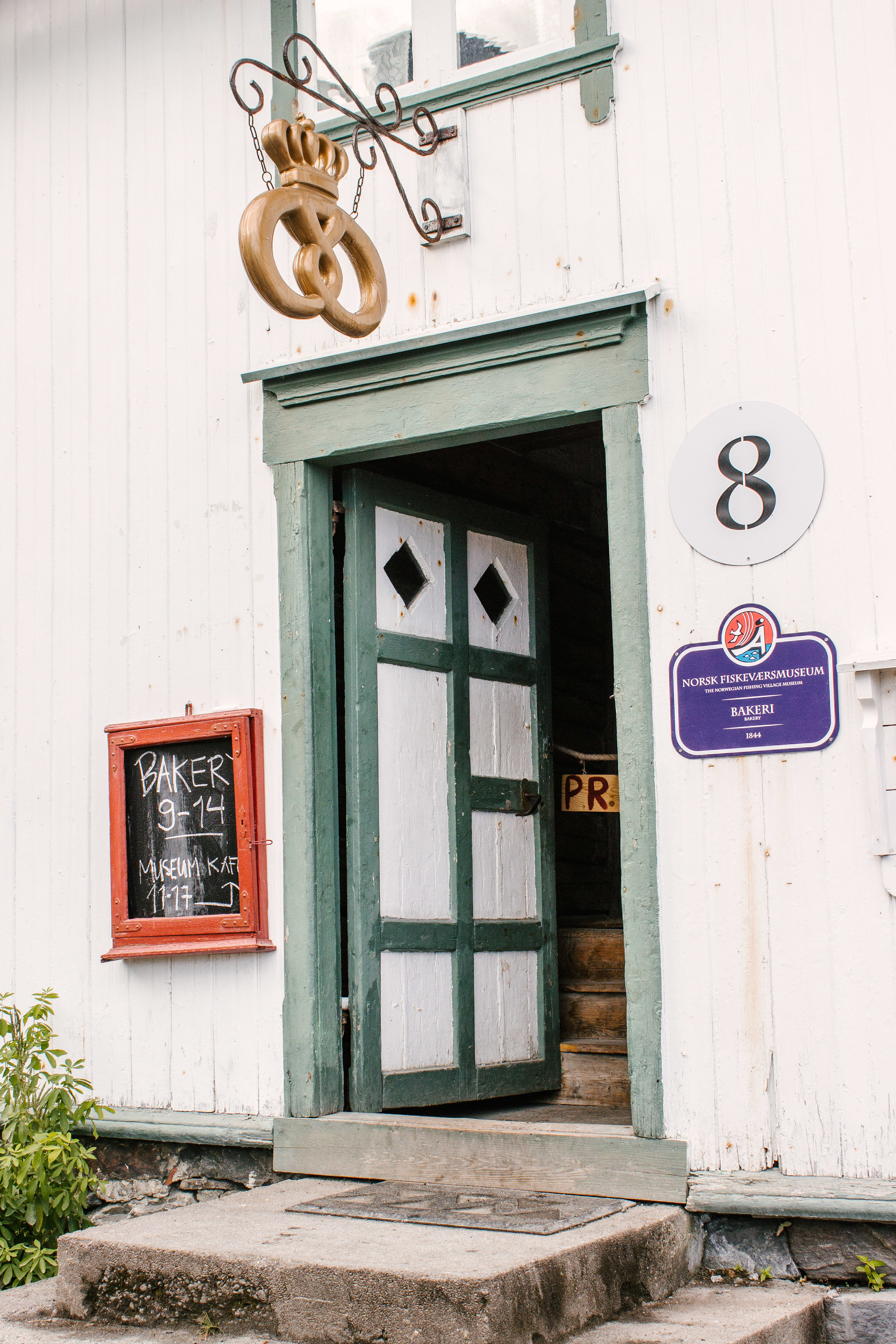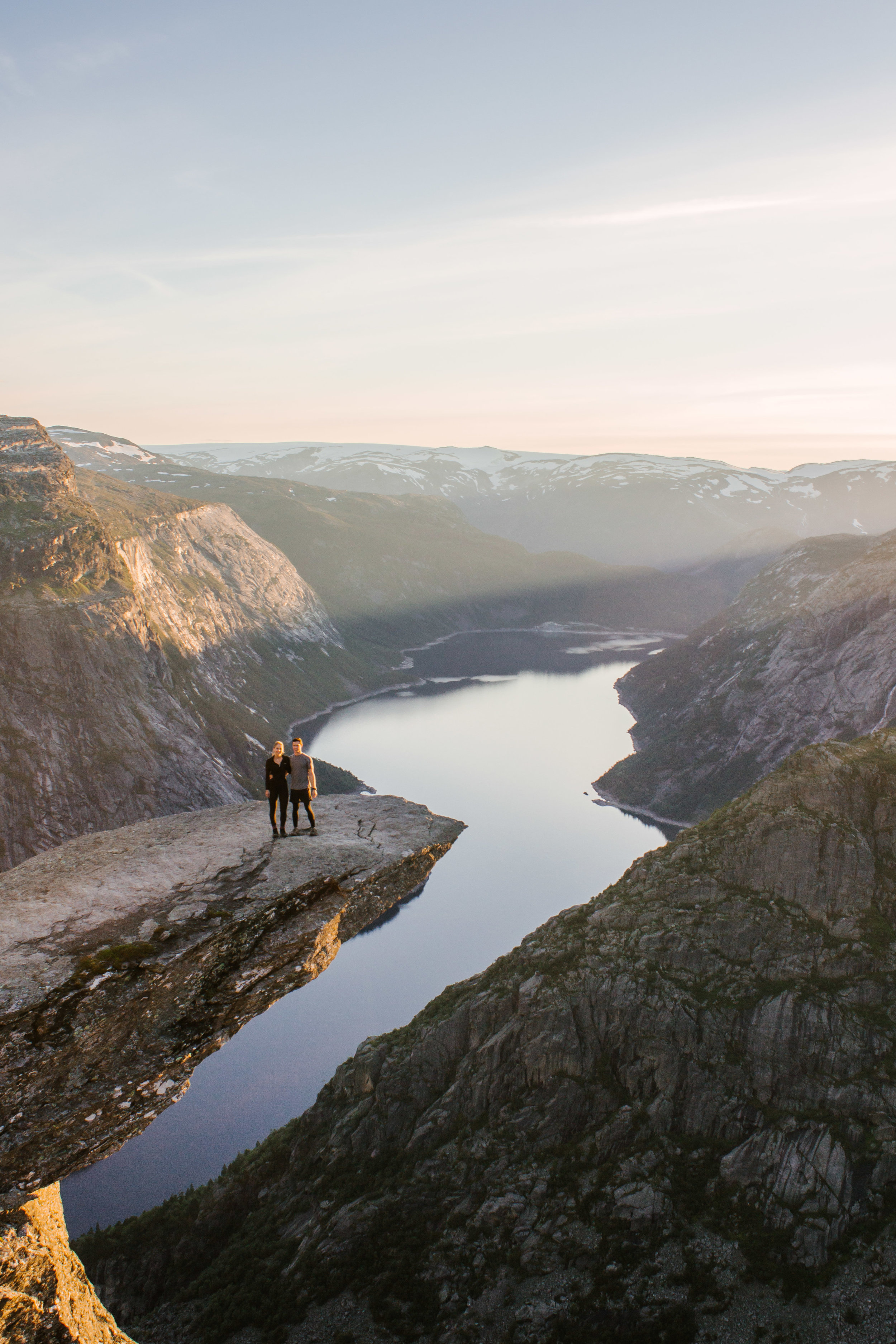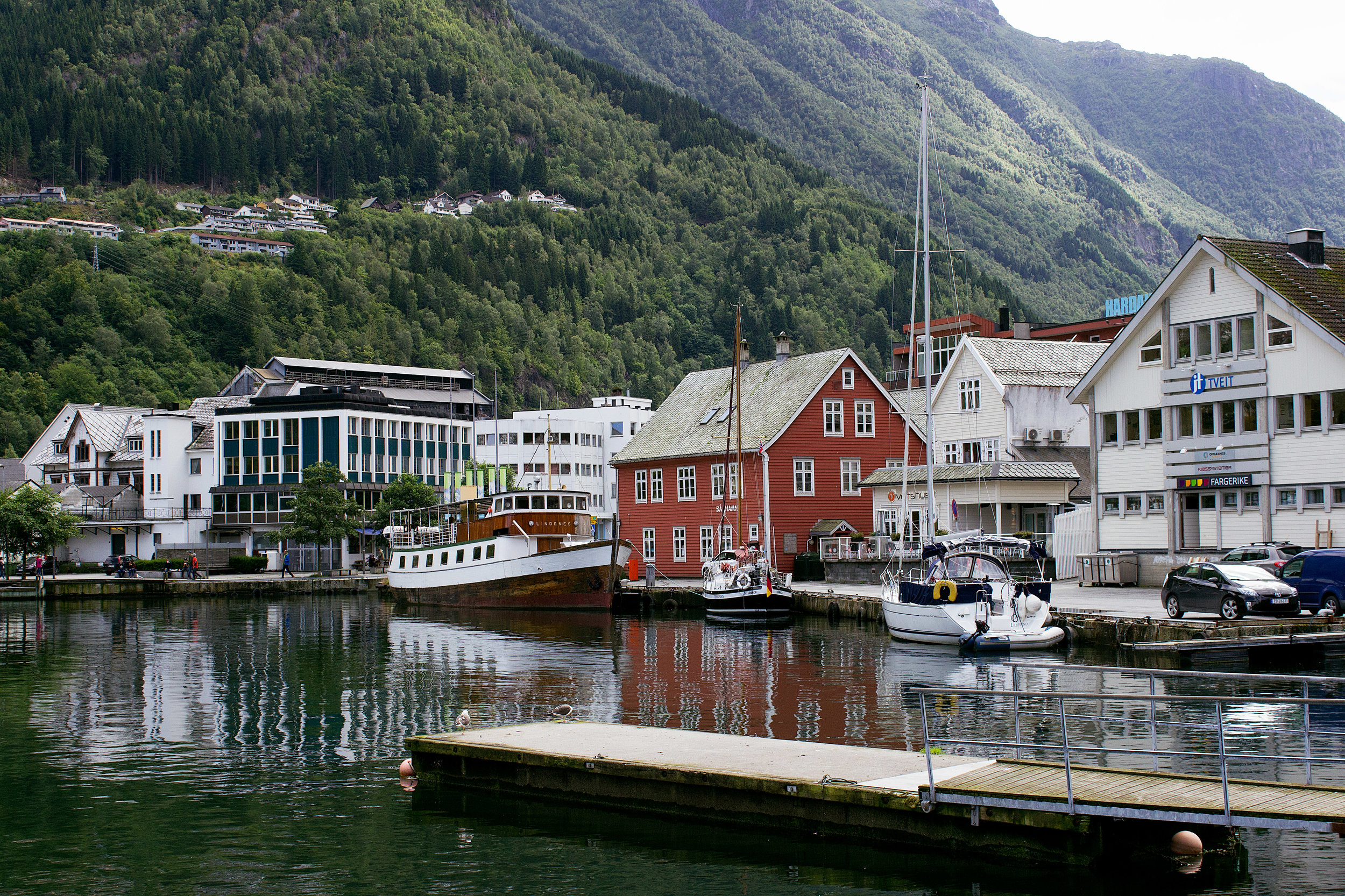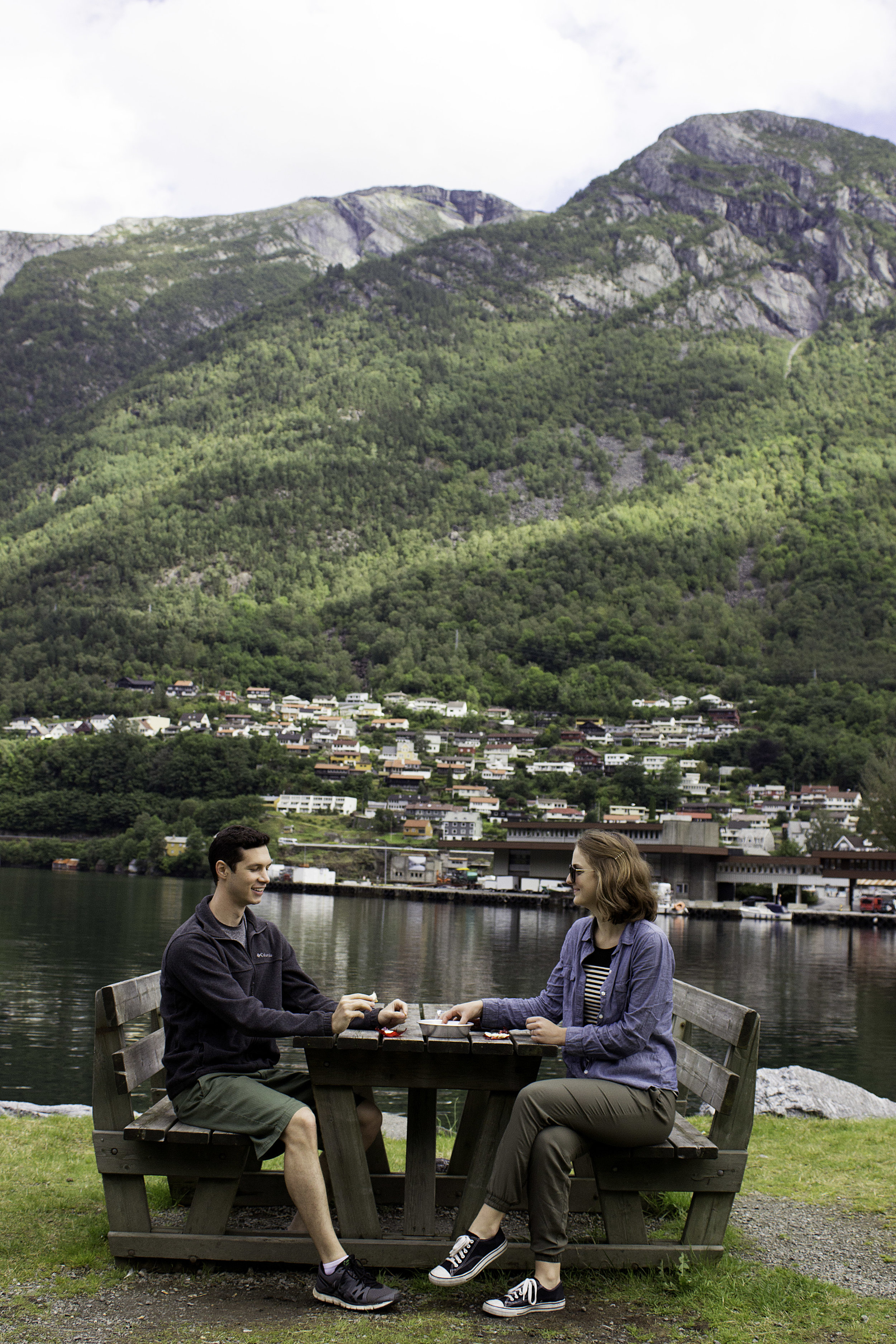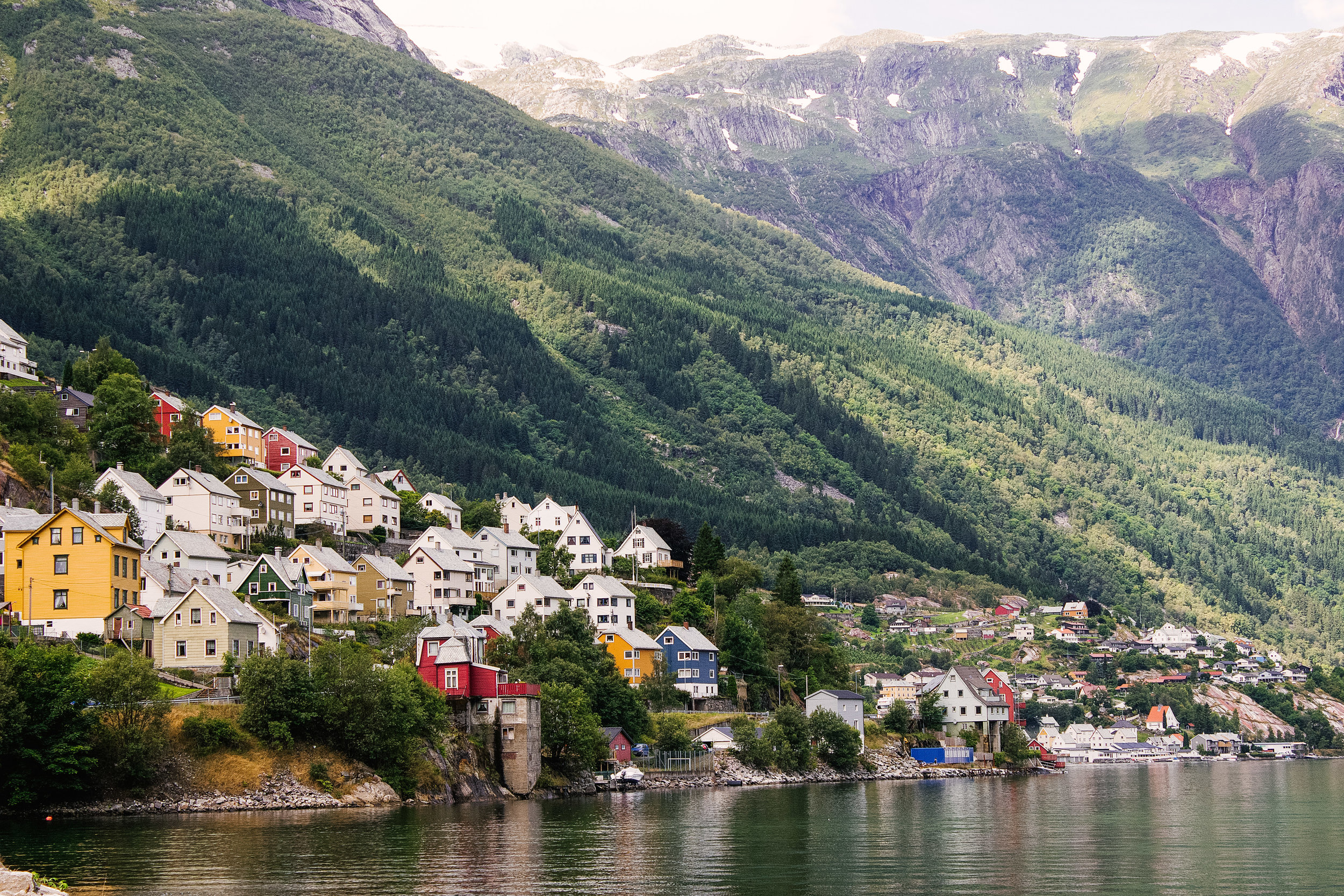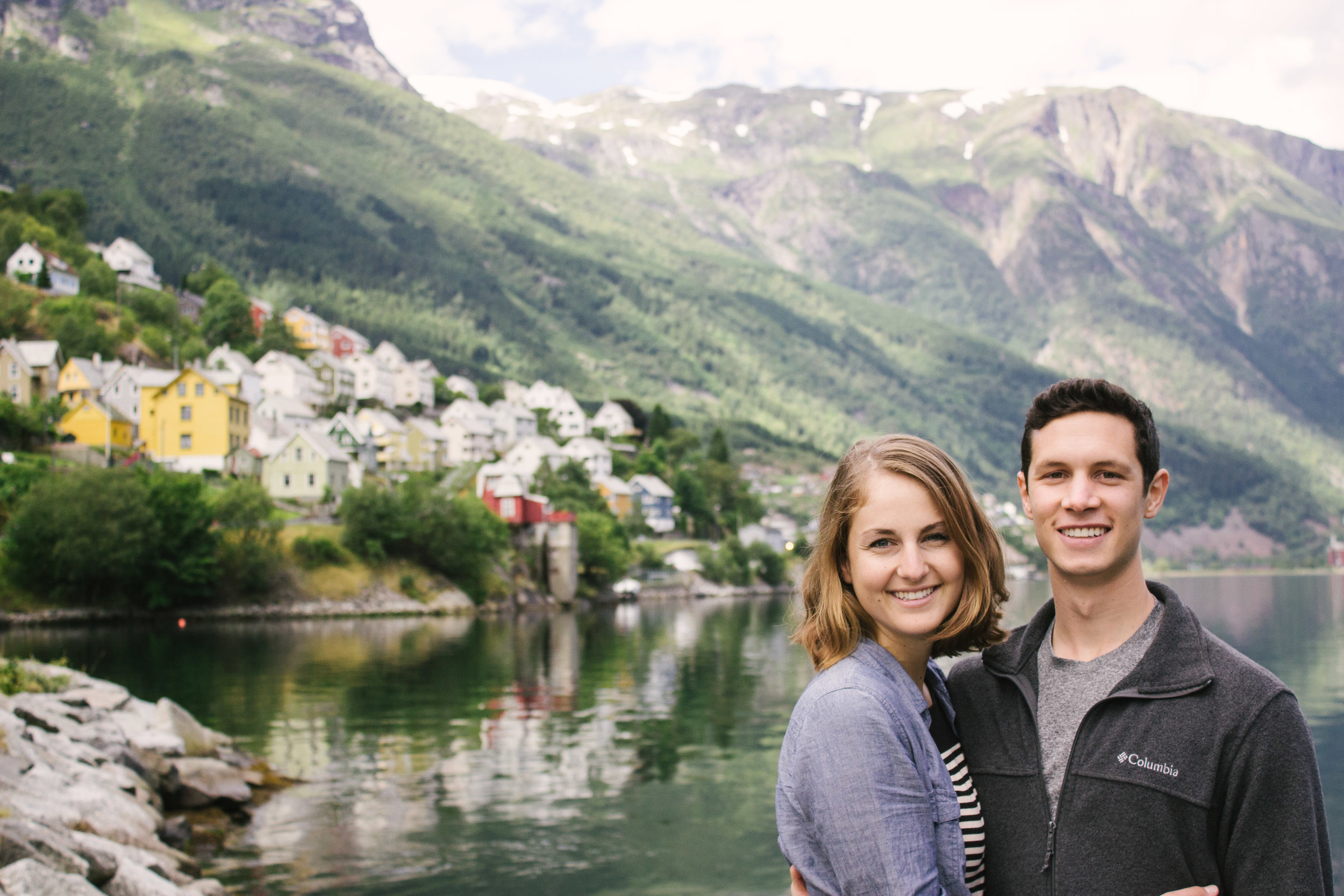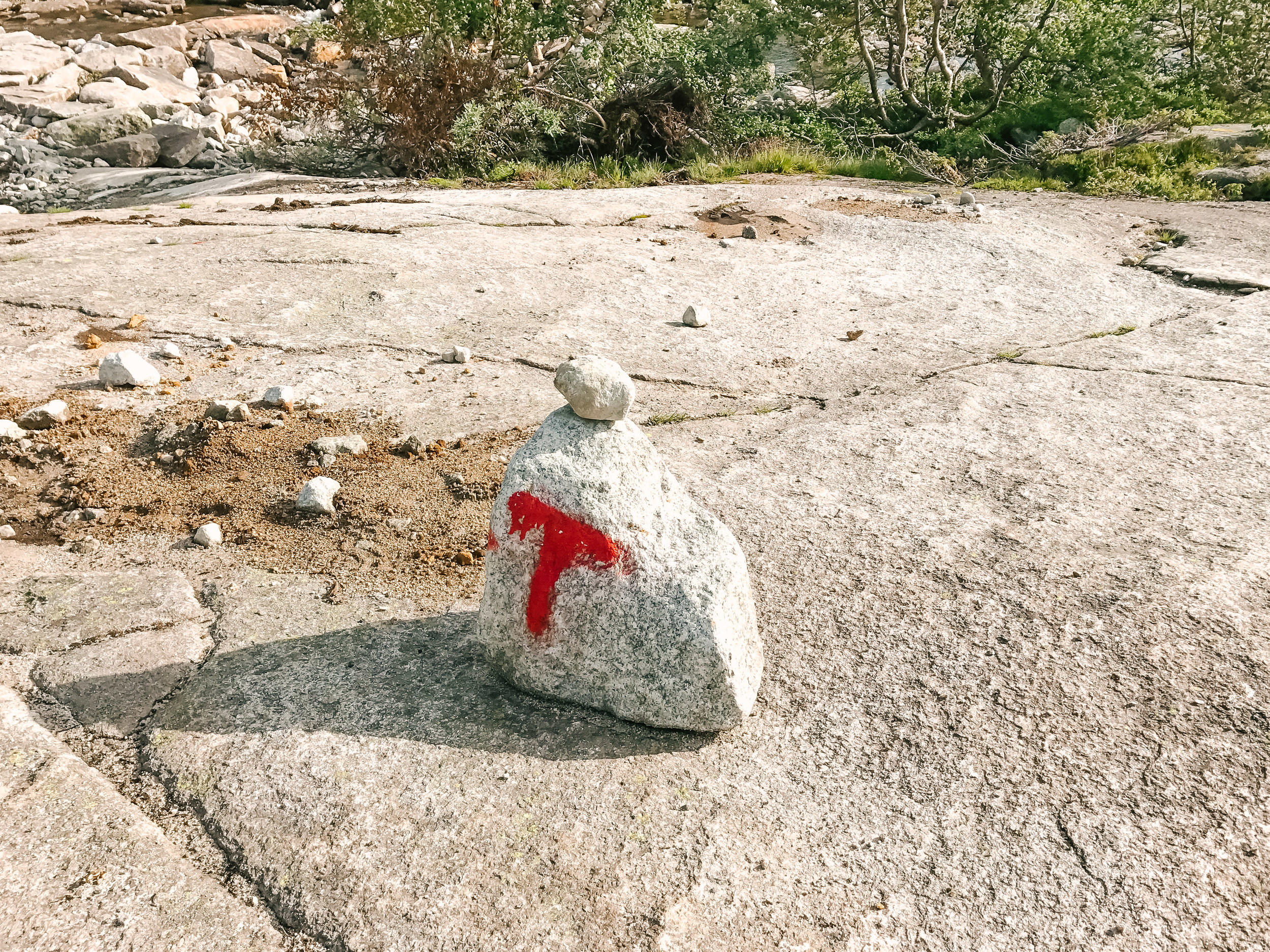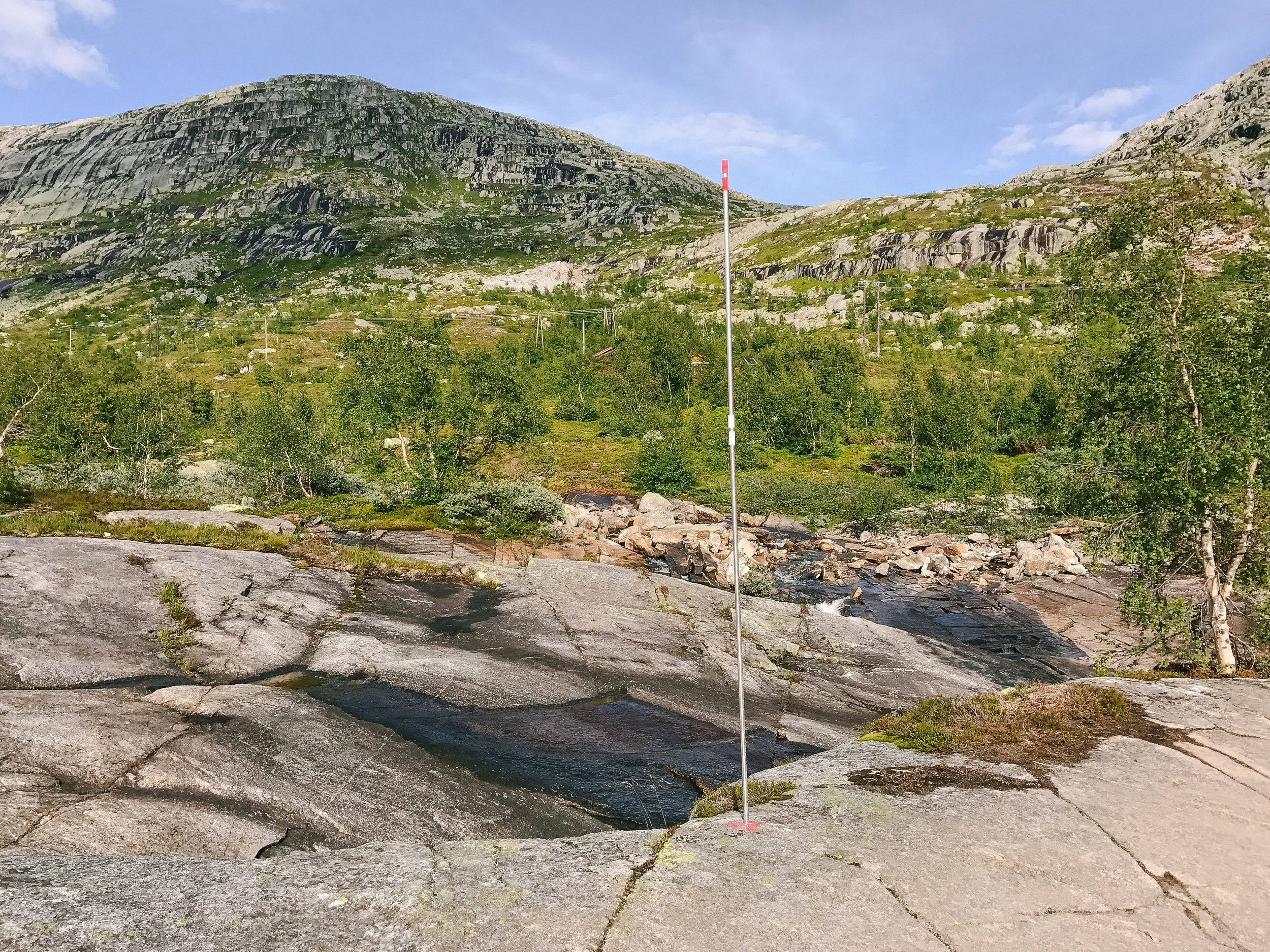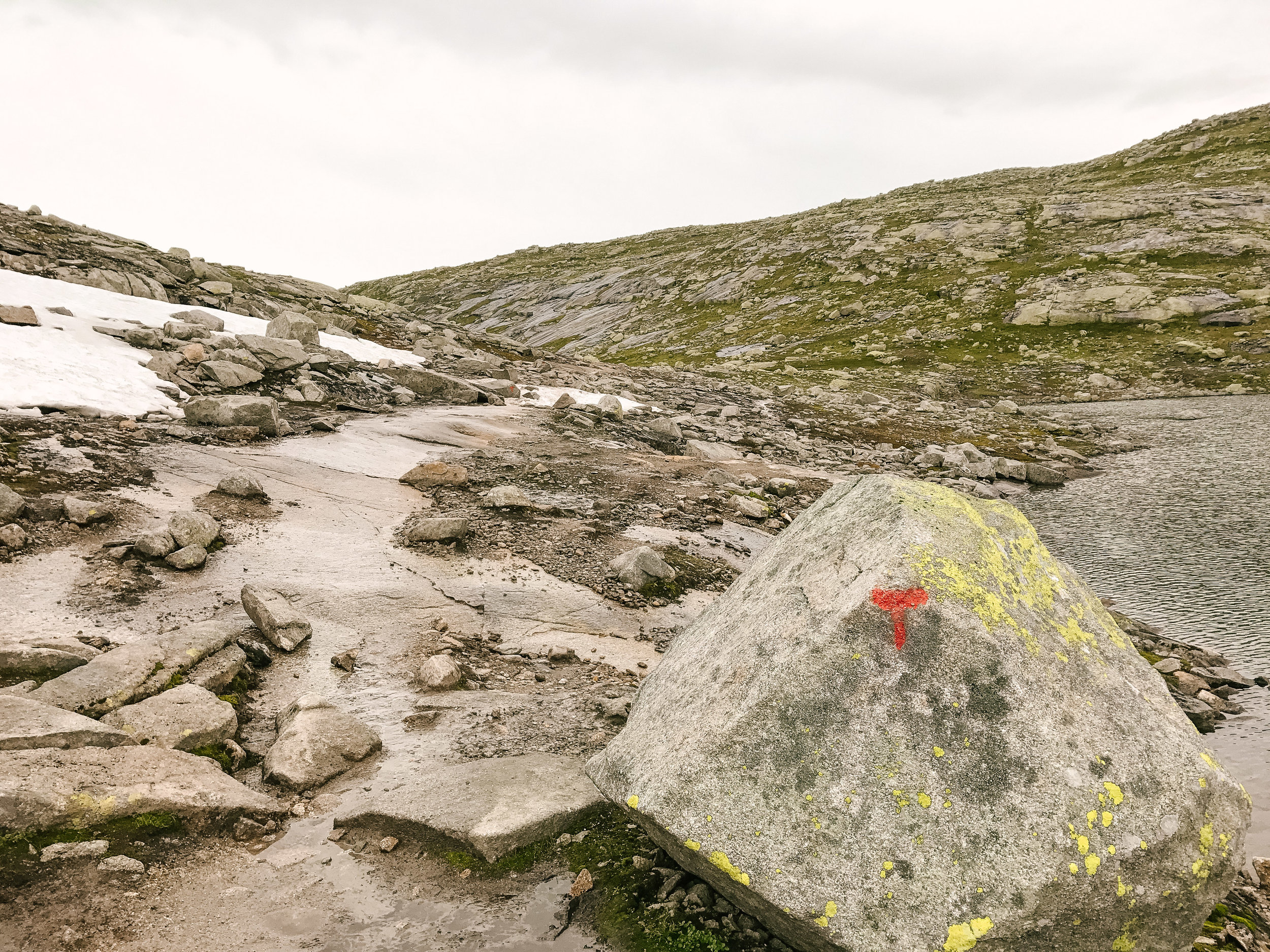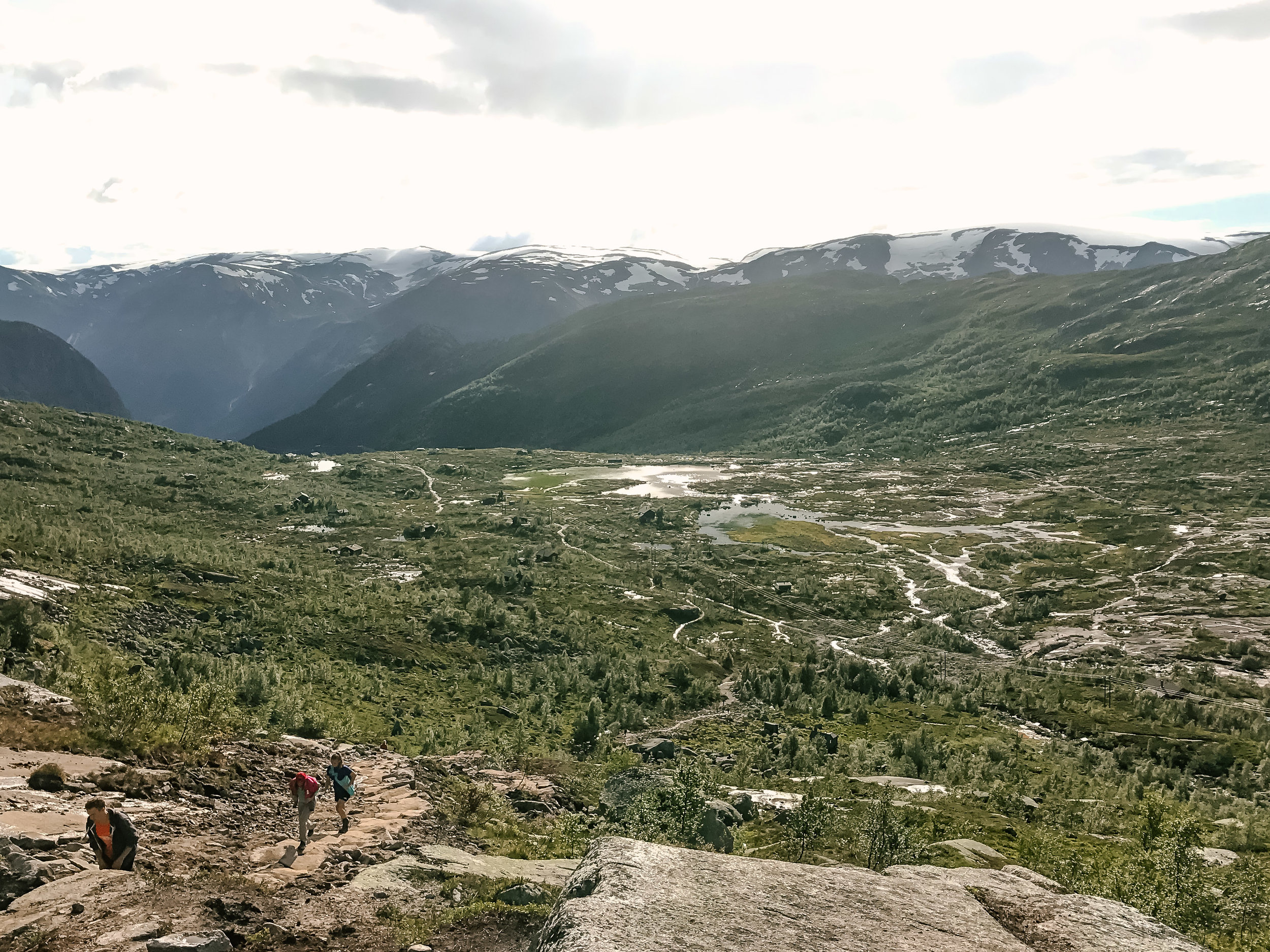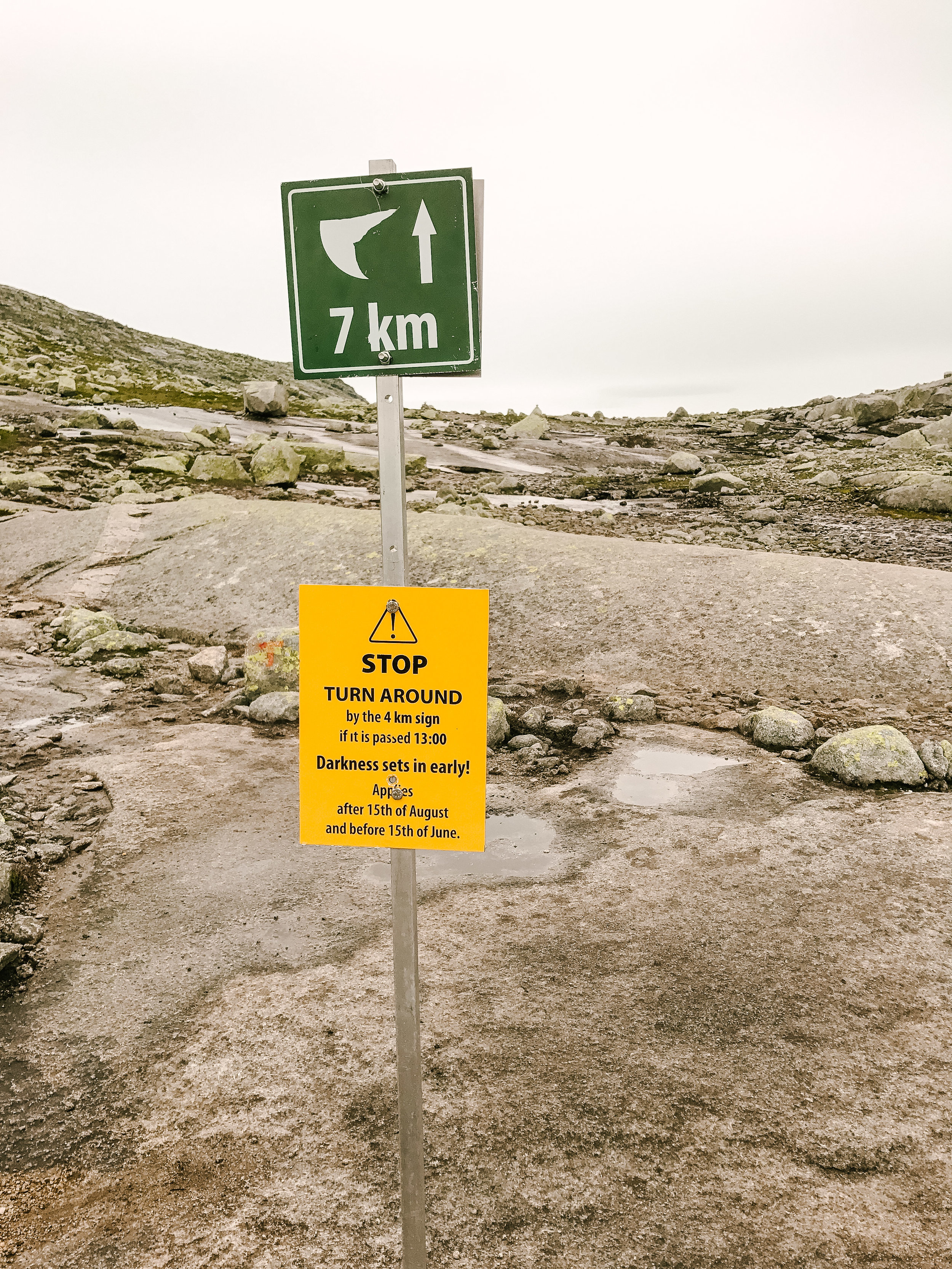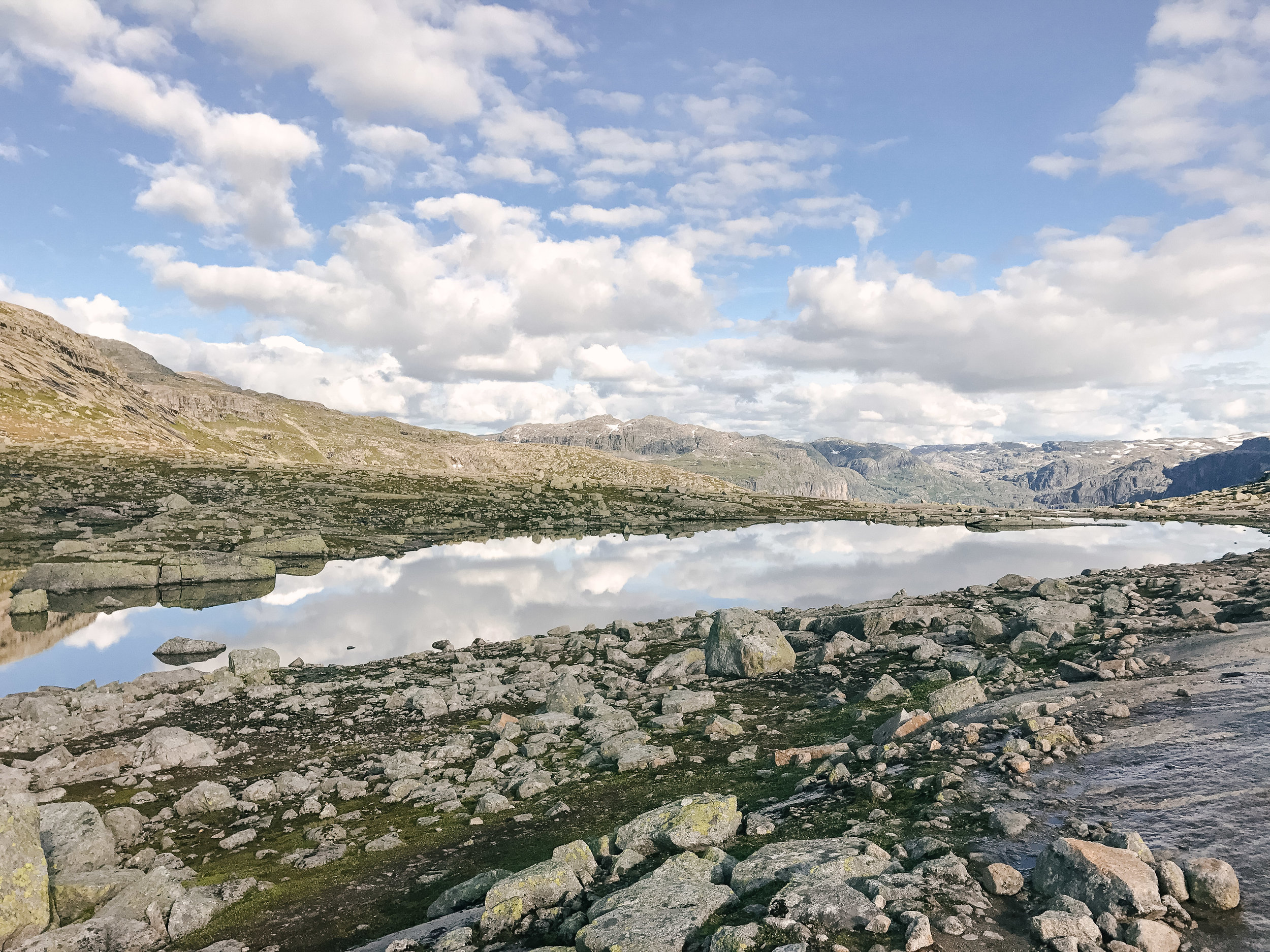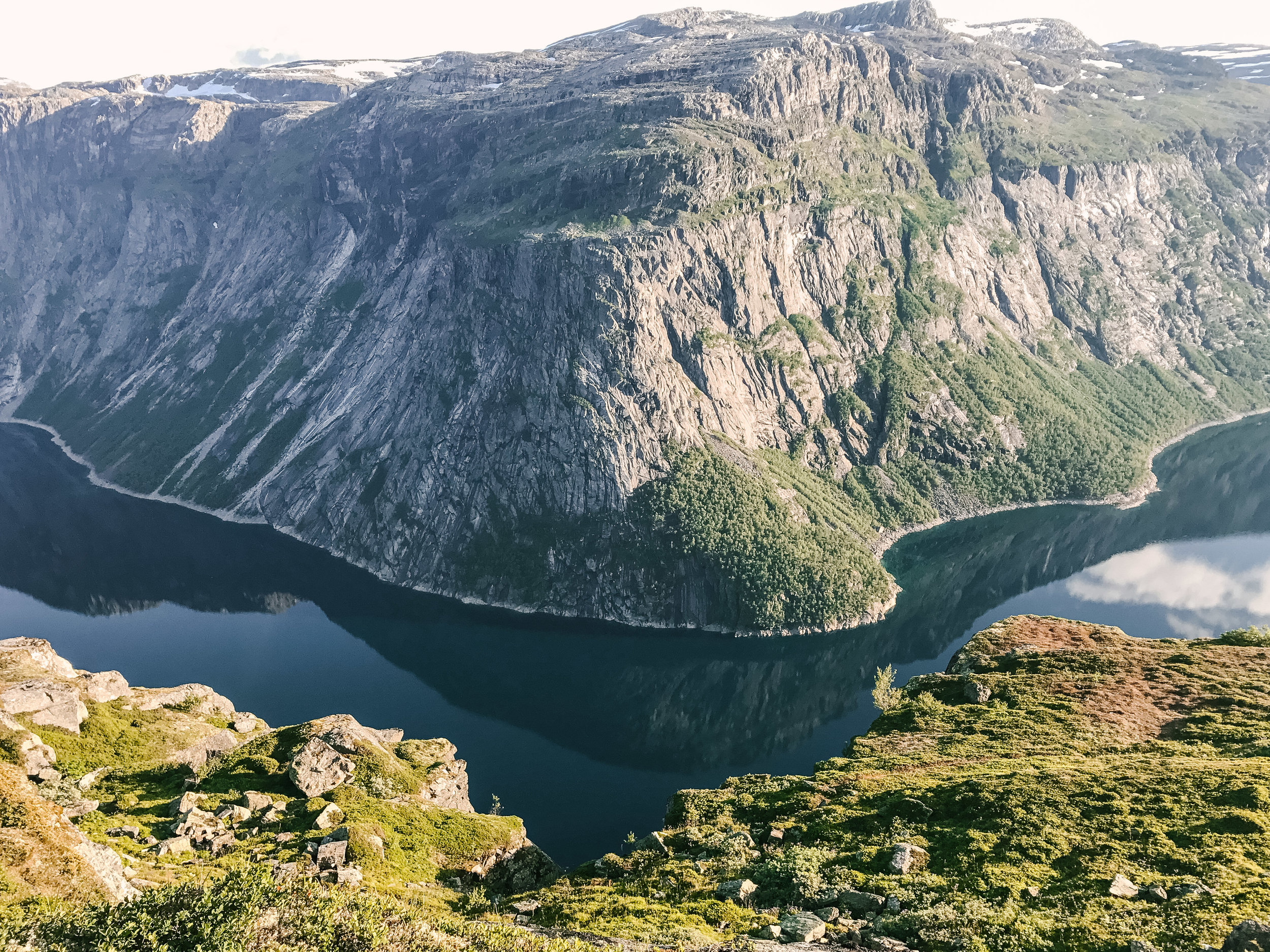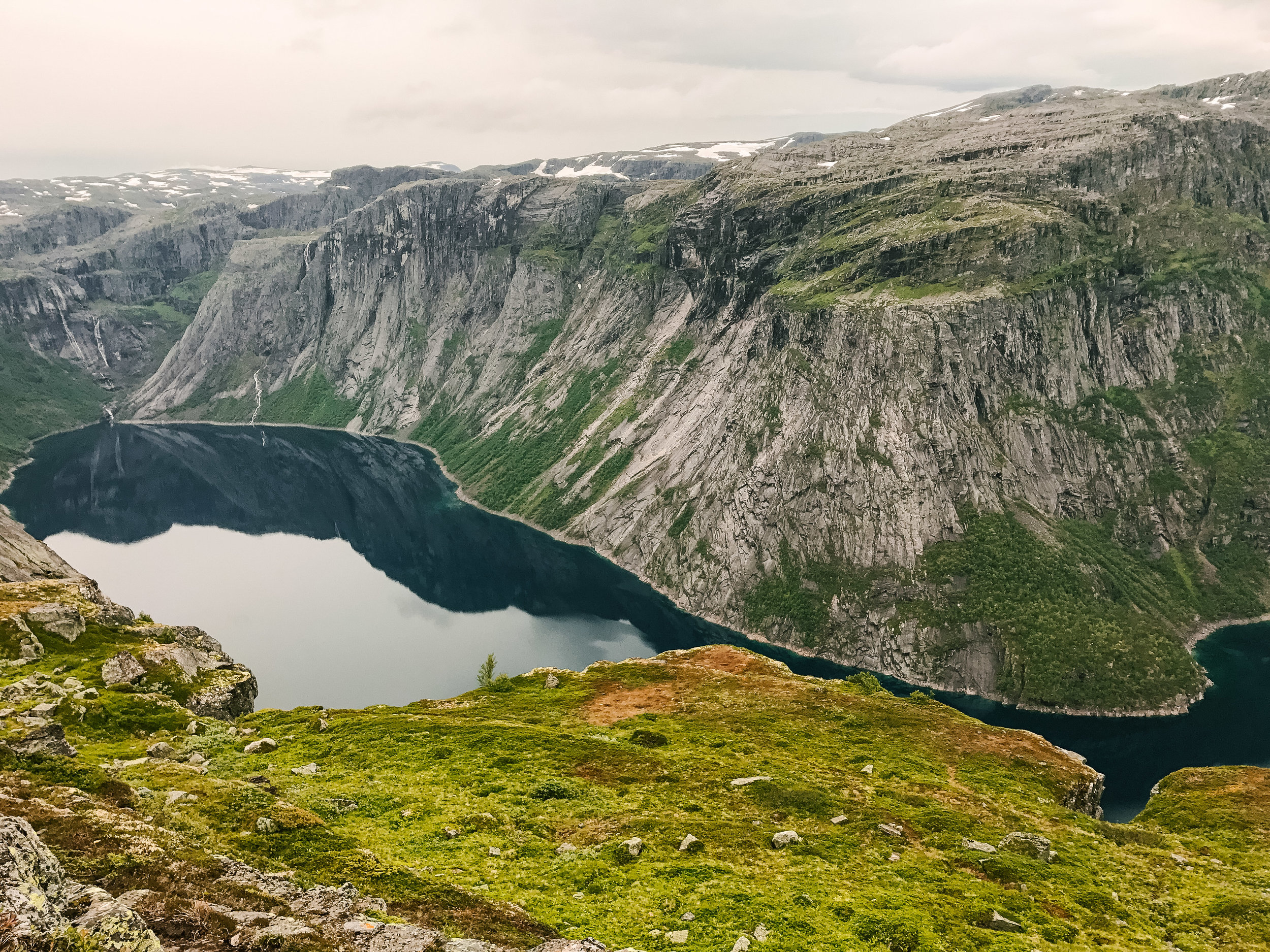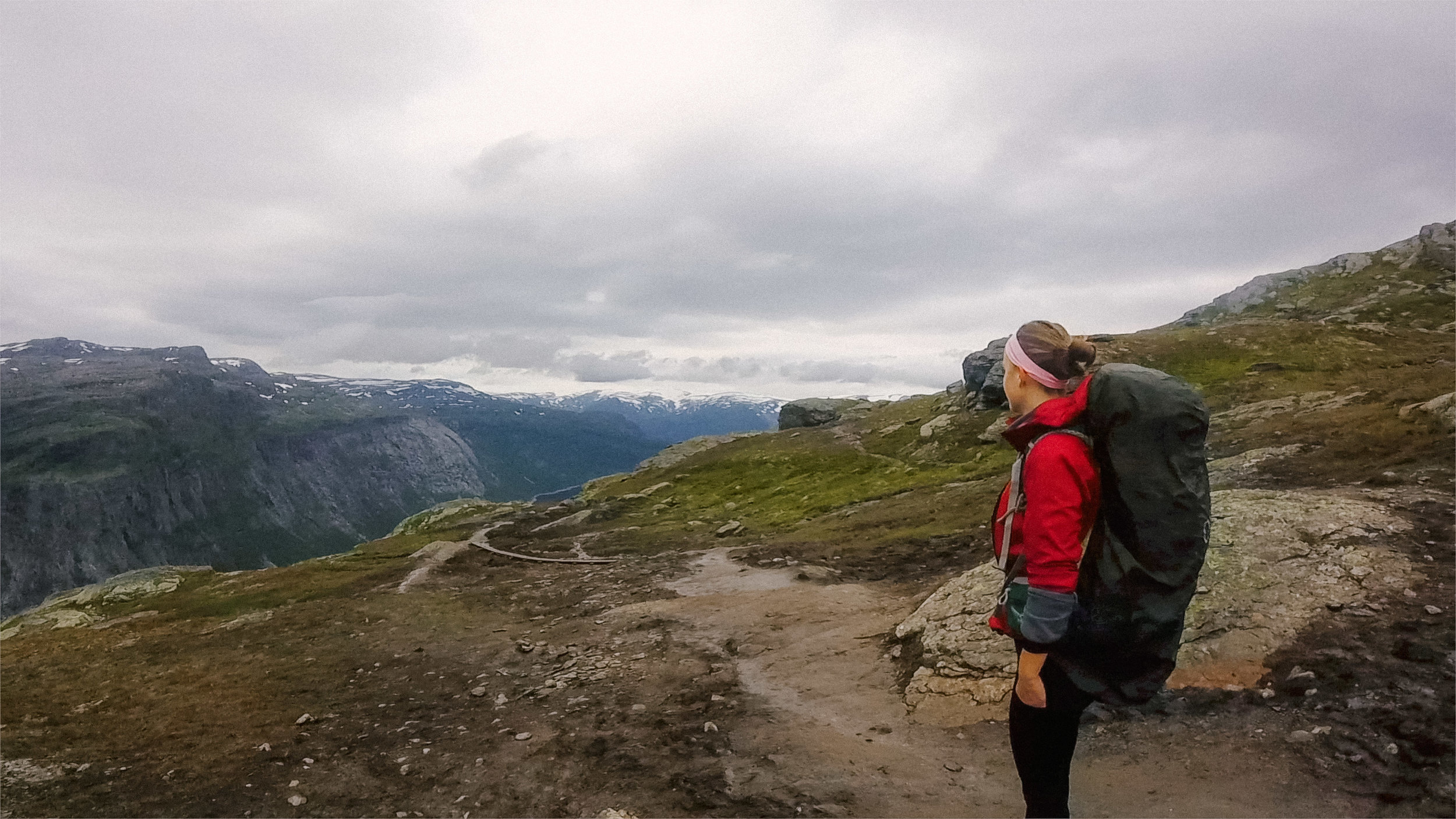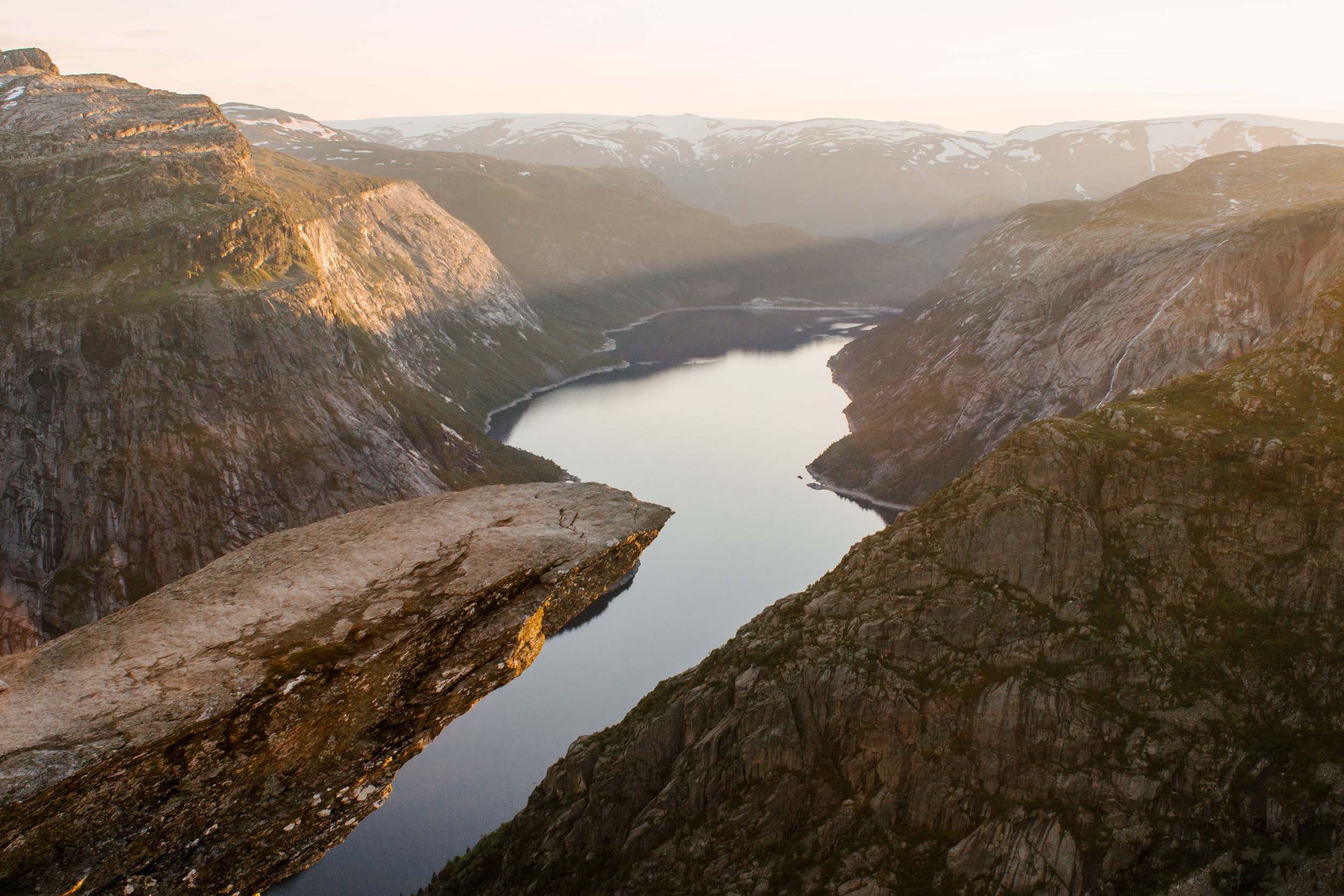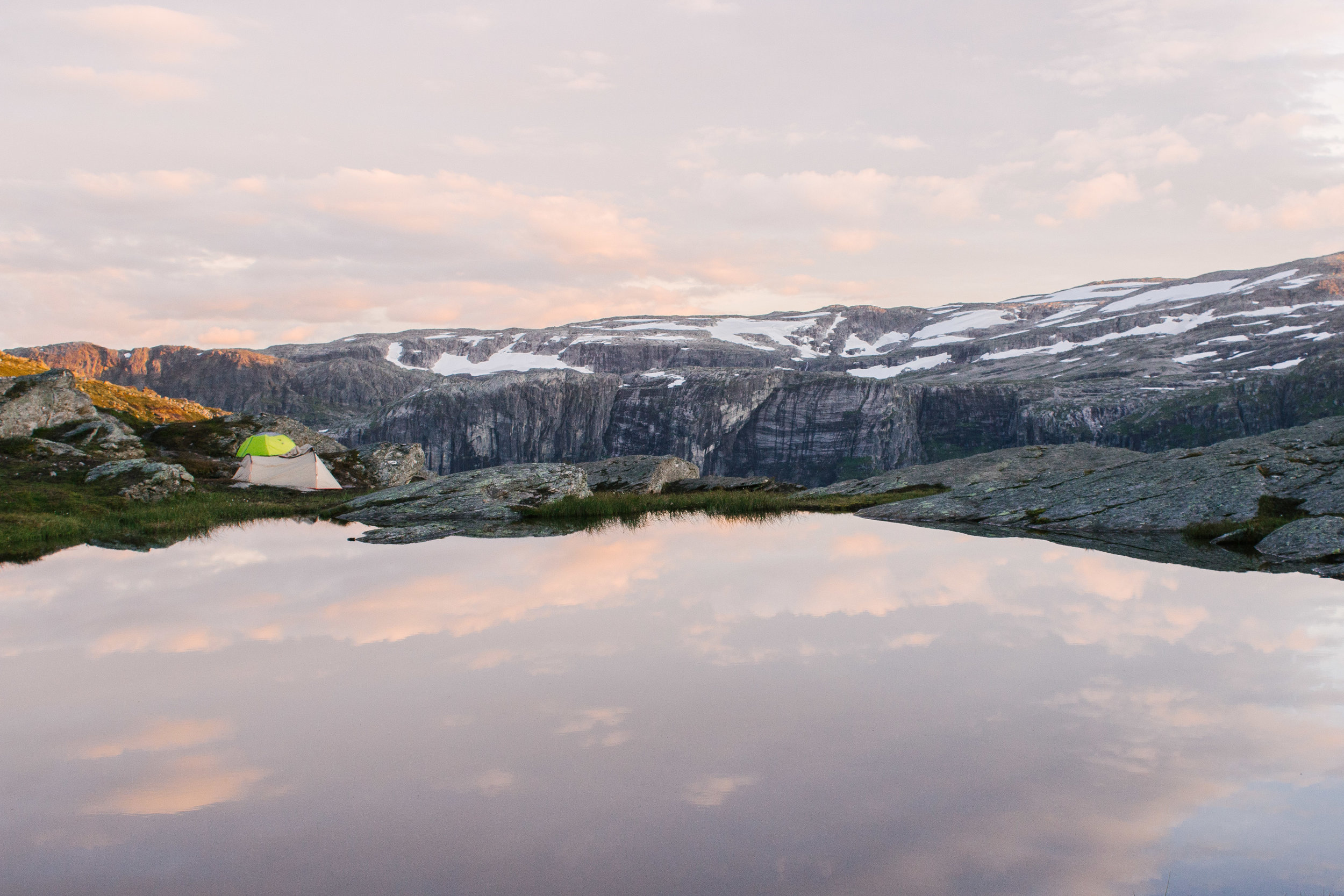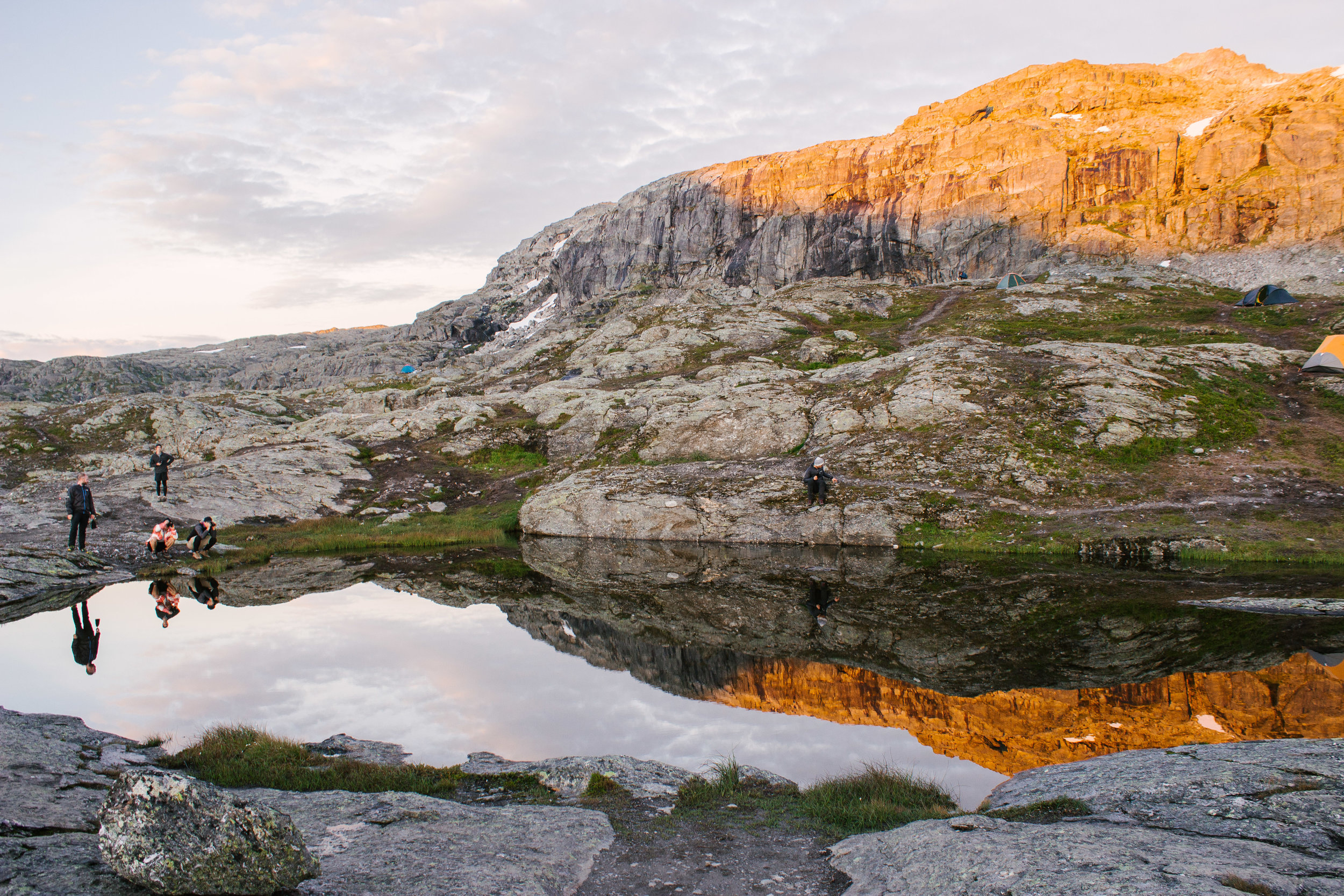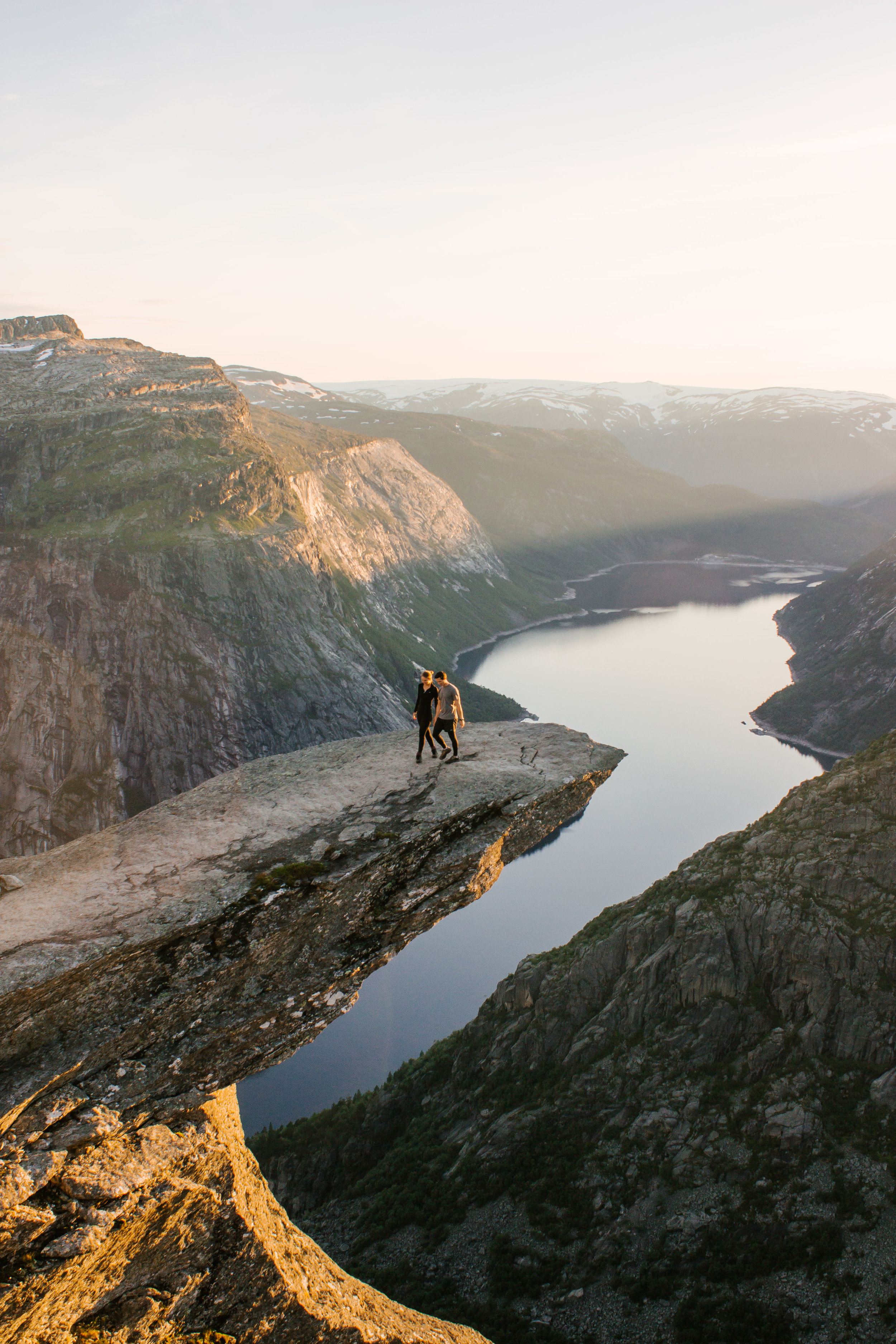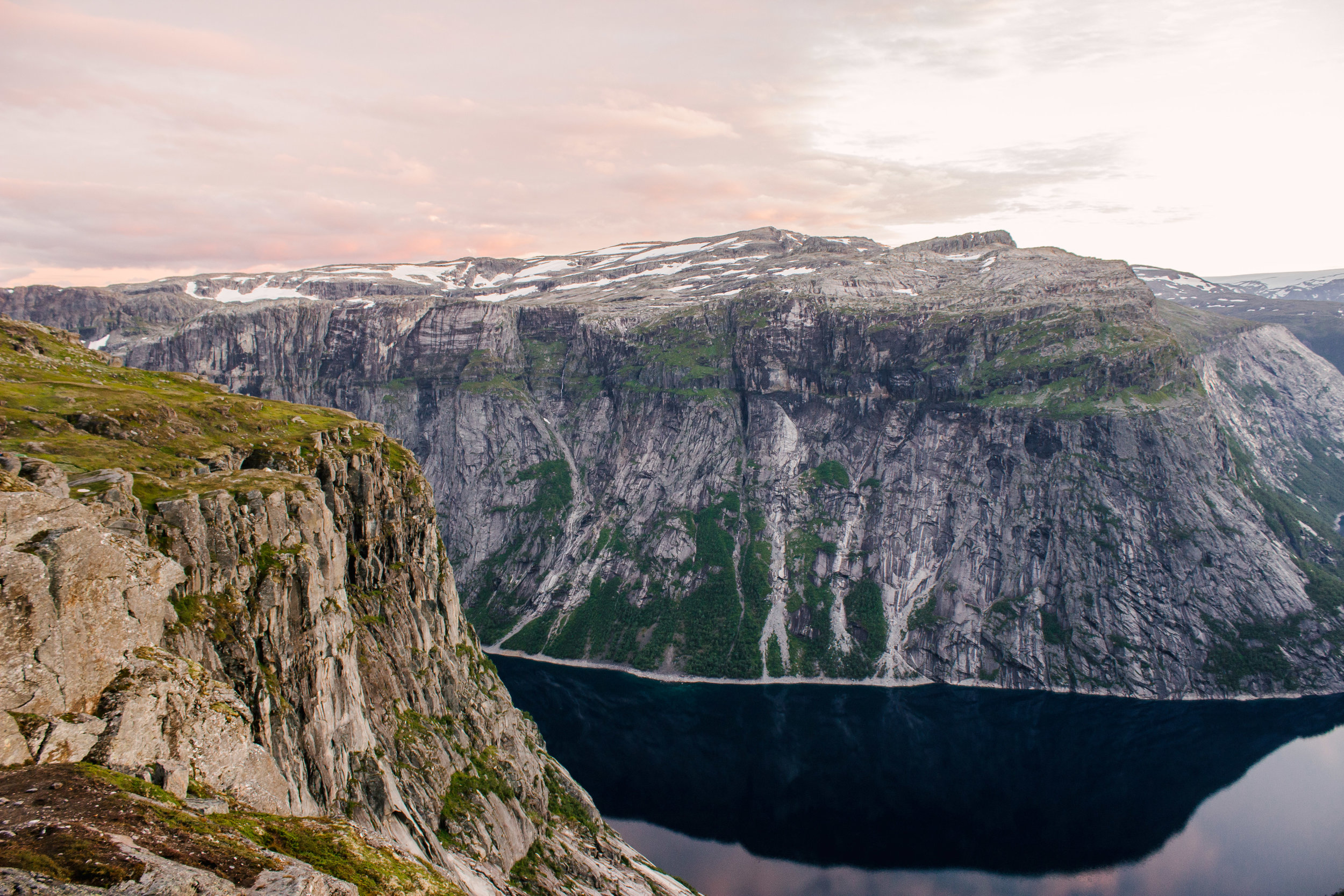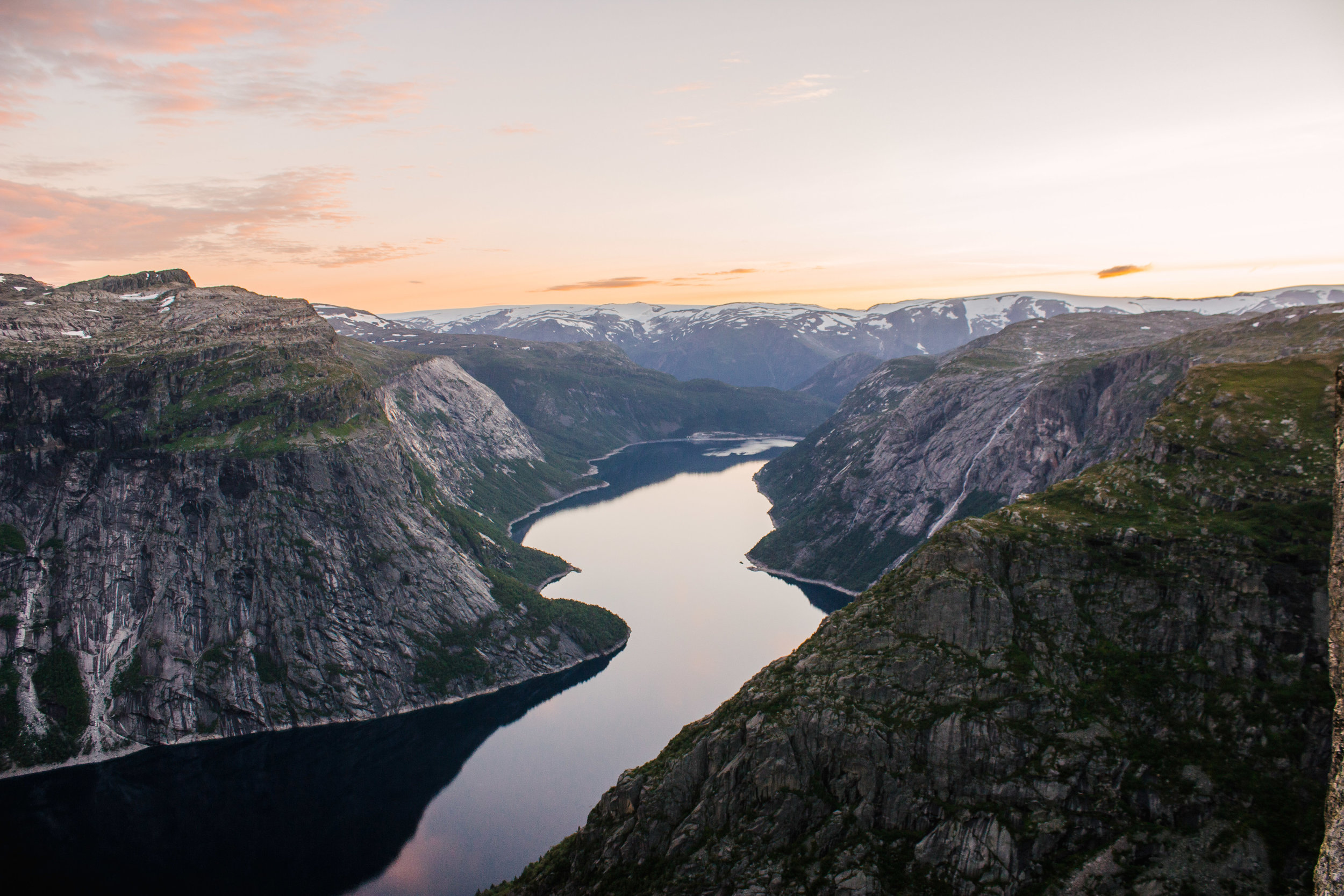Guide to Road Tripping through Norway
/NORWAY! This country is most commonly traveled via cruise ship through the fjords, but road tripping through the country instead was an absolute dream. Unlike the cruise ship set up we were able to drive on our own, at our own pace, visit what we wanted, when we wanted, and were able to take in the beauty of the country with just one another and no one else. Don't get me wrong, I love cruises and the convenience that they provide, but with the type of trip we wanted, road tripping was the only option. Due to how expensive Norway is, and their laws that allow for free camping on public land we decided to camp our way through the country. Of course this option was difficult and exhausting - setting up and breaking down camp every single day - but it was an adventure of a lifetime. Below are the locations where we stopped and some of our recommendations. After road tripping the southern portion of the country we flew north to the Lofoten Islands, which you can read about here. Also be sure to check out our travel video at the end of this post!!
Låtefossen Waterfall
This highly visited waterfall is both beautiful and unique. Starting as two separate waterfalls from the lake 540 feet above, they merge together at the bottom, creating a powerful base. Extremely easy to access, these waterfalls are located RIGHT NEXT to the road. Seriously. The narrow bridge you have to drive over is directly on top of the waterfall’s base. As we drove over it, our car got completely wet from all of the mist. Thankfully there is a small parking lot located adjacent to the falls, otherwise I’m sure it would be nearly impossible to drive over the bridge with everyone wanting to stop and take pictures.
Pro tip: Because this waterfall is so popular tourist buses stop here and unload countless tourists. Thankfully they did not stay long before boarding the bus again. So if it feels extremely crowded when you arrive, just wait for them to leave and then you will be able to enjoy the area with a bit less people around.
Odda/Trolltunga
Odda was my favorite little town that we visited during our time in Norway. The town is so colorful and located at the base of one of the countless fjords. PLUS! The trailhead for Trolltunga is just up the road from Odda. Read more about hiking Trolltunga here!
Flåm
Flåm is a tiny village located on a fjord, surrounded by towering mountains. One of the main attractions in the area is the Flåm Railway. On the train ride you will experience the unique landscape of Norway, from towering waterfalls, to lush mountainside farmland, to steep hillsides, to views of the beautiful fjord below. Flåm also has some of the most scenic bike routes in Norway as well as renowned hiking. Unfortunately, Flåm was a bit of a disappointment for us. When we arrived there was a cruise ship in the harbor, so the town was jam packed with tourists. Personally I am not one for crowds, especially since for the past week we had been traveling in areas that were just the two of us. We got a quick snack from the local bakery, and decided to skip the activities in the area so as not to fight the crowds.
Flydalsjuvet
This is one of the most picturesque locations in Norway, and seeing this gorgeous view in person was the main reason I wanted to stop here. In full disclosure, when we arrived to this ledge, my husband was so upset because it was nothing like he had imagined! If you look at this picture you would think that it is in the middle of nowhere, hidden off the side of the road. While it is hidden, it is also located directly between two extremely busy tourist lookout points! So when we were standing on this ledge, we had about 100 people staring at us from about 100 feet away ahah. Oh the deception of social media and camera angles! If you are afraid of heights, take caution. The ledge is extremely high and had me feeling queasy during the half second I accidentally looked down.
I would still recommend stopping here for the view if you are driving through the area. Like Flåm, Geiranger (the town below) is also a port for cruise ships, so it is busy with tourists. One of the popular things to do here is to take a boat tour on the fjord to the seven sisters waterfall!
Lovatnet
OMG THIS PLACE IS UNBELIEVEABLE. Sorry (but like not) for the over excitement, but the water in this lake is so turquoise blue that it almost looks fake. Sadly we arrived late in the evening so all of the camping sites next to the water were taken, so we ended up getting a small cabin on the hillside. The weather was poor for us, drizzling on and off the entire time that we were there. Nonetheless the brilliance of the water truly shined, contrasting beautifully against the green hillsides and overcast skies. If it had been slighlty better weather I would have absolutely loved to take a small row boat with Alex out to the middle of the lake.
Ålesund
A very cute, colorful, and small city surrounded by water. This was the farthest west that we traveled, and because of that, the weather was rather poor. If it wasn’t pouring rain, it was extremely windy. However, we were able to make the best of the situation and enjoy some of the city’s uniqueness. The architecture is beautiful and will have you feeling like you are wandering through a central European city. For a stunning (and the best) view of the city, head to Aksla, a 400+ paved step ascent. If the number of stairs intimidates you, don’t worry, you will start to see the view before you are even halfway up. We stopped halfway to get all of our shots, because it was so gosh darn WINDY - I thought we were going to blow off the side of the mountain. While in Ålesund you also have to sample the local seafood as it is one of Norway’s top fishing harbors. We enjoyed a bowl of fish soup on a grey and rainy evening, and it was absolute perfection. While here we stayed at the CUTEST and most perfect Scandinavian Airbnb ever. After camping for a week, sleeping on a real bed felt heavenly. We were also introduced to the uniqueness of Norweigan shower setups, and were once again reminded of our hatred for Norweigan laundry machines (don't ask).
Atlanterhavsveien (Atlantic Ocean Road)
One of the two infamous roads in Norway that we visited! Back to back bridges create this road to connect a small collection of islands on the west coast. Because the road spans across open ocean water, the area’s unpredictable storms and blizzards, can make this road extremely dangerous. Thankfully there were no weather concerns when we visited, so it was just a peaceful scenic road. To be honest, it was hard to appreciate its true beauty from the ground. It wasn’t until we got our drone in the air and saw the bird’s eye view that I truly started gapping at its beauty!
Trollstigen (“The Trolls Road”)
This was the second infamous road that we visited. It is a steep, snakelike road that quickly ascends the side of a mountain with razor sharp switchbacks. Due to its relative proximity to the fjords, this place will fill with buses packed with tourists day tripping from their cruise. Thankfully we were able to avoid the crowd by arriving extremely late at 9 PM (thanks long Norwegian summer nights!) Once you drive up the road there is a tourist area that includes a large parking lot, restaurant, and gift shop. Definitely go to the lookout area as this provides the BEST view of the road. If you have a drone, beware! The road is between two mountains, which creates a wind tunnel. We legitimately almost lost our drone here but the little guy was eventually able to fight the wind.
Åndalsnes
Yet another cute, small town. It is located down the road from Trollstigen. Unfortunately we weren’t able to spend much time here since we arrived at 10 PM the night prior and were forced to pack our tent early the next morning due to rain. If we had had better weather, I would have loved to hike Rampestreken. The starting point for the hike is located in the town center and it steeply ascends to a narrow, suspended lookout platform that provides a panoramic view of Åndalsnes below. Again, we didn’t do the hike ourselves so I can’t speak to the difficulty of the hike, but it sure looked beautiful.
Jotunheimen National Park
We stopped through Jotunheimen on our long route back to Oslo. Driving though this portion of the country provided a landscape that was drastically different than what we had seen thus far. There were few trees, the land was drier and golden in coloration, and the sun was shining bright now that we were far away from the west coast gloomy weather. But nonetheless it was still beautiful! Since this was an unexpected stop due to changing plans from weather misfortune, we had to do some quick researching to find what to do in the area. We stayed in a cabin at Trolltun Gjestegård for the night (because our tent was still soaked from the morning) and that provided the much-needed indoor relaxation we needed – and it also had the wifi we needed! We went to the viewpoint Snøhetta – a small metal box with an entirely glass face, that stands alone on the top of a hill. It even has a cute Scandinavian fireplace inside. On our way out we stopped by Gjende Lake, which omg WOW is a stunning turquoise color. If you have time, there is a hike (Besseggen) nearby that ascends above Gjende. The hike is 8 miles in length, but you can turn around whenever depending on your time constraints.
Oslo
We only spent one day in Oslo before flying north to the Lofoten Islands, and to be honest that was enough time for us. After spending the prior week roadtripping through Norway’s naturally beautiful and dramatic landscape it was difficult finding the appreciation for the large city. We wandered around the nearby university and royal palace. We snacked on some authentic Norweigan vaffles and even tried the highly recommended brown cheese topping, and found a cute Thai restaurant next to a waterway to have dinner. We took the high speed train to and from the airport (which is located a ways outside of the city) after we dropped off our rental car, and while the train is expensive, it is extremely convenient and easy to navigate.
The Scenic Route
Because we saw so much of Norway by driving between all of the above locations, I felt like I had to add that just driving throughout Norway was in itself AMAZING! The country of Norway is basically a giant mountain range, well at least the entire western portion is, which lends itself towards beautiful views. We drove high in the mountains, looking down at cute, farm towns below. We drove at the base of the mountains, eye and eye with the stunning turquoise waters. We drove along massive fjords. We drove through lush farmland and saw houses with grass roofs. We drove past more waterfalls than we could count. We drove amongst the evergreen trees and saw glaciers in the distance. Maybe things seemed more epic than they really were because we were listening to The Hobbit on Audible the entire time - but, nah, I think it really was amazing.
This is the route we took for the first half of our Norwegian road trip! Special thank you to Alex who drove the entire time since this girl doesn't know how to drive manual lol! :)
To see more about our Norway travels, check out this video we made! It includes the road trips we did in both the southern and northern regions of Norway. To read more about our road trip in northern Norway (Lofoten Islands), check it out here!


